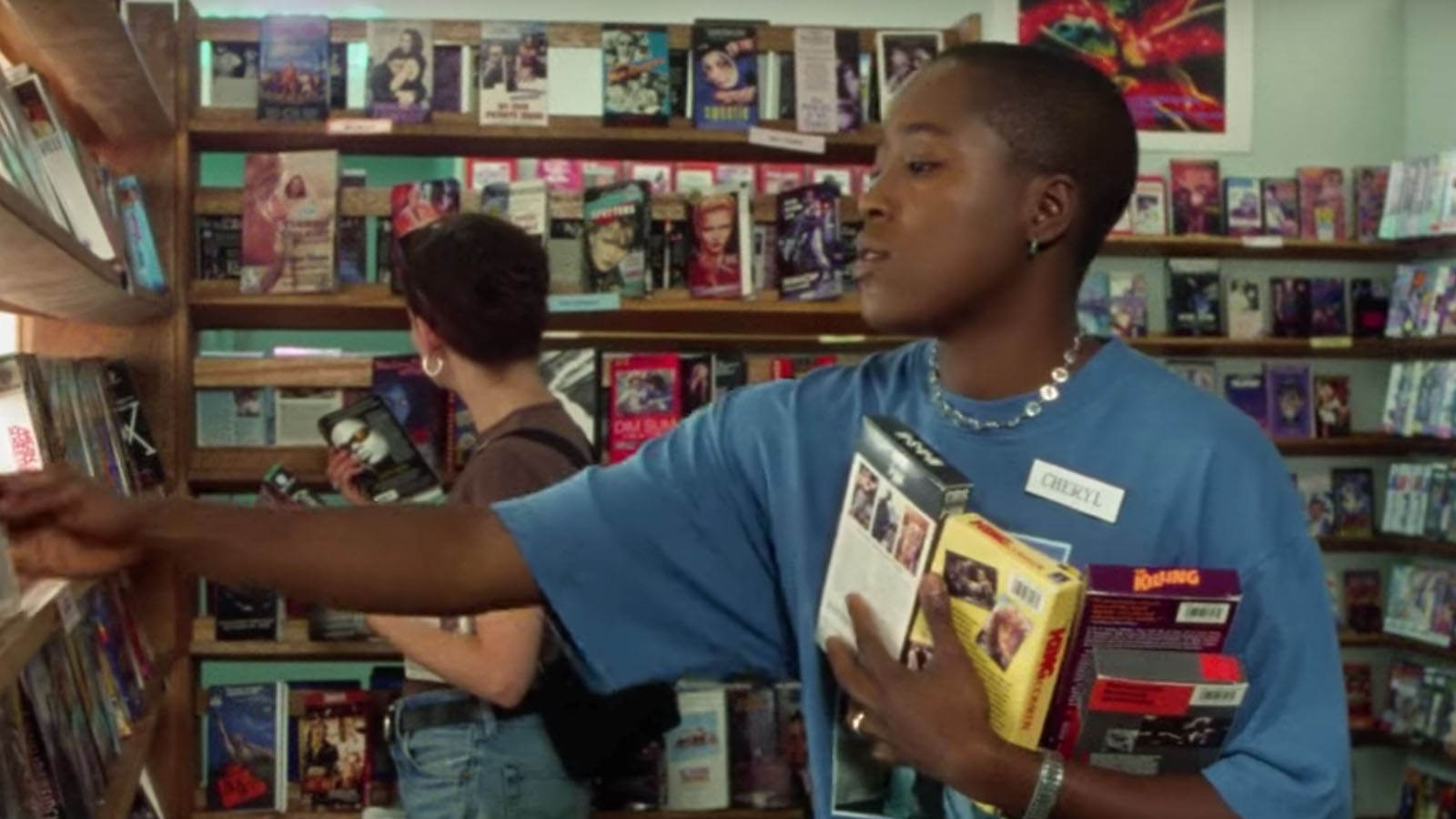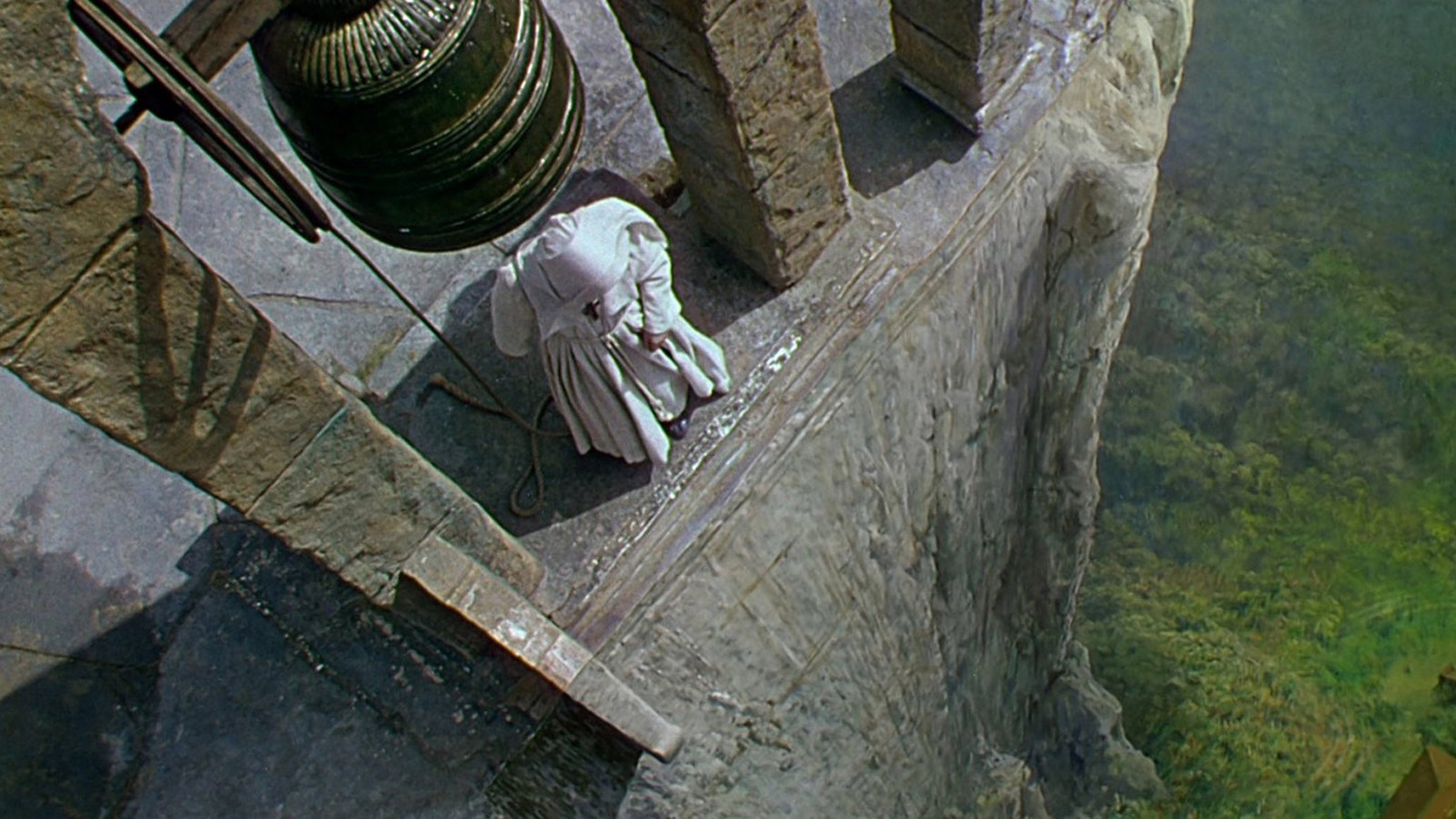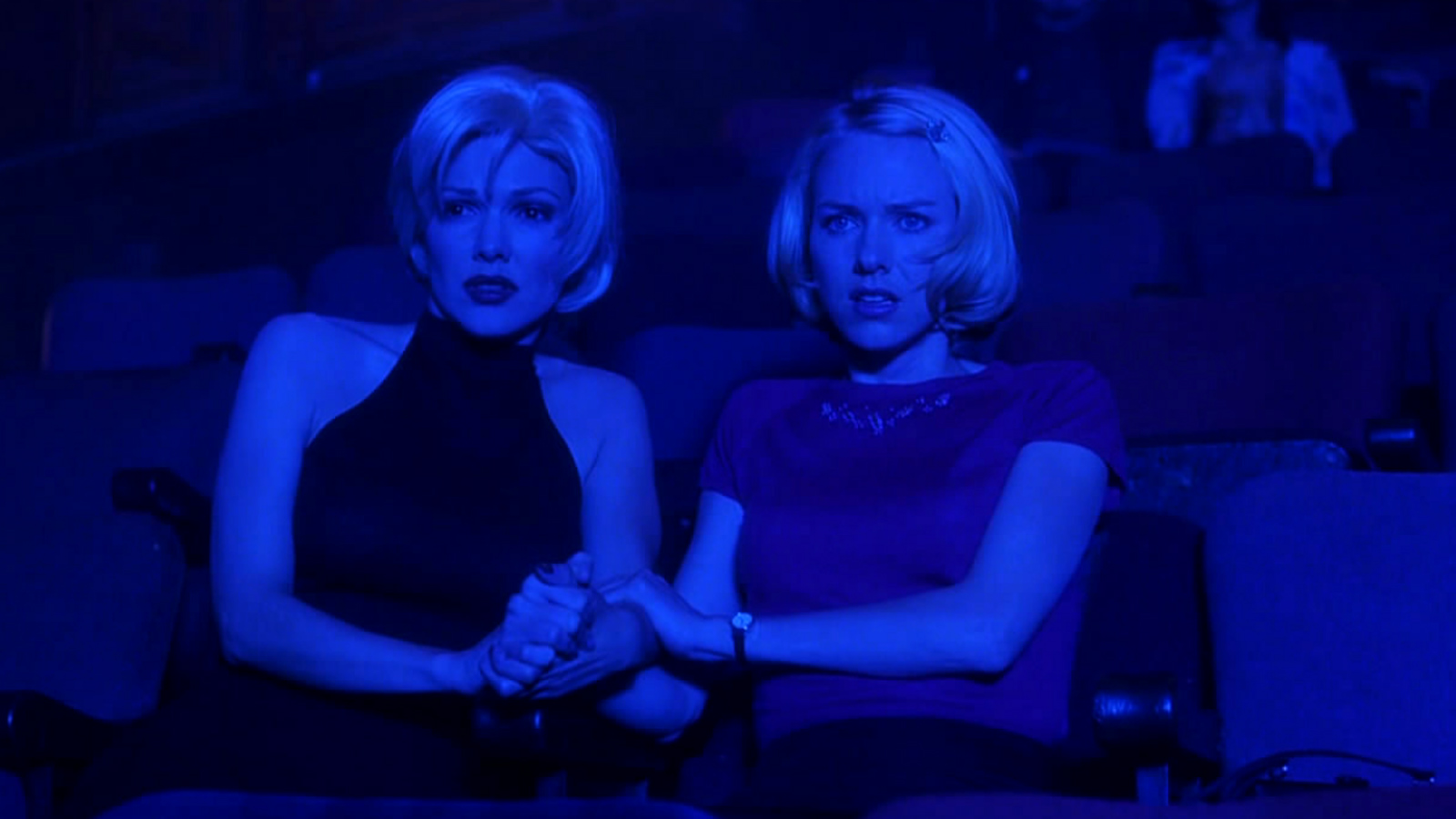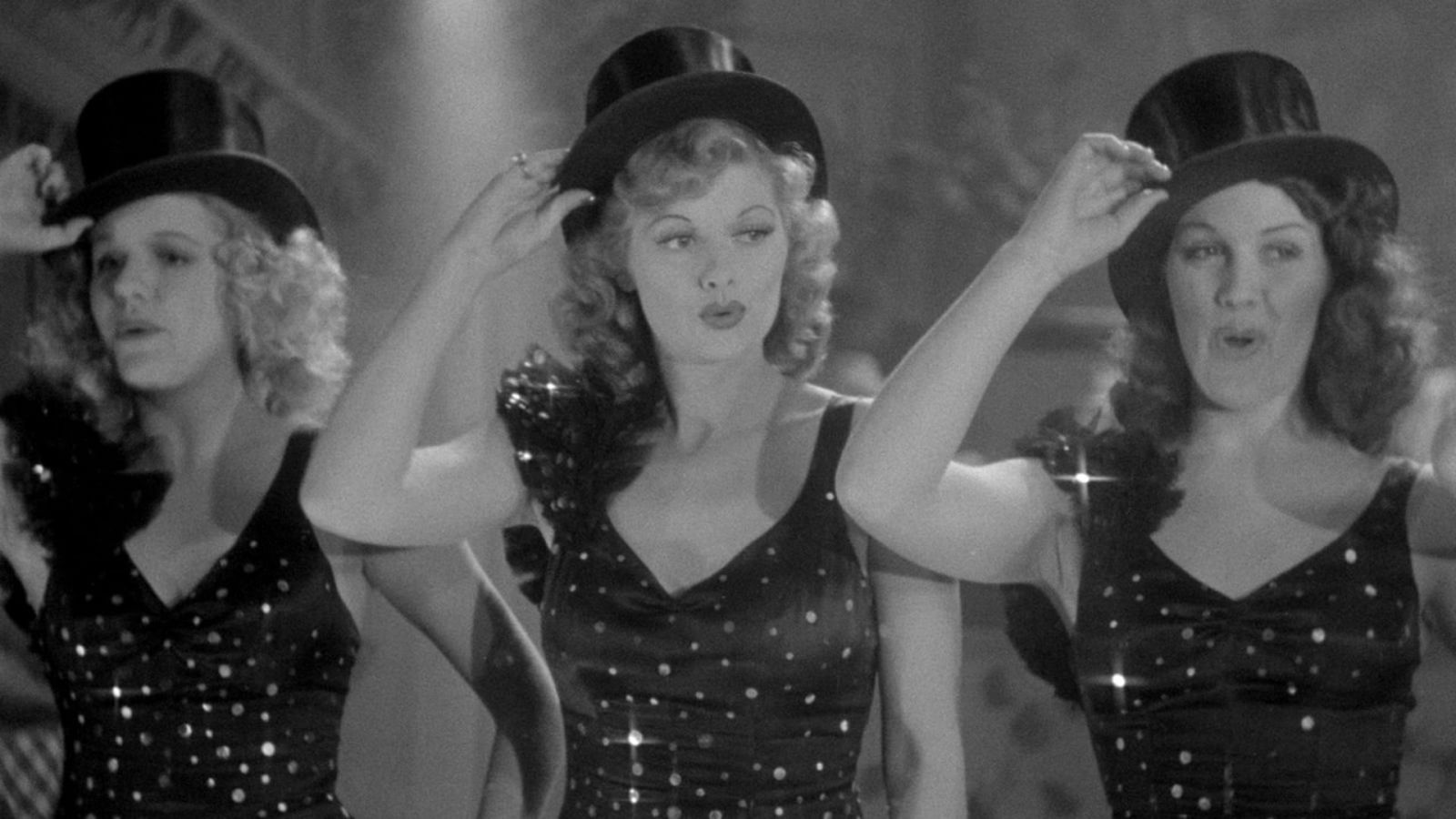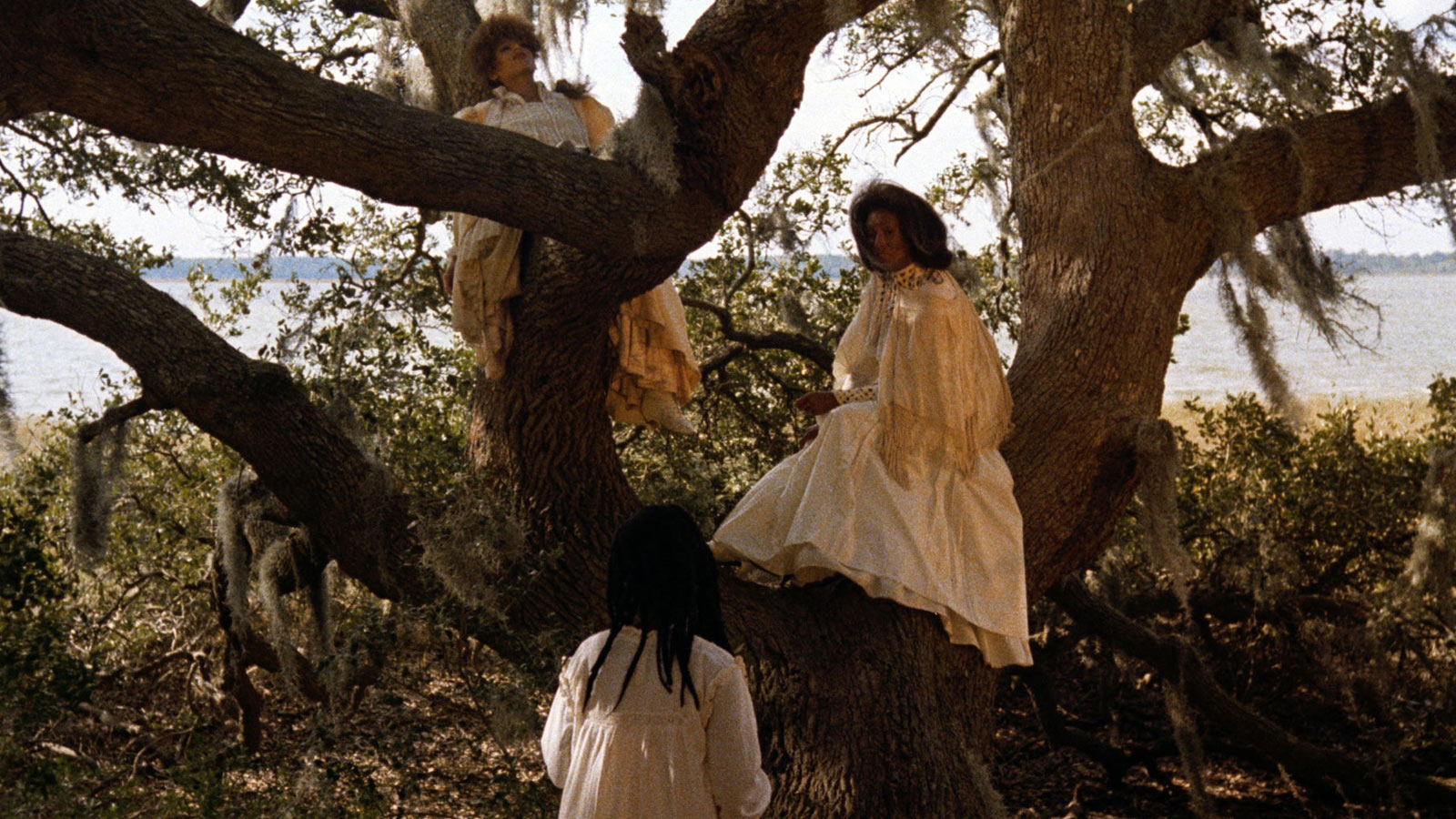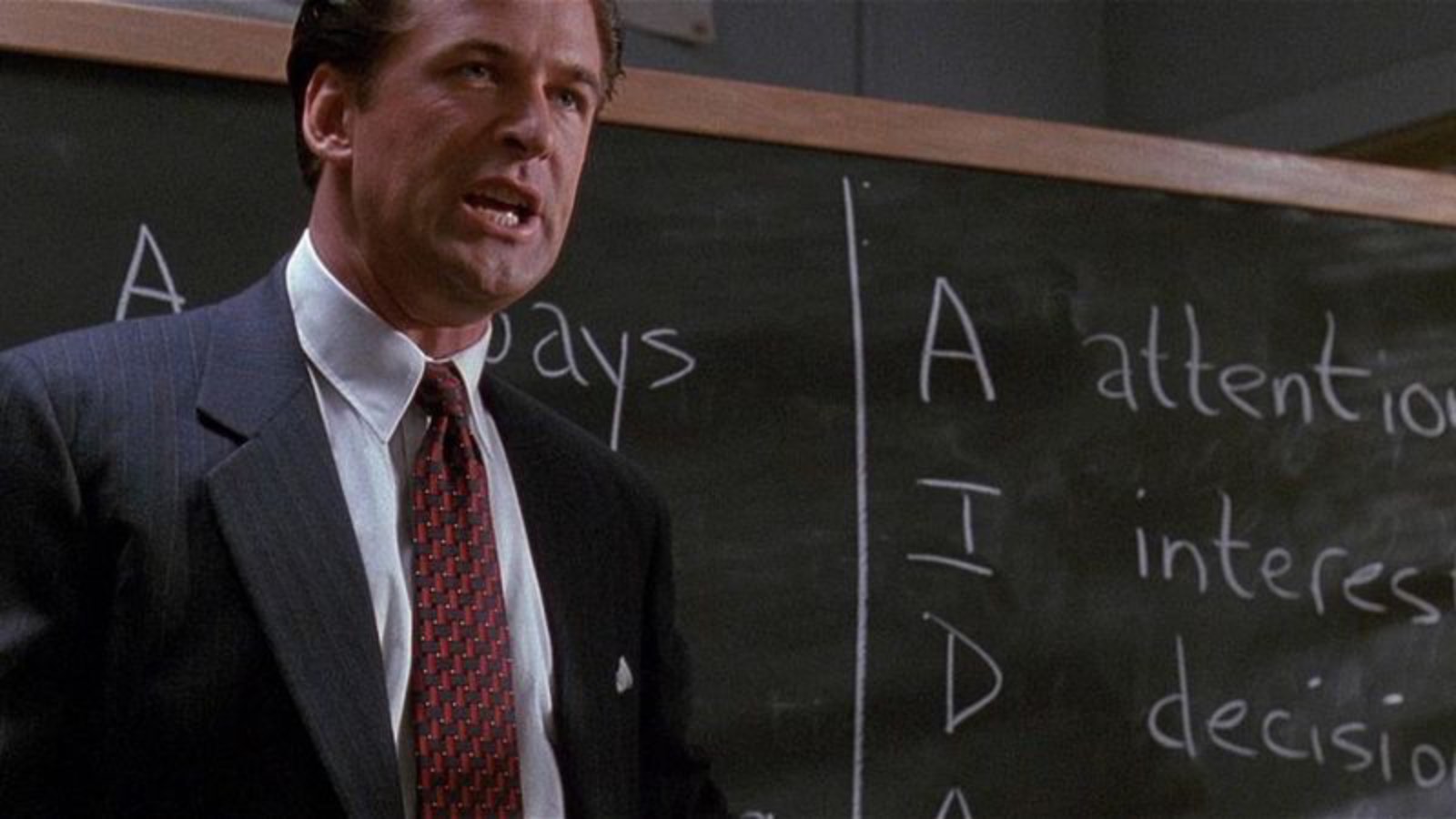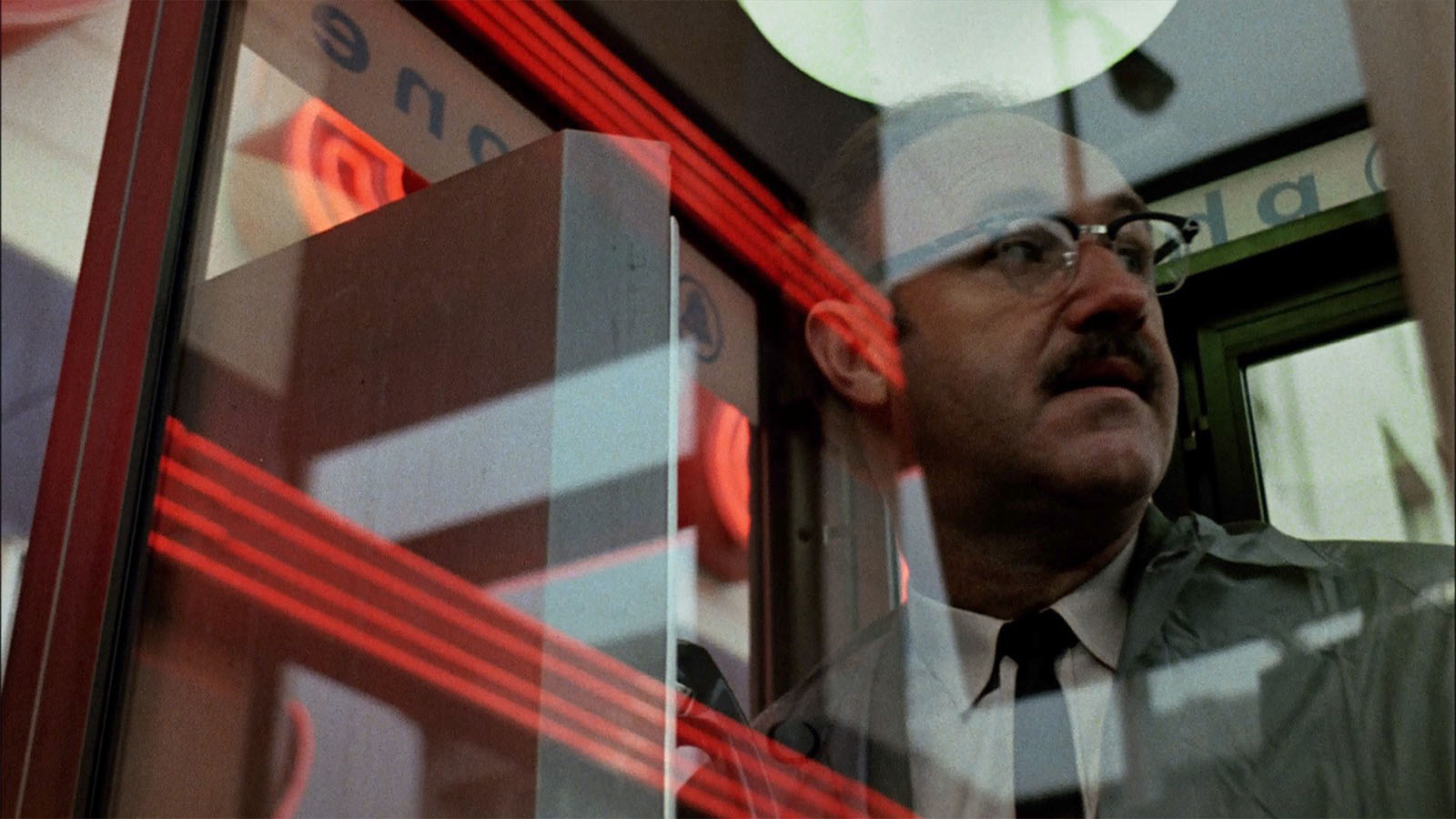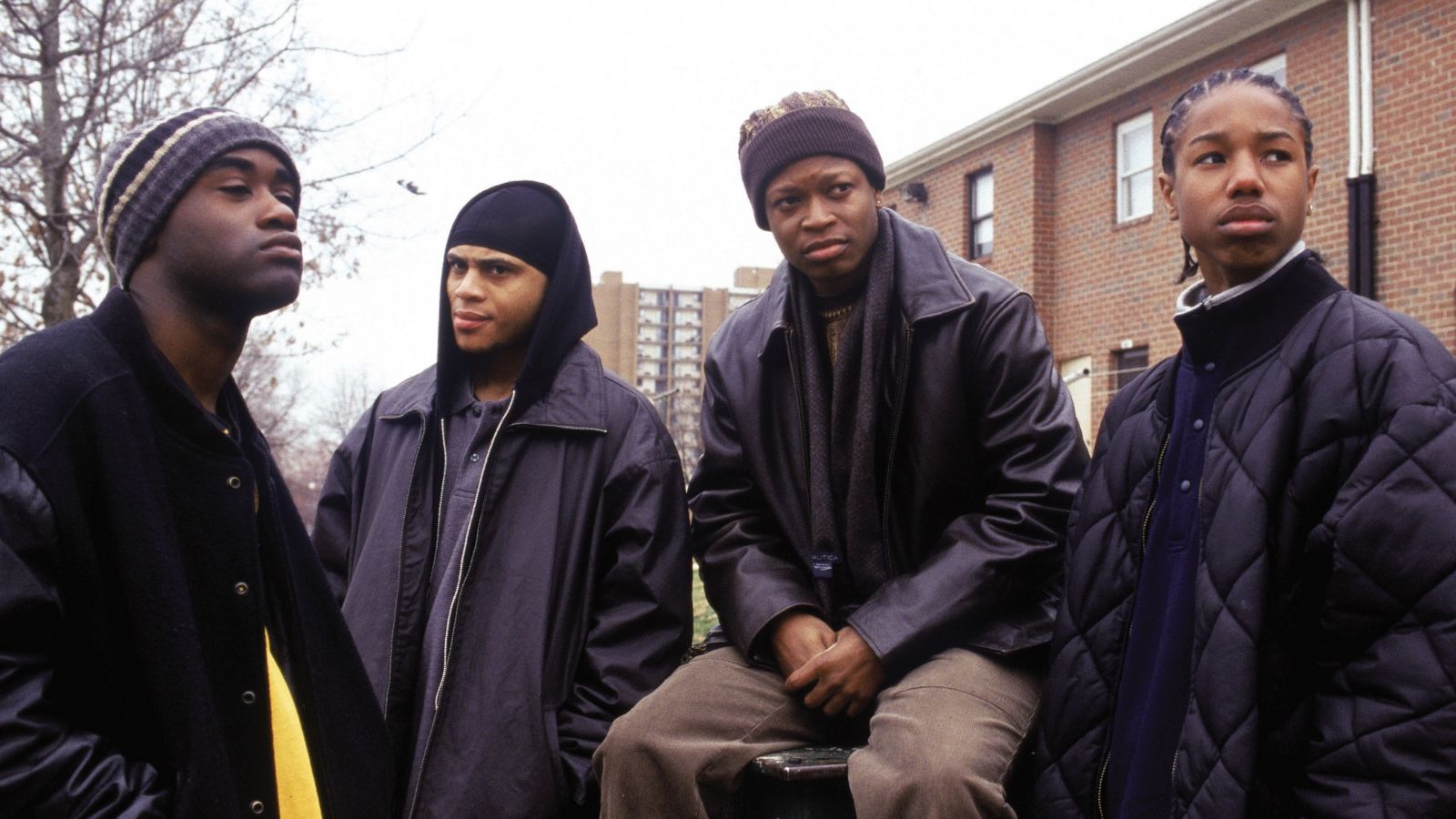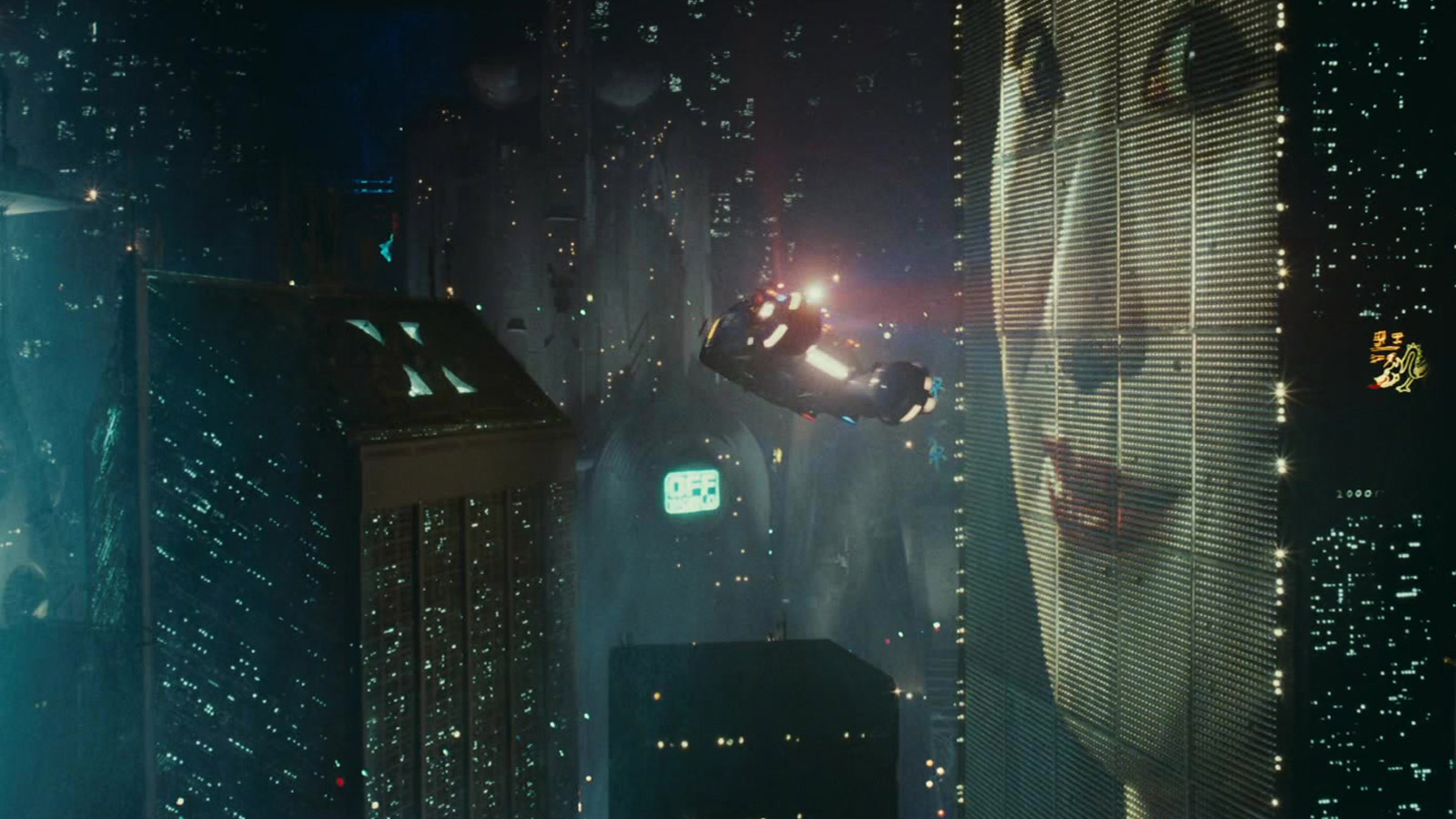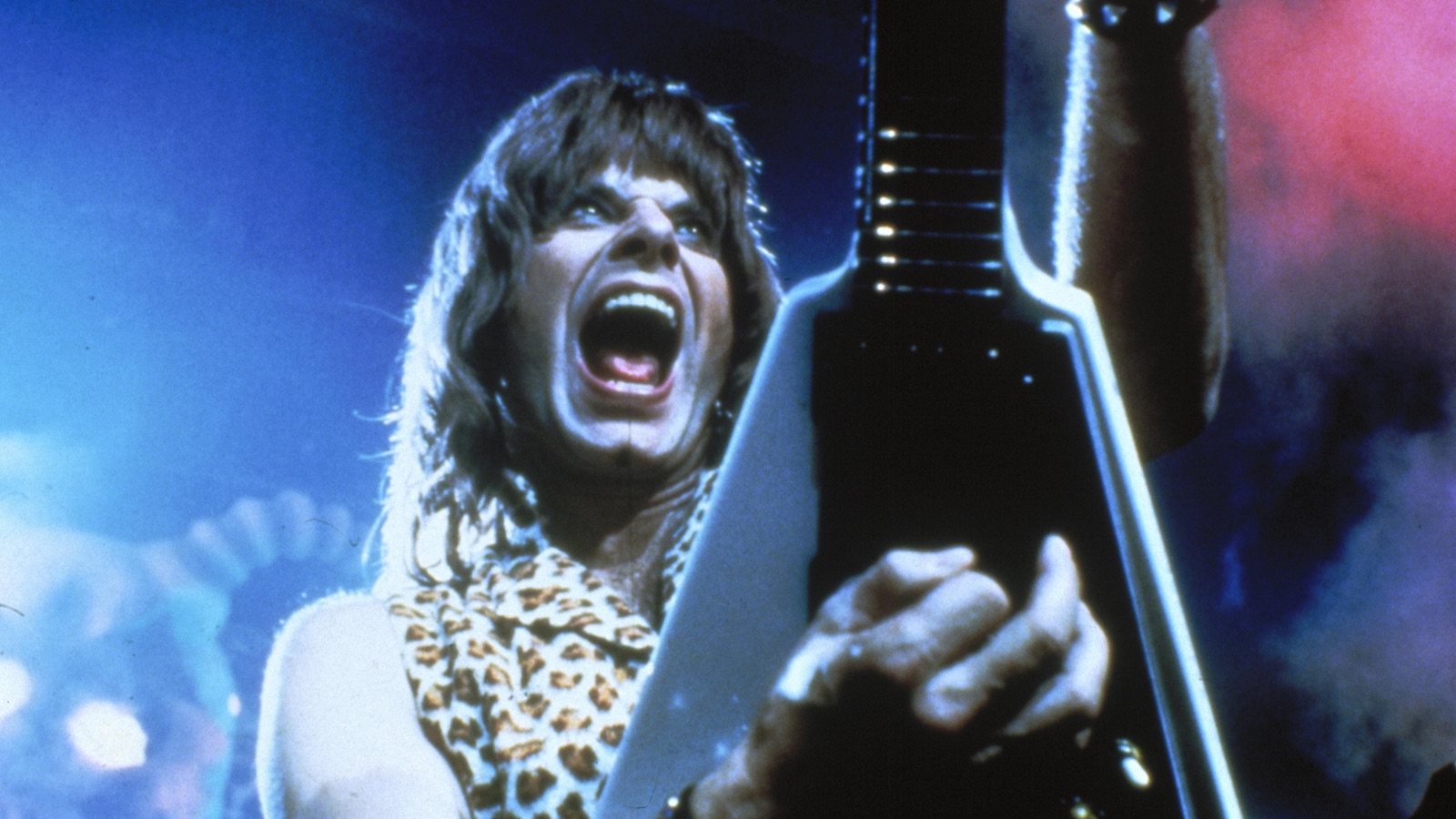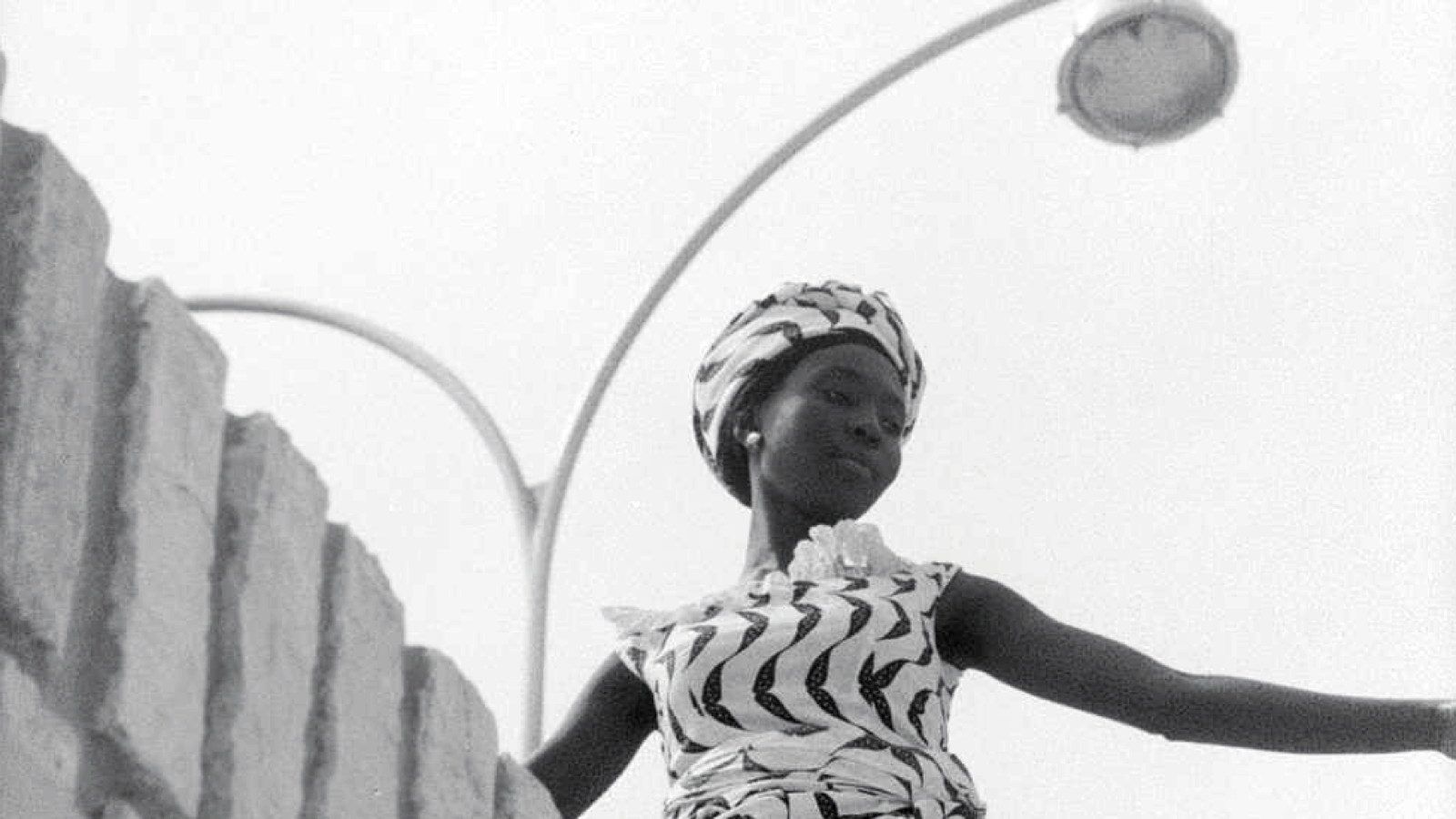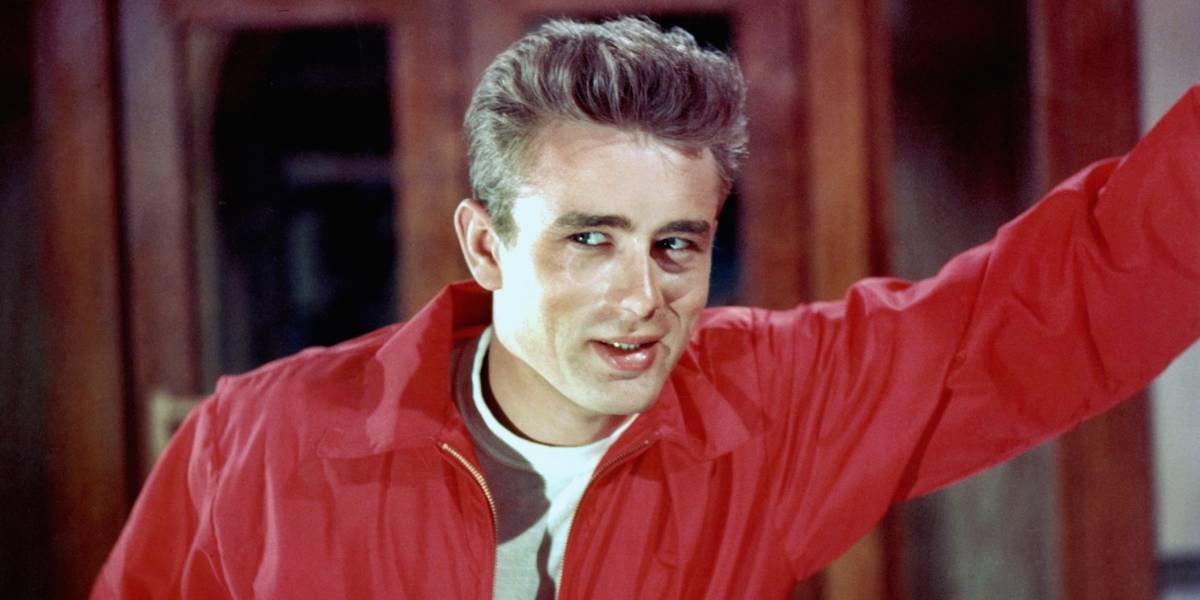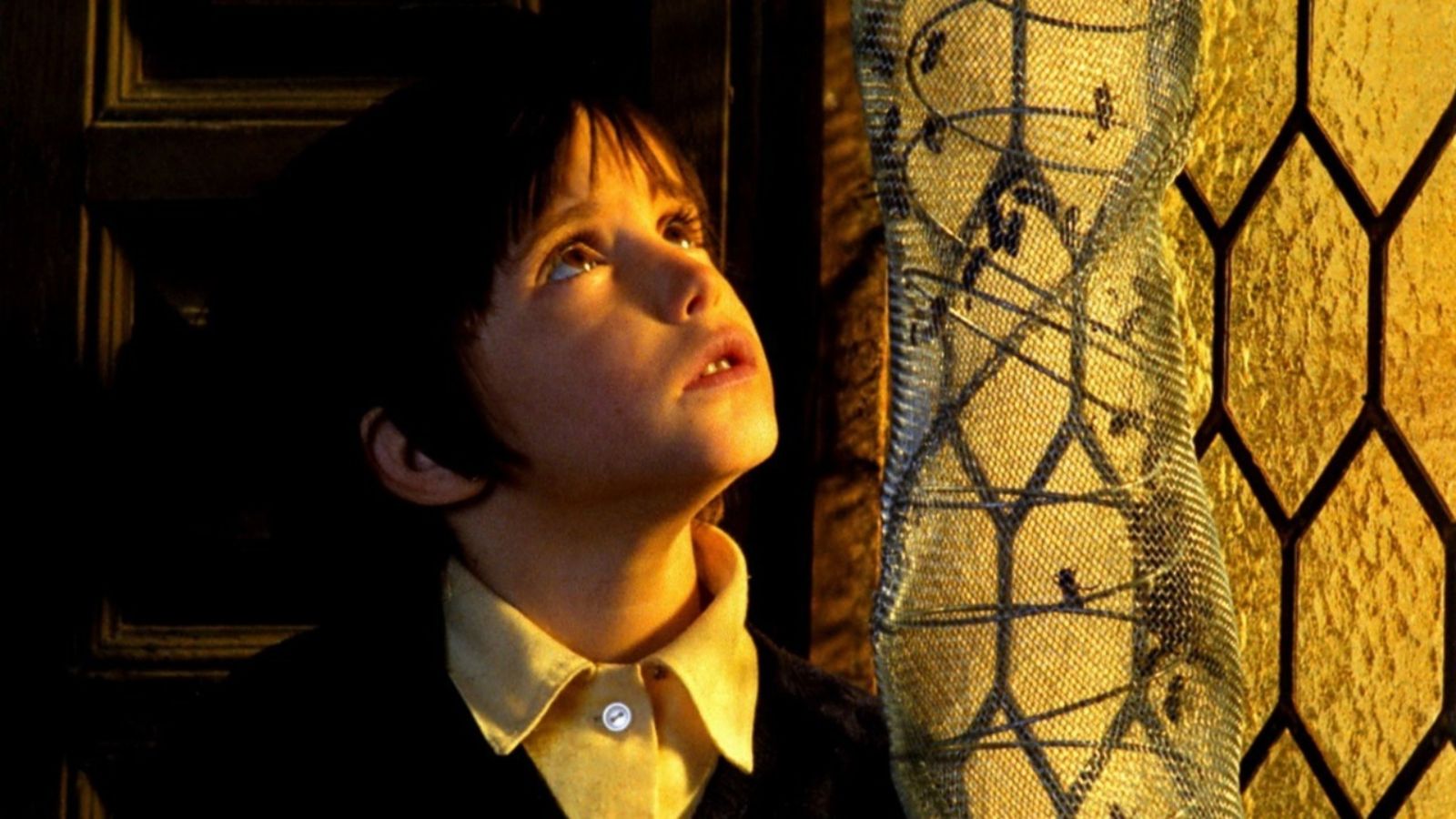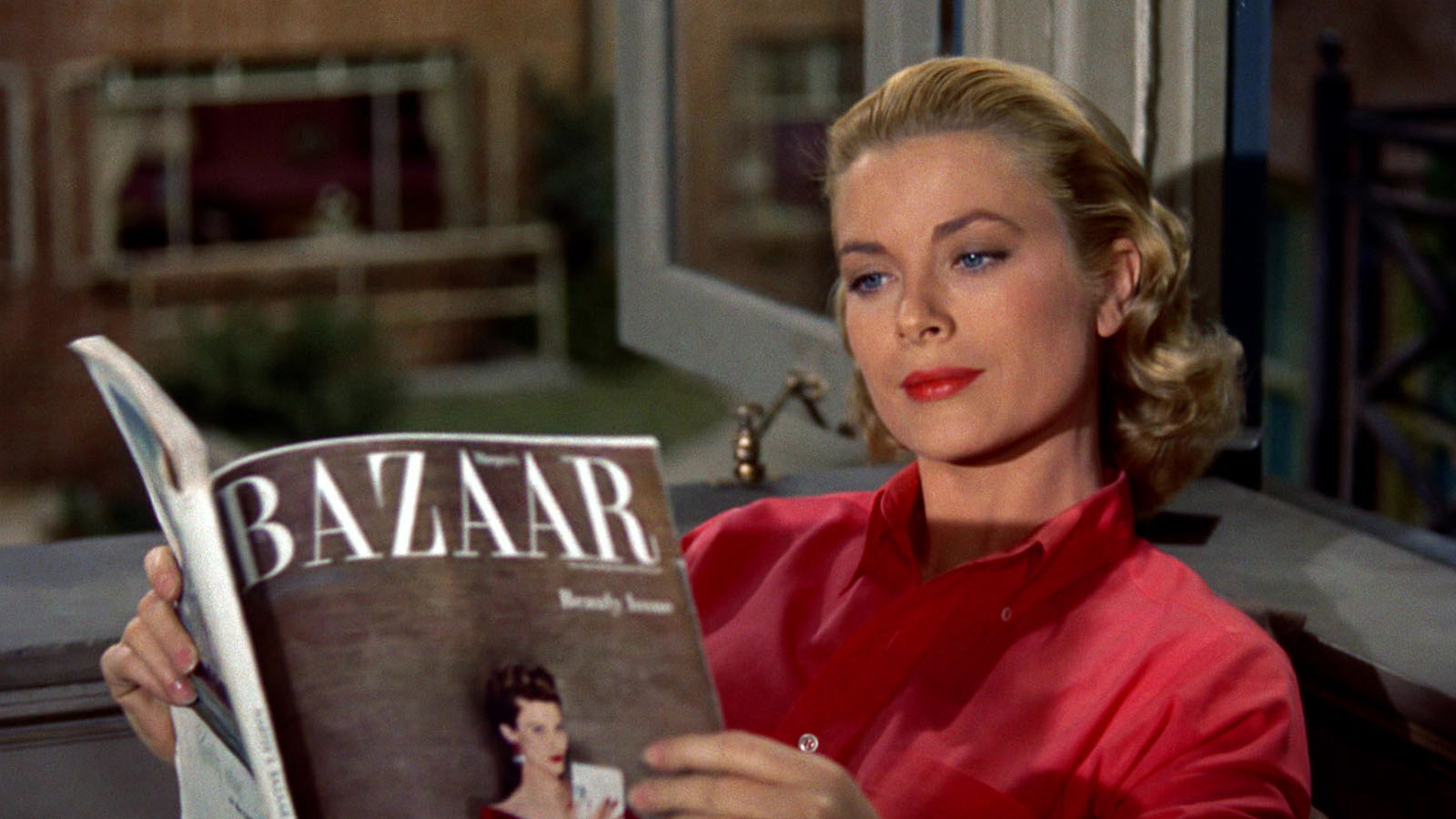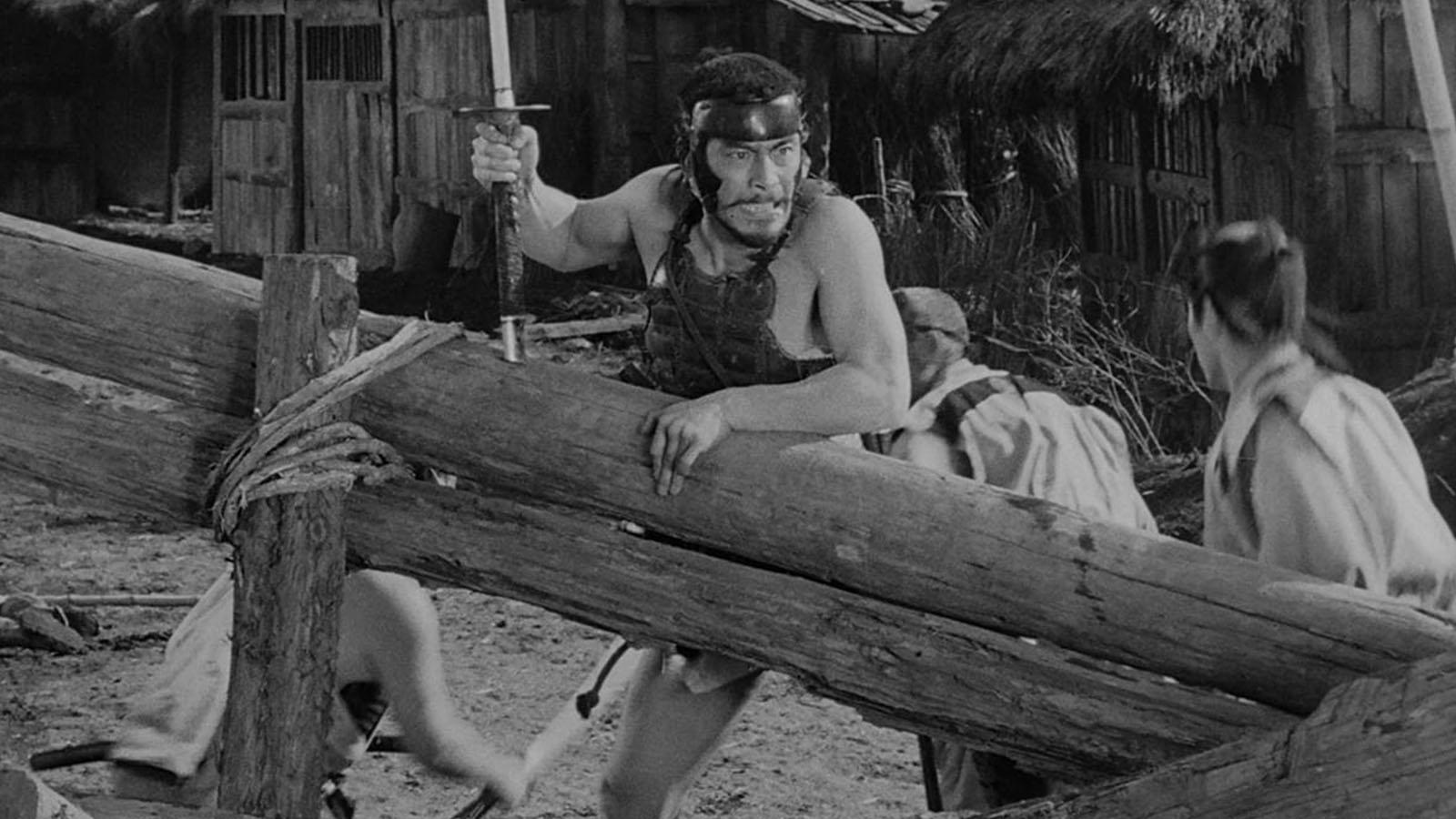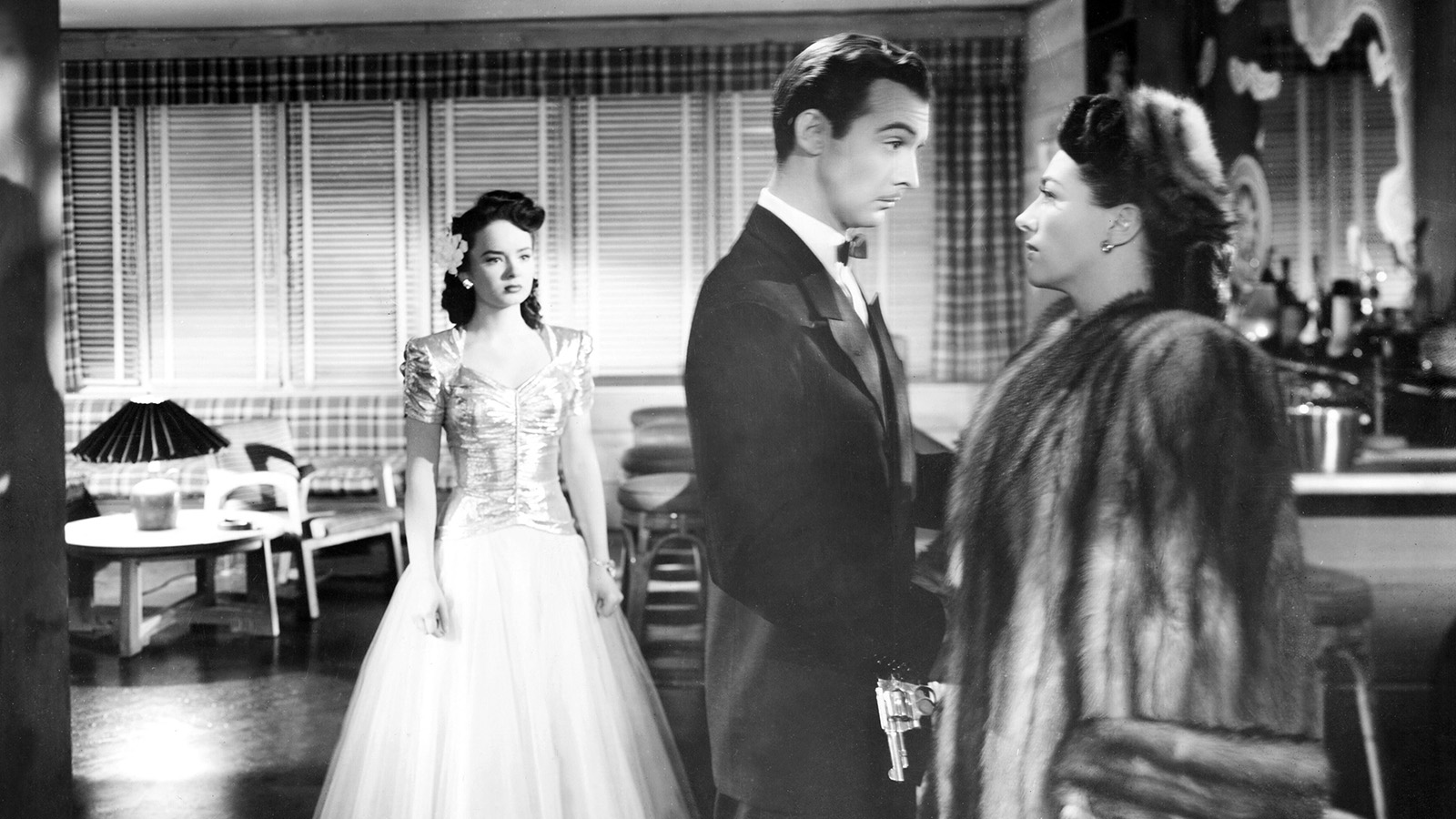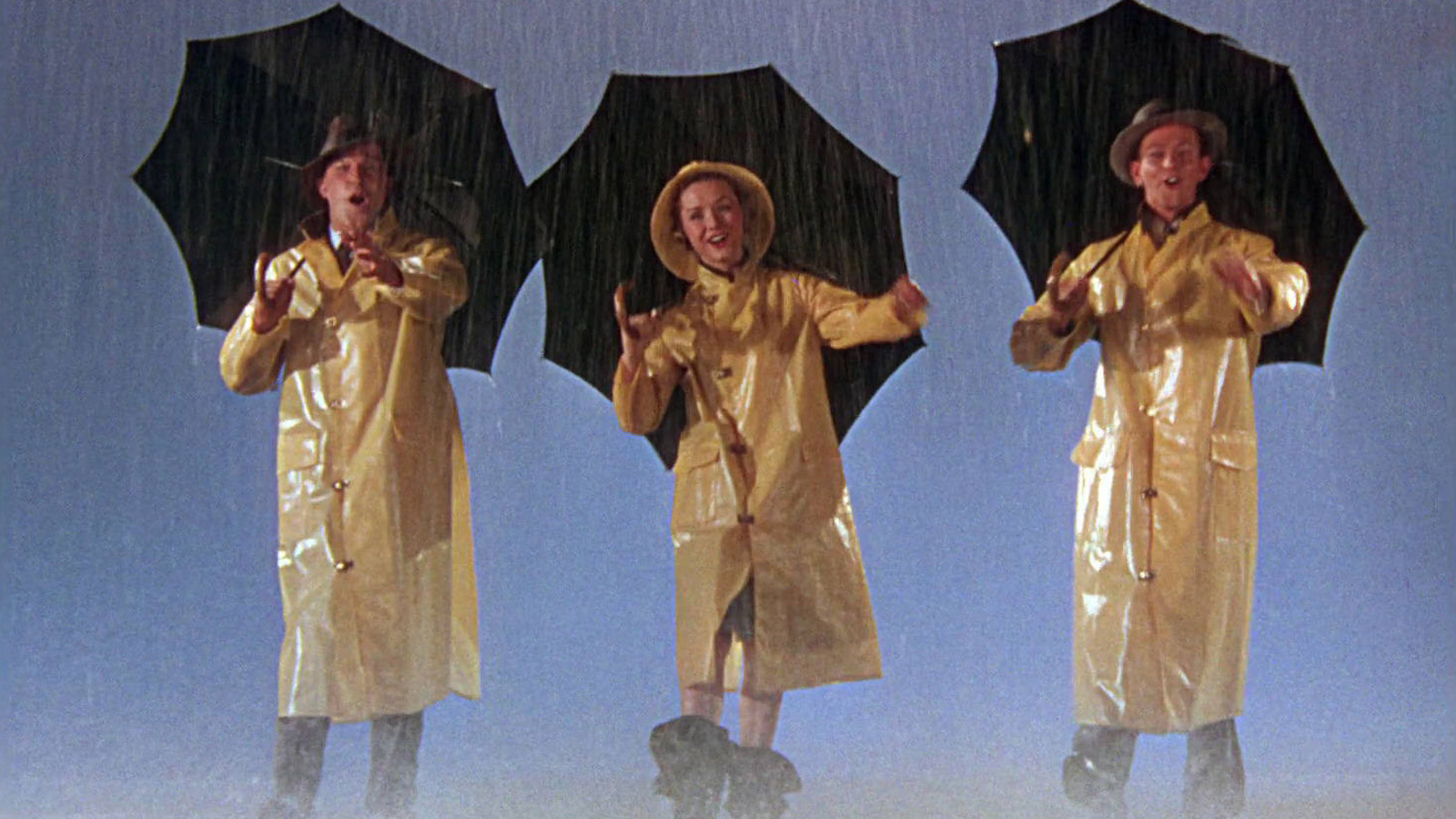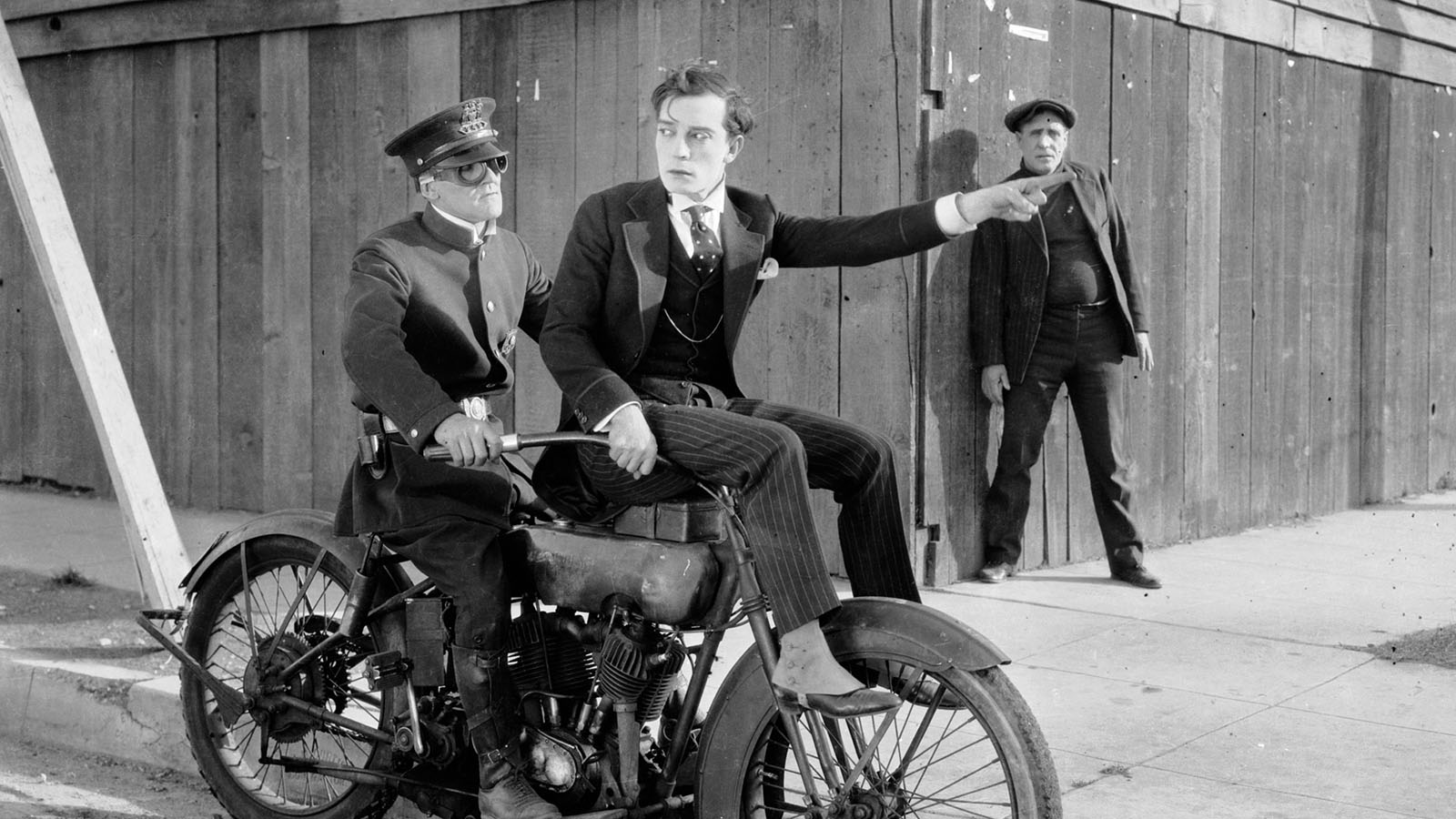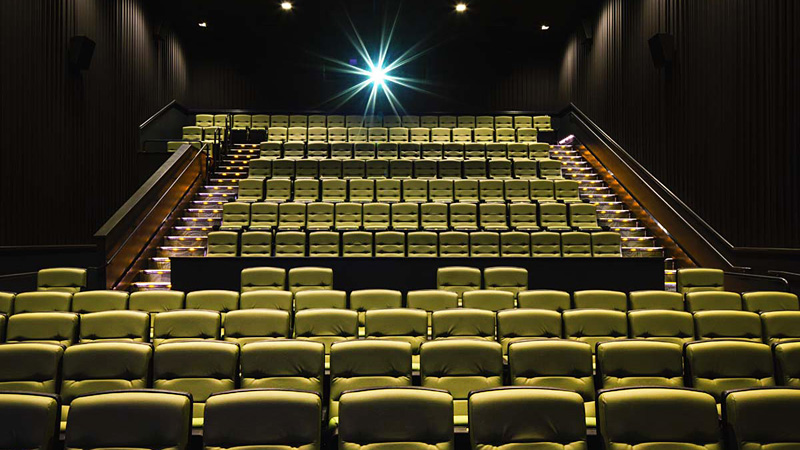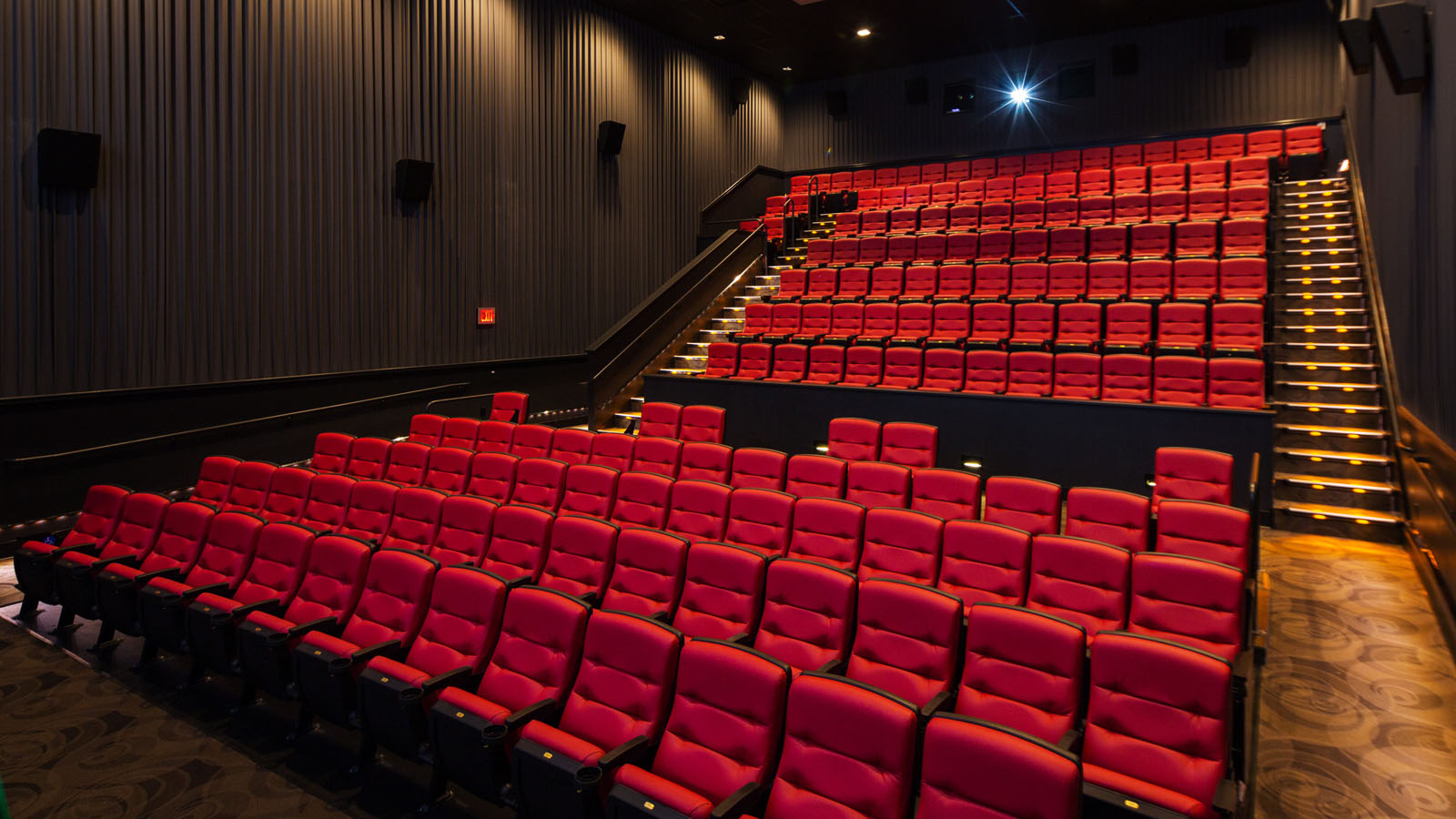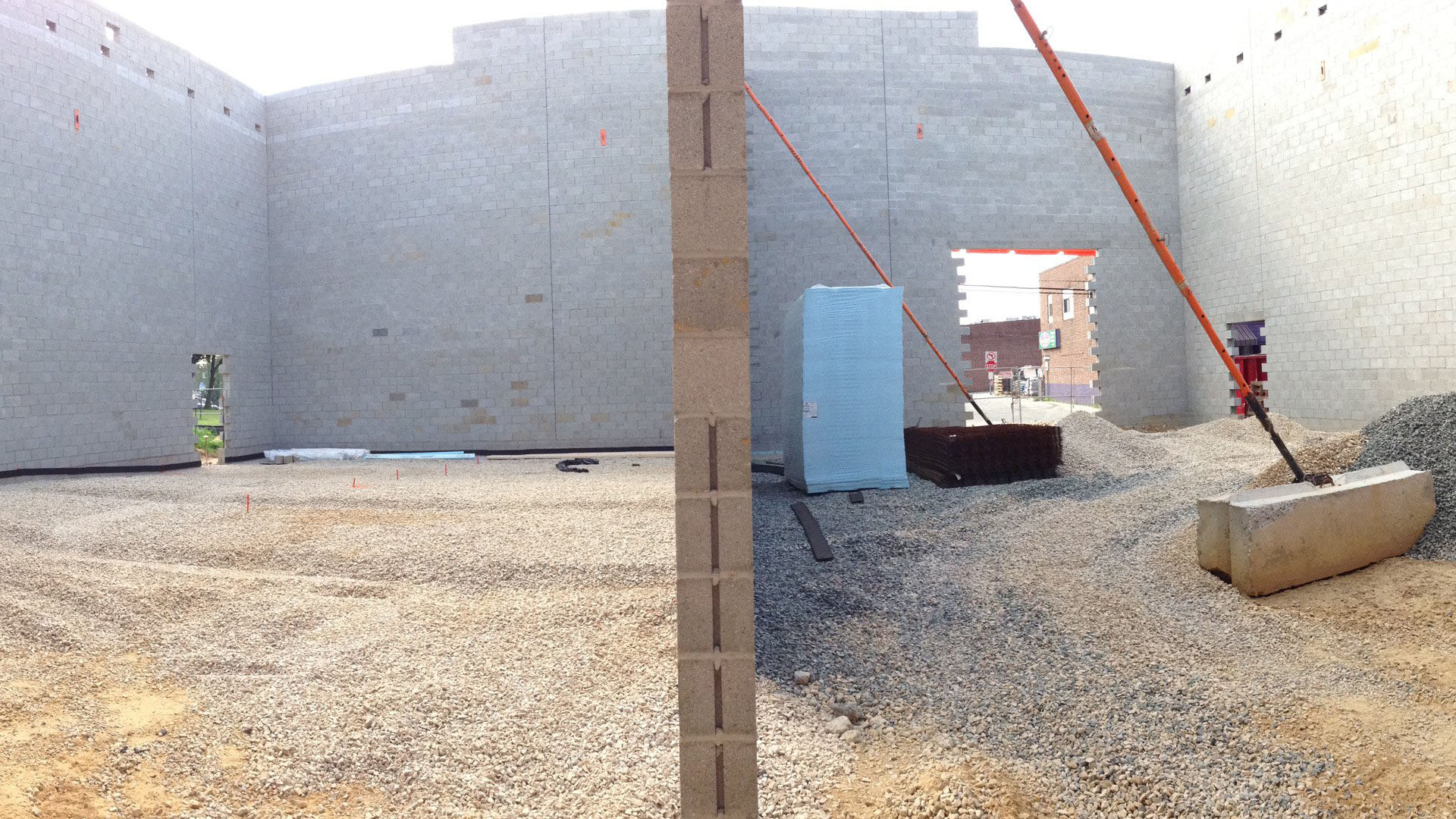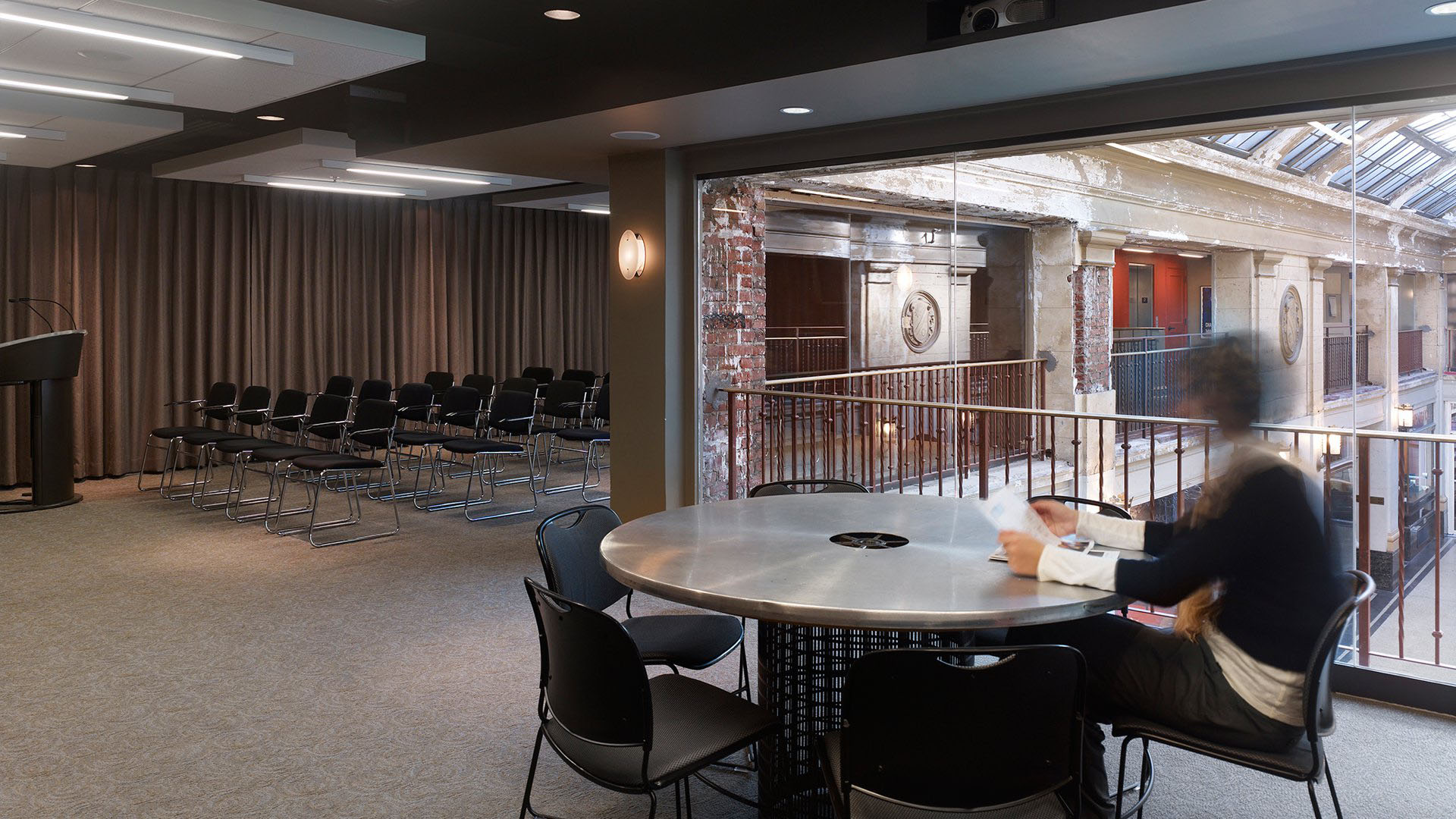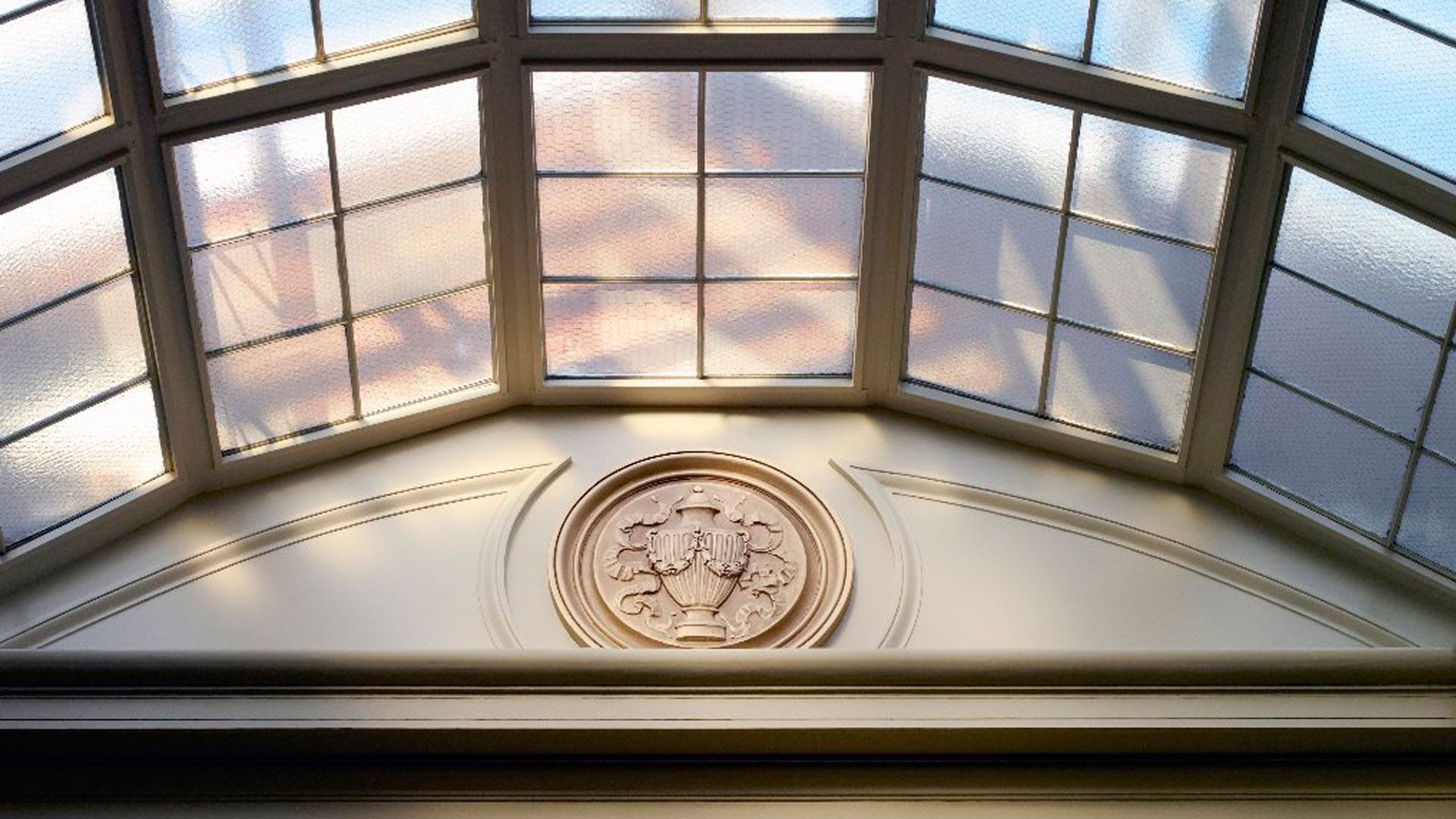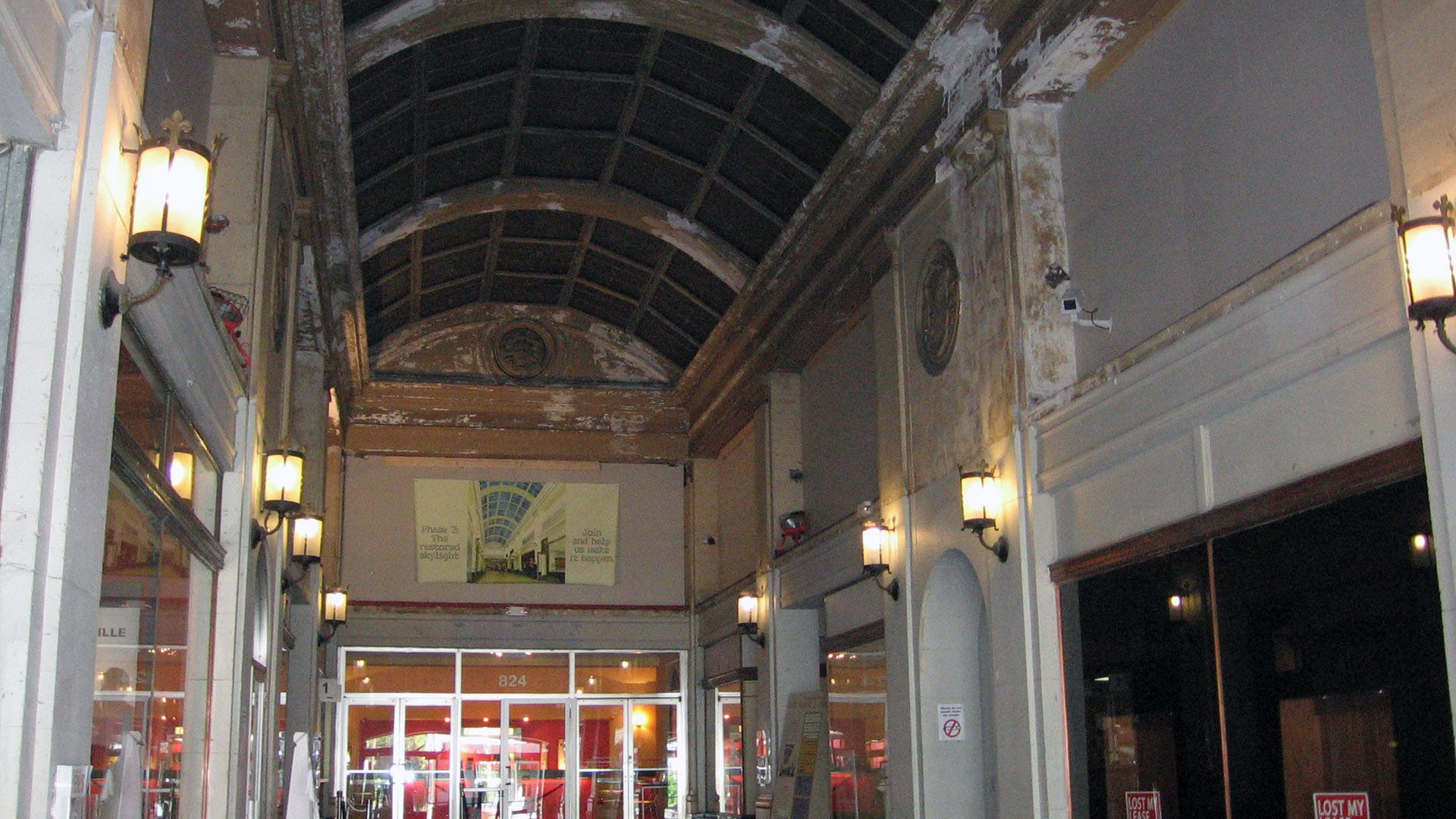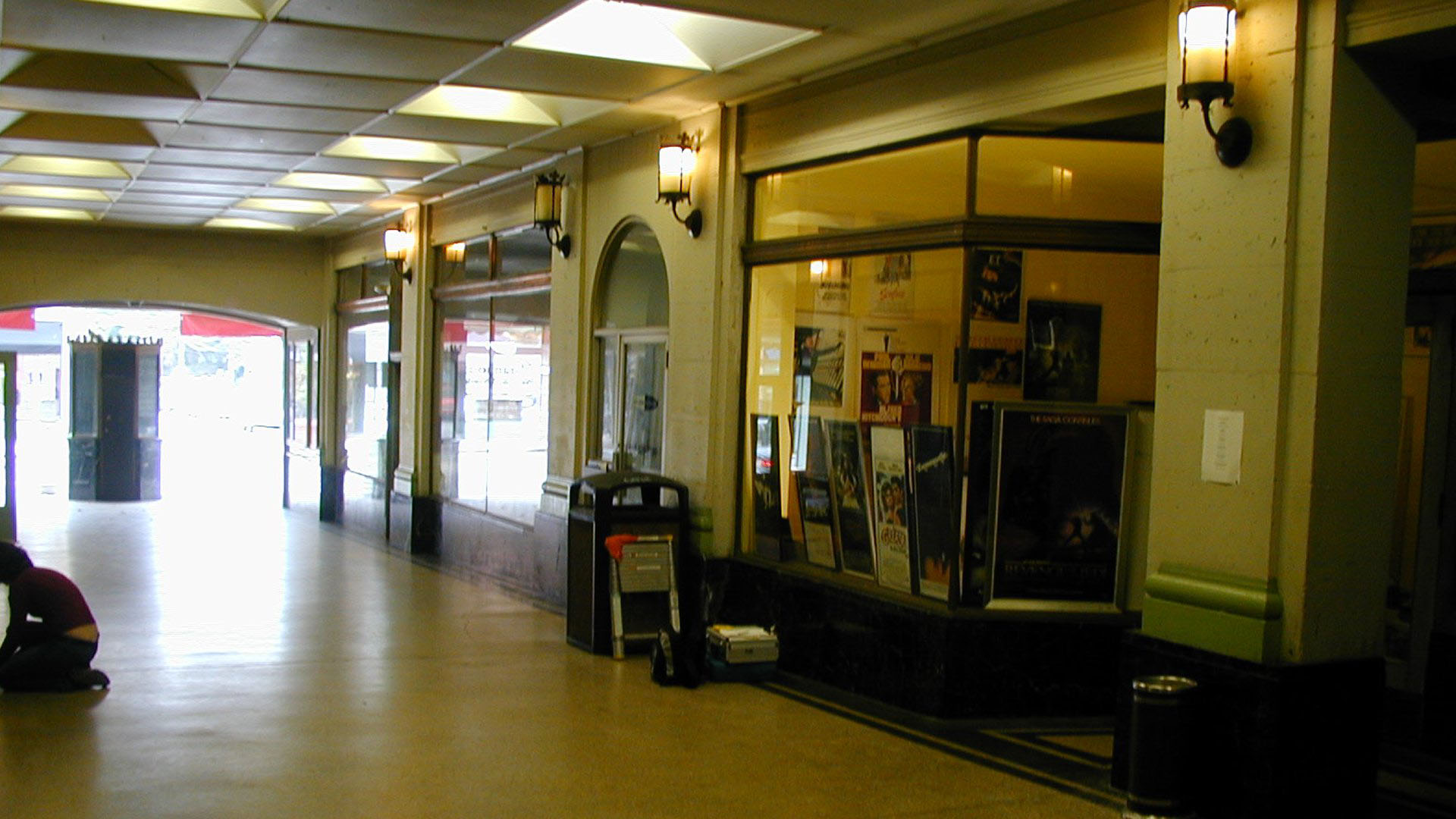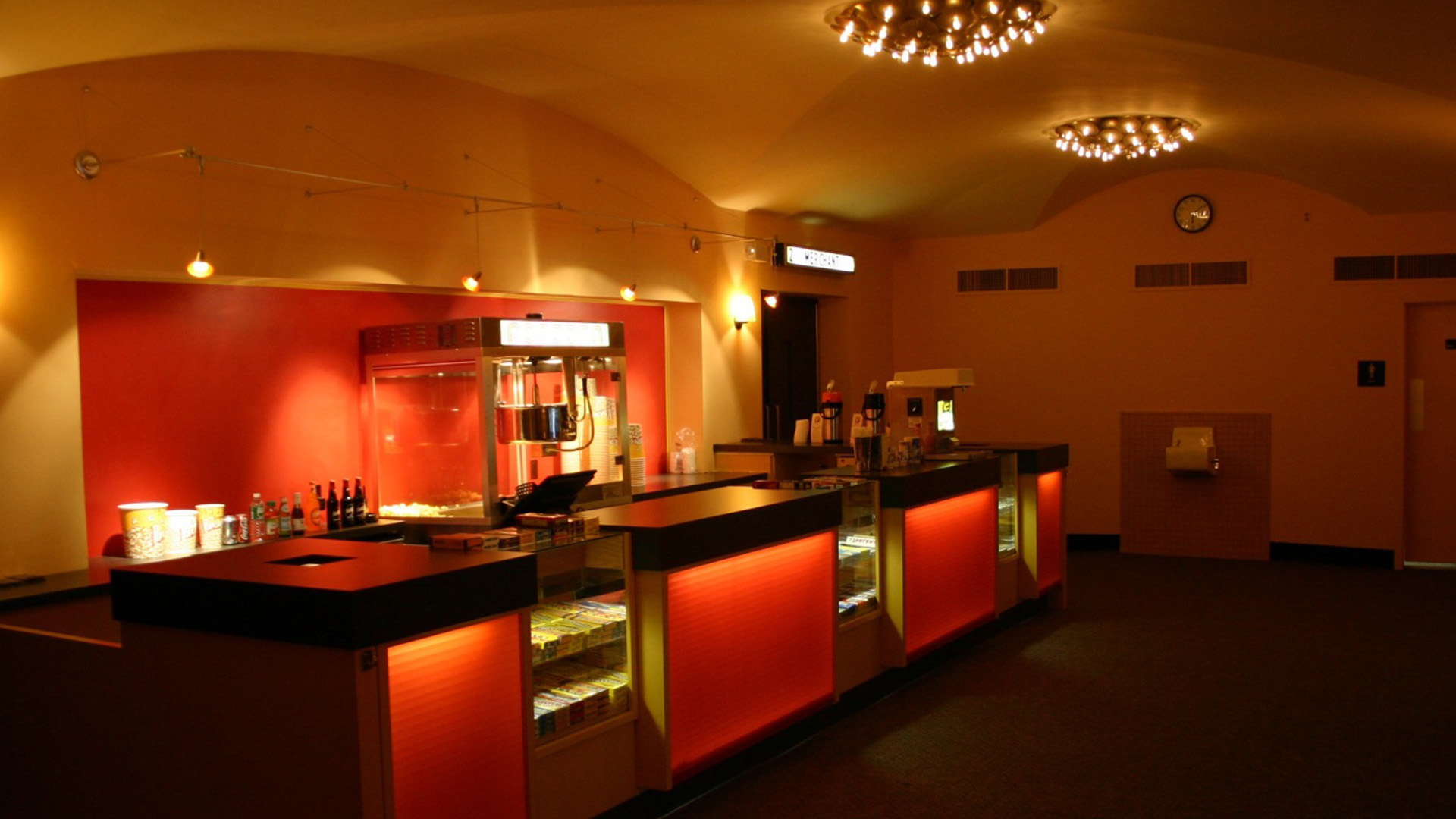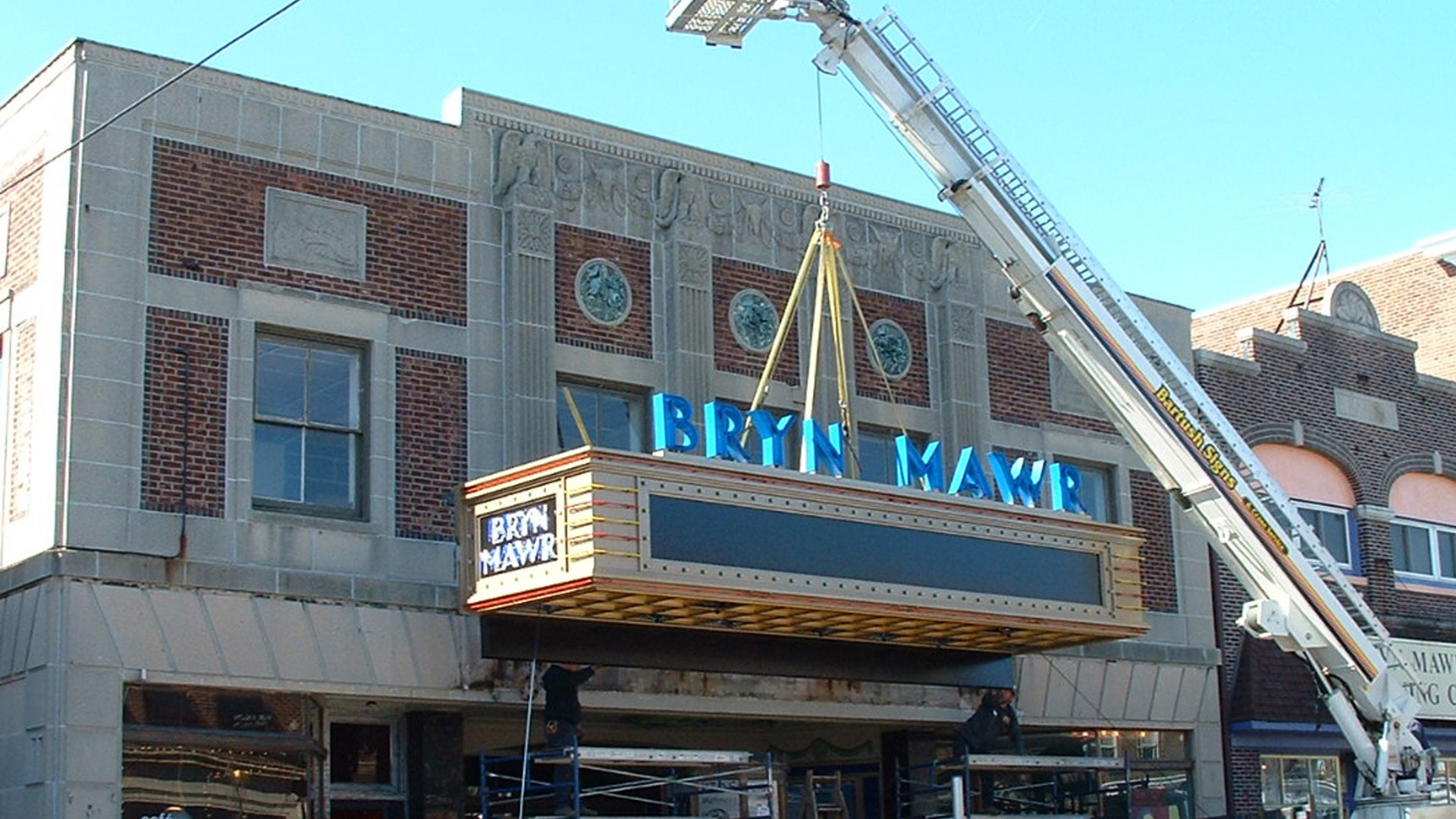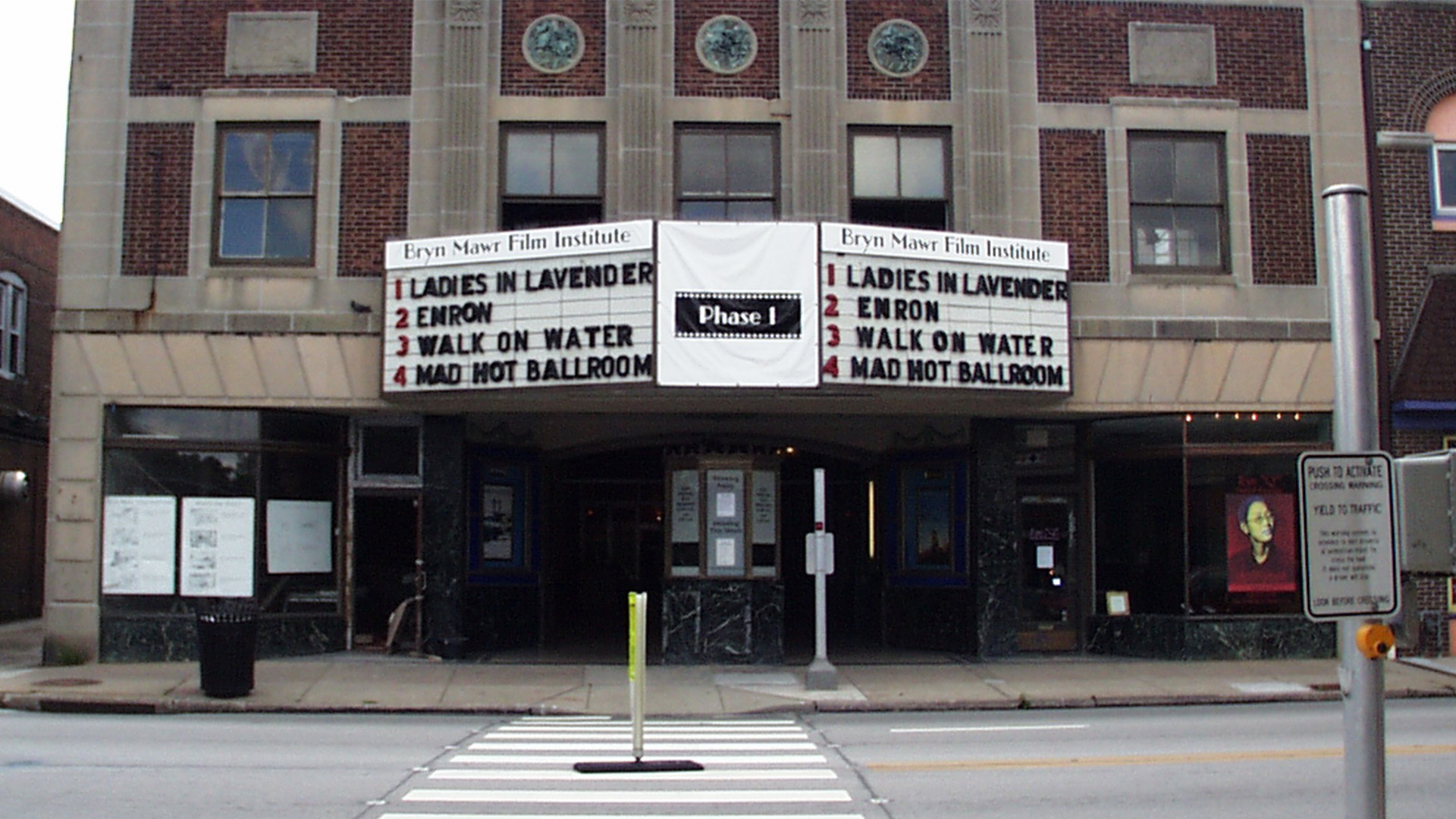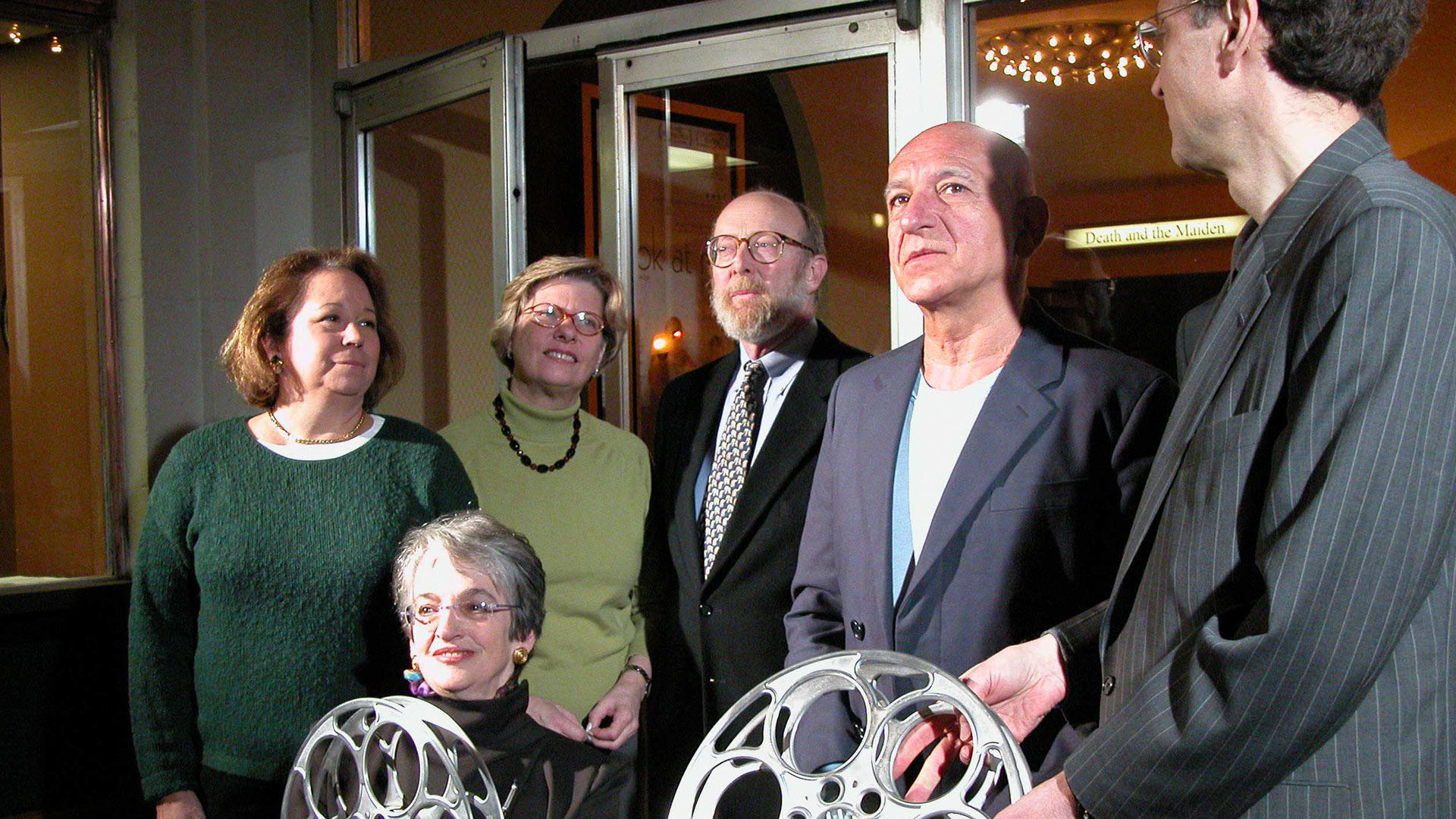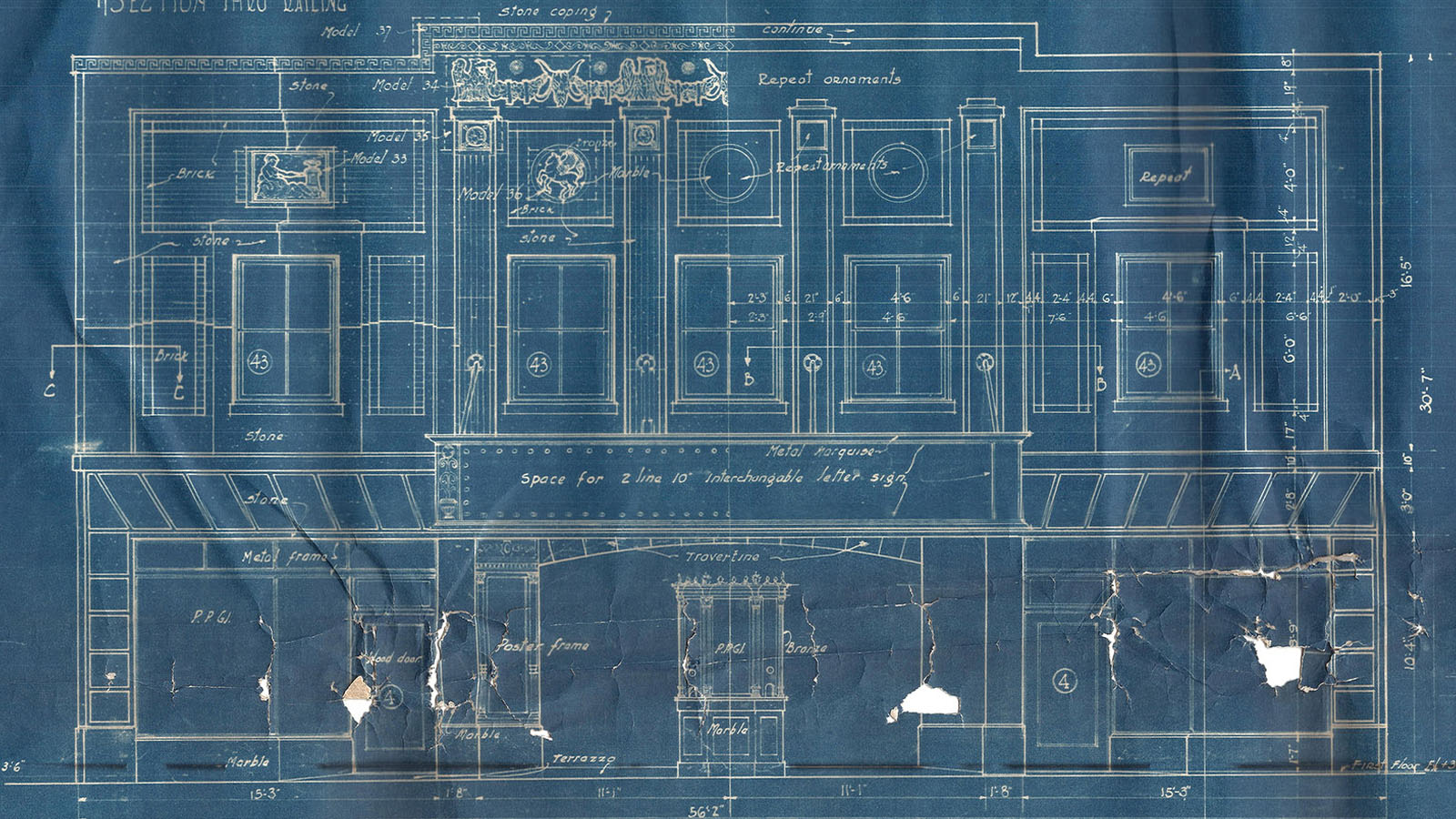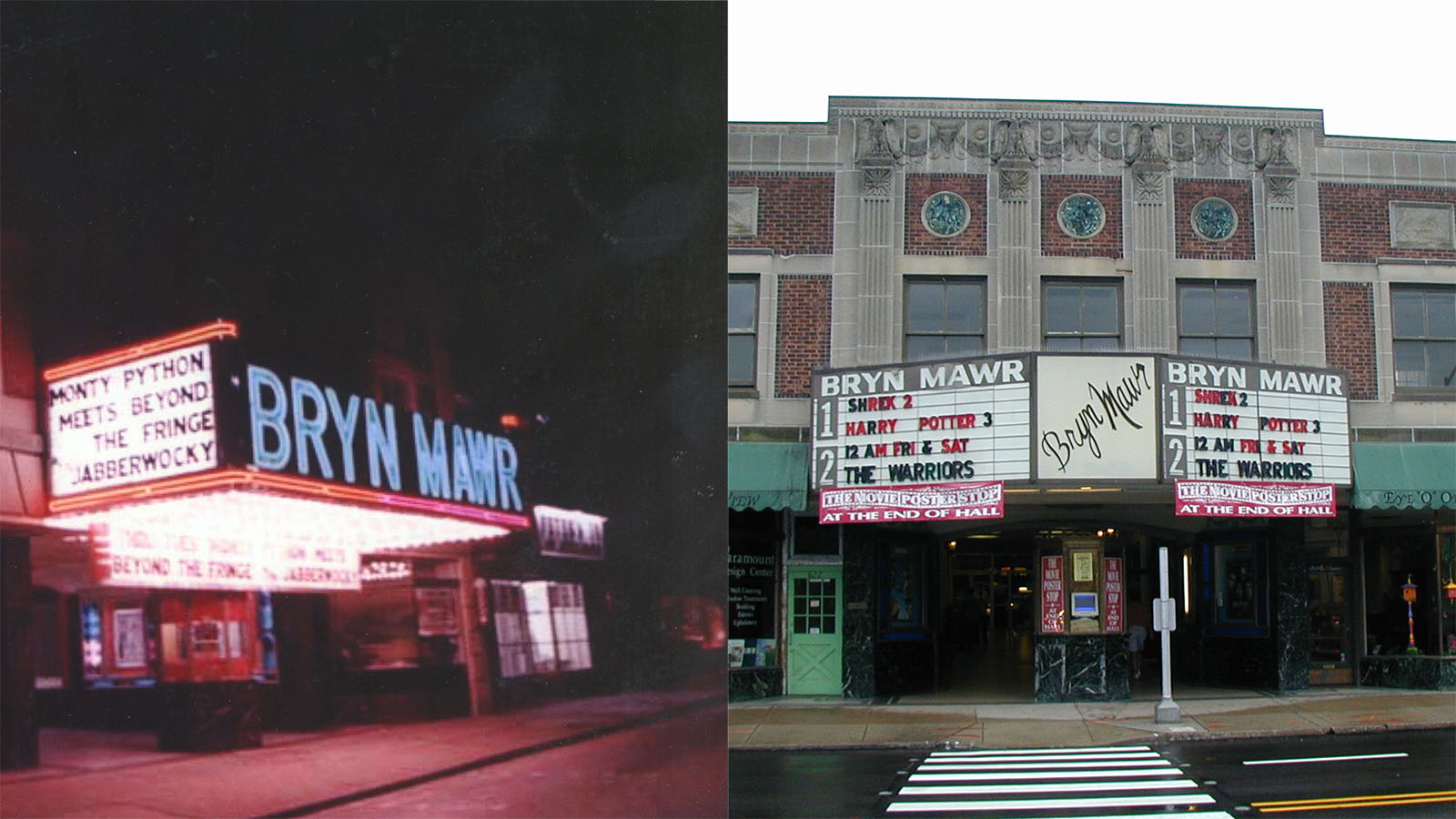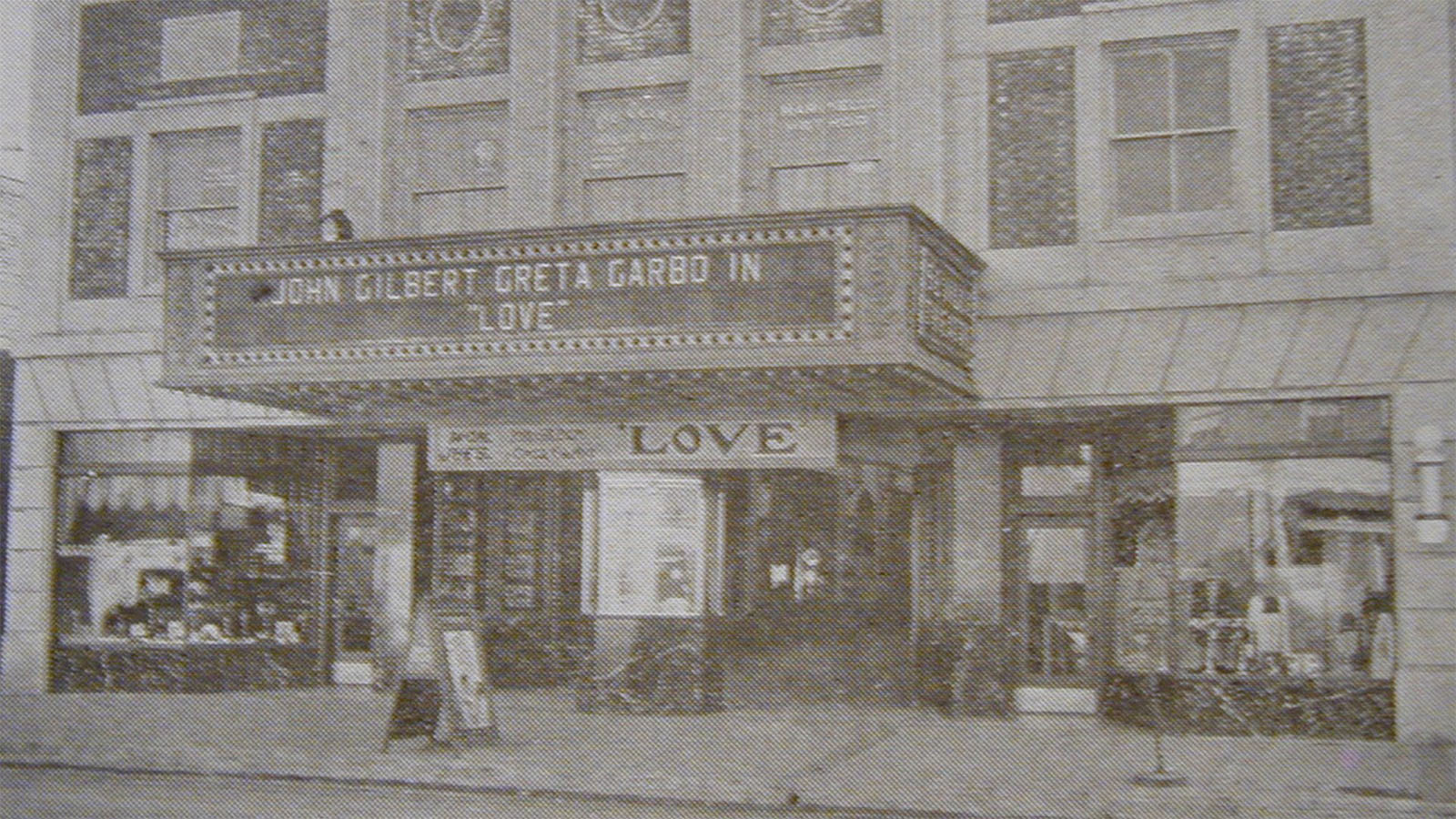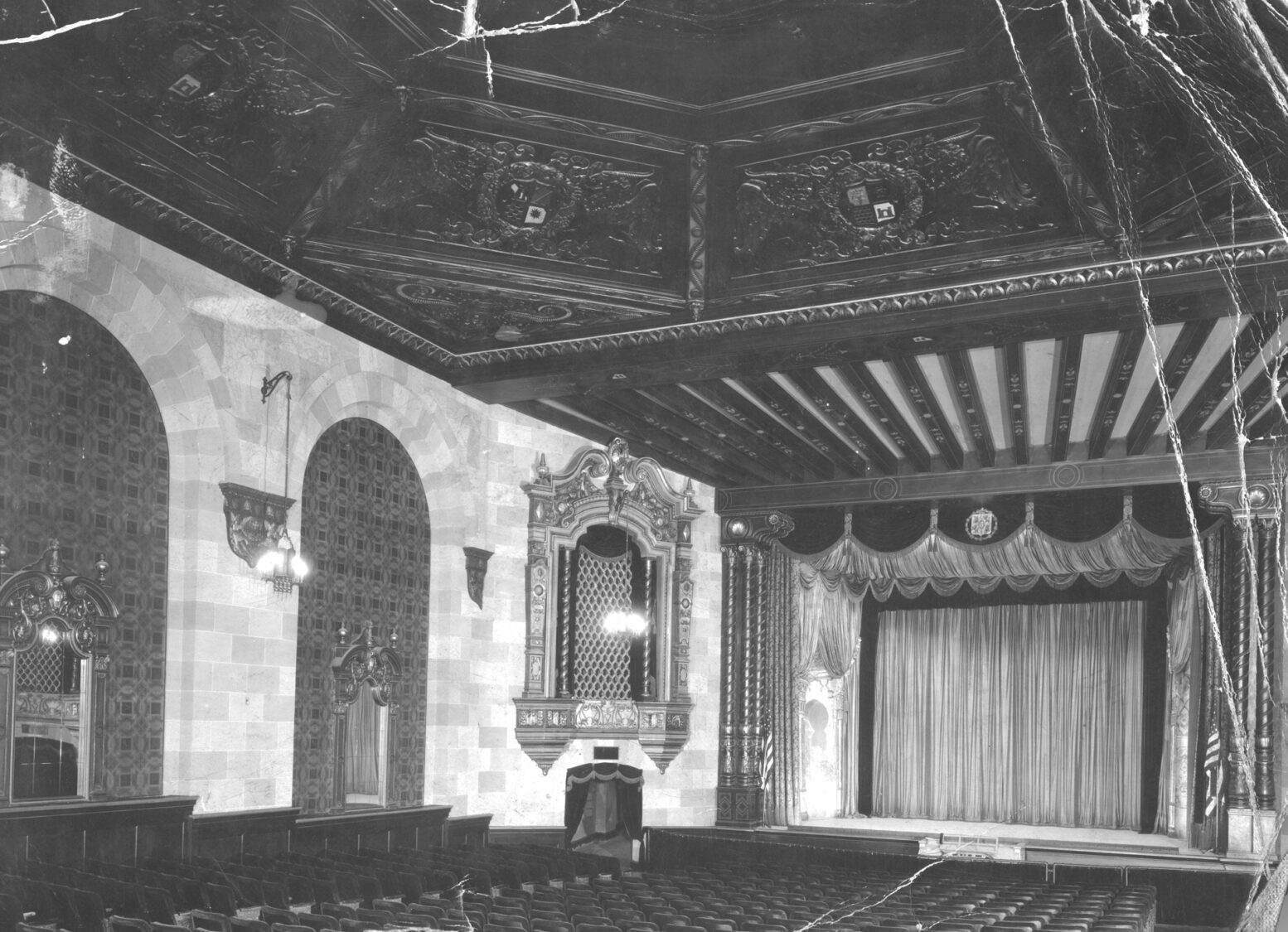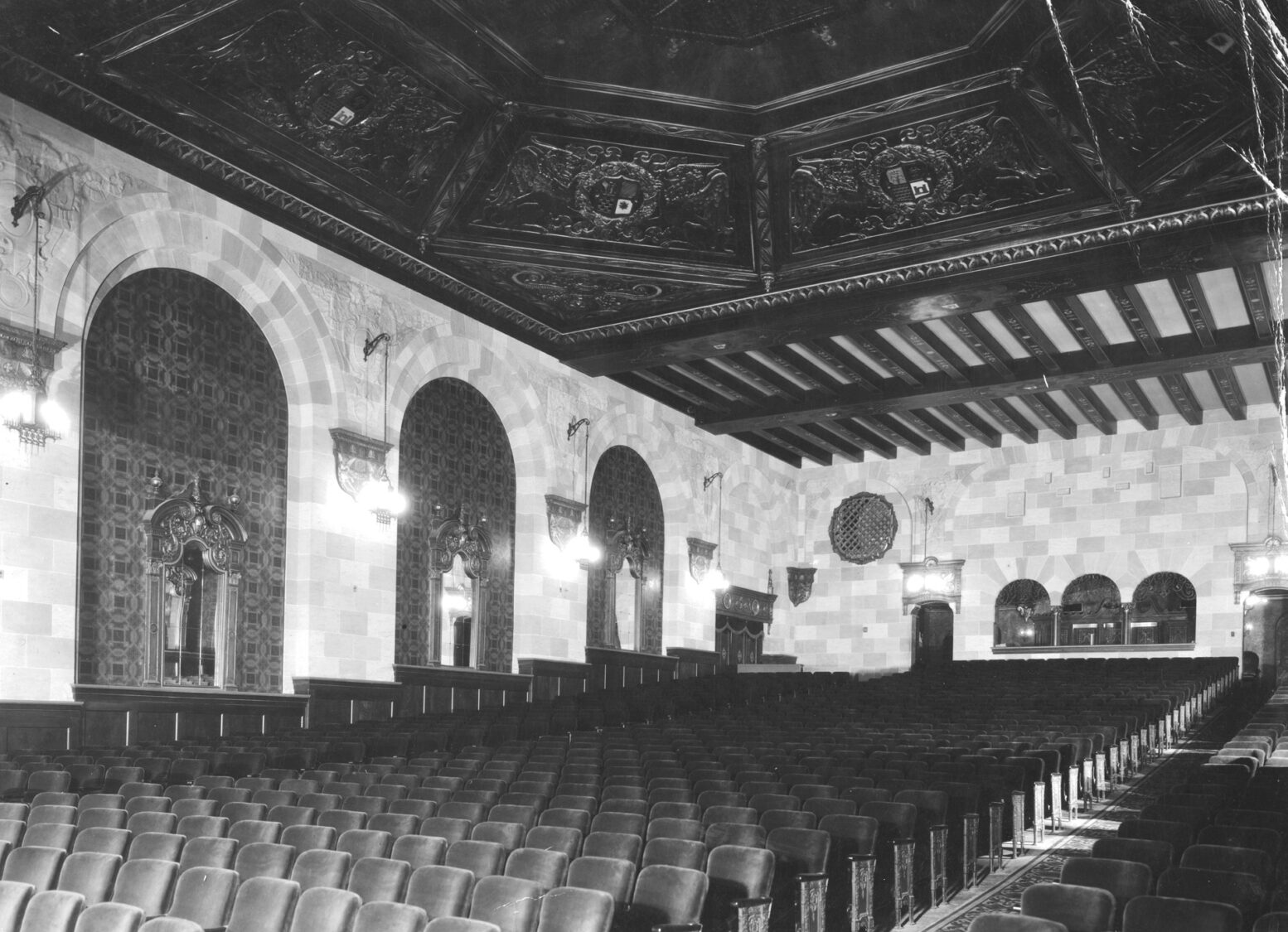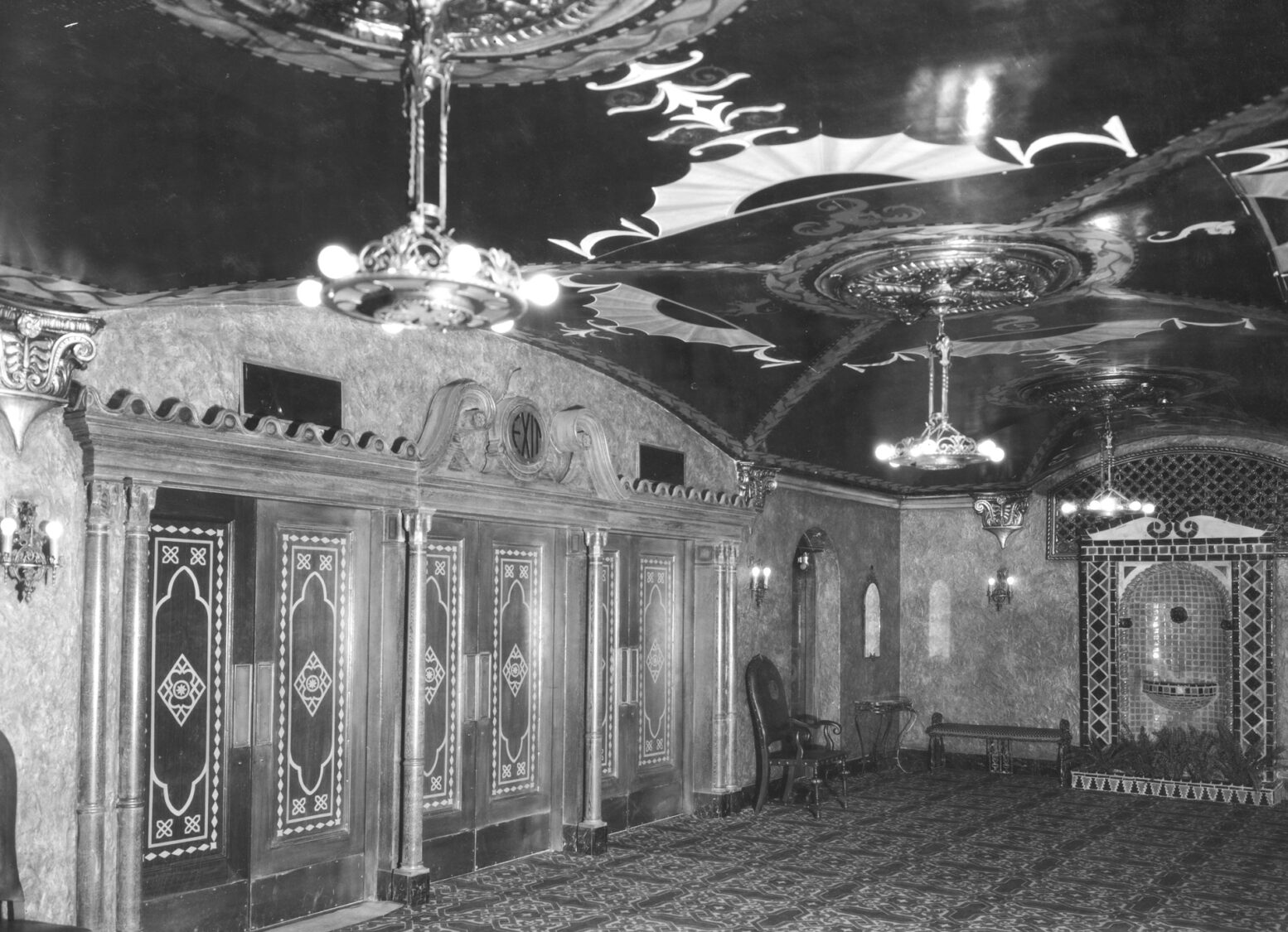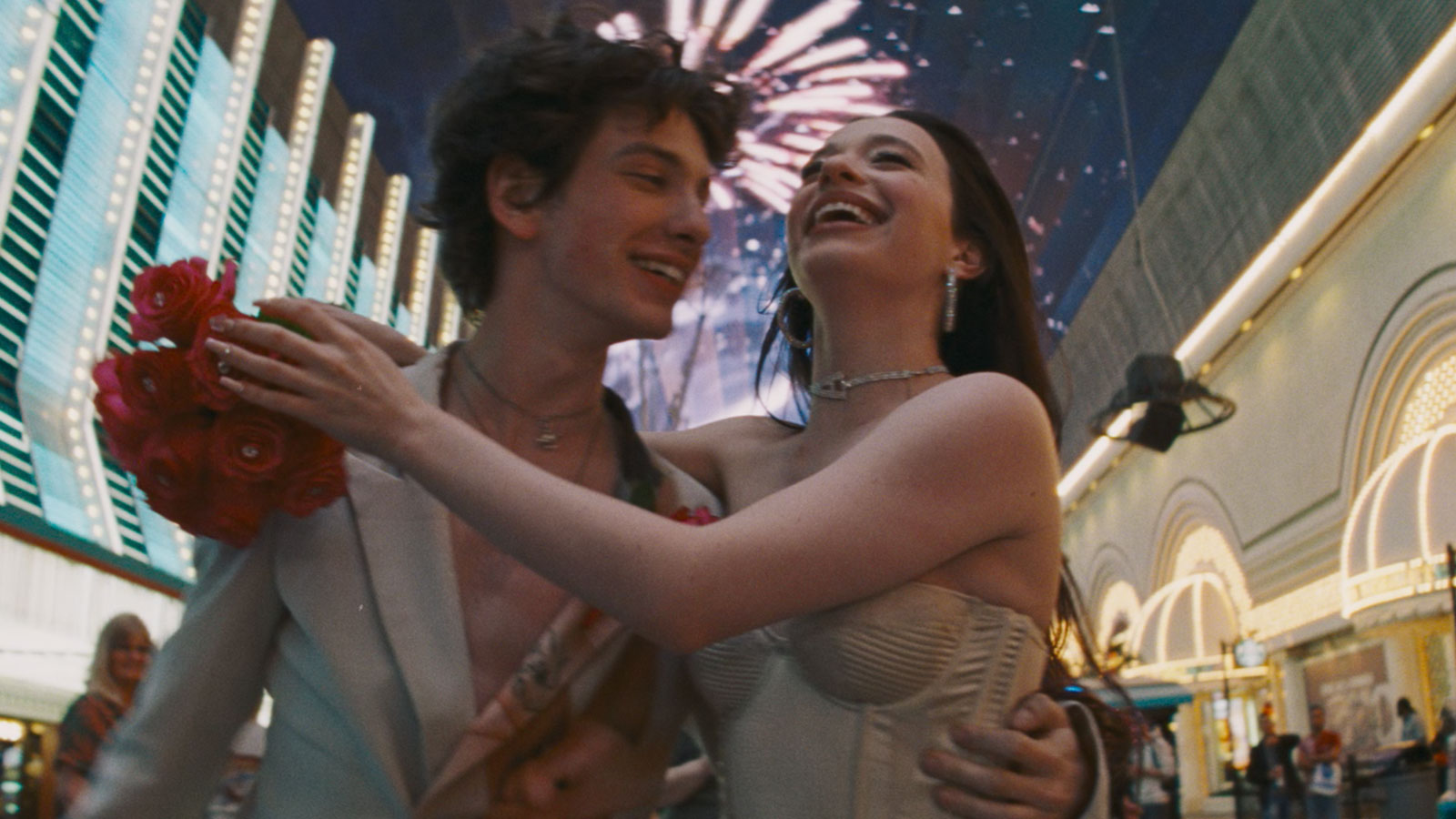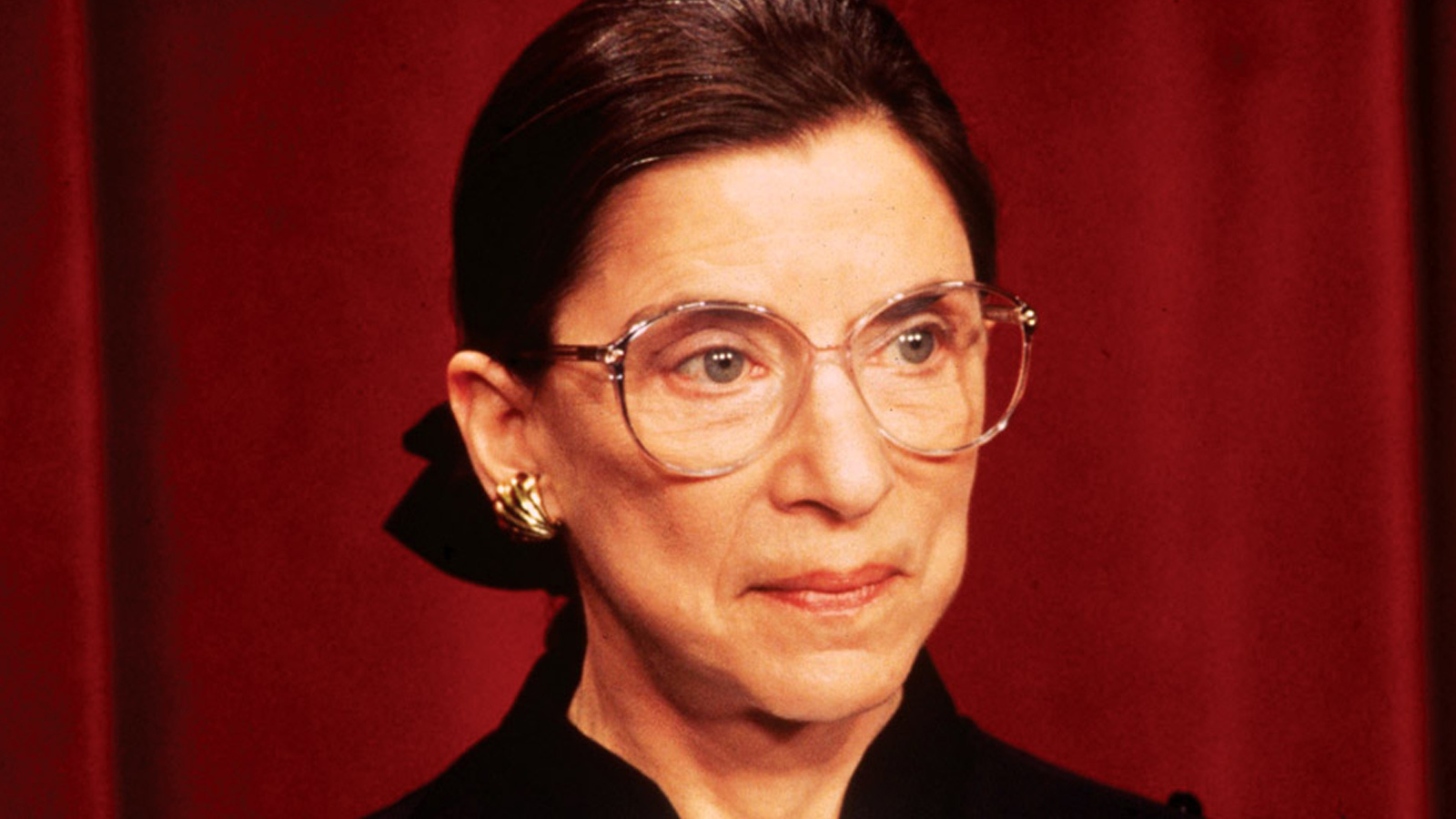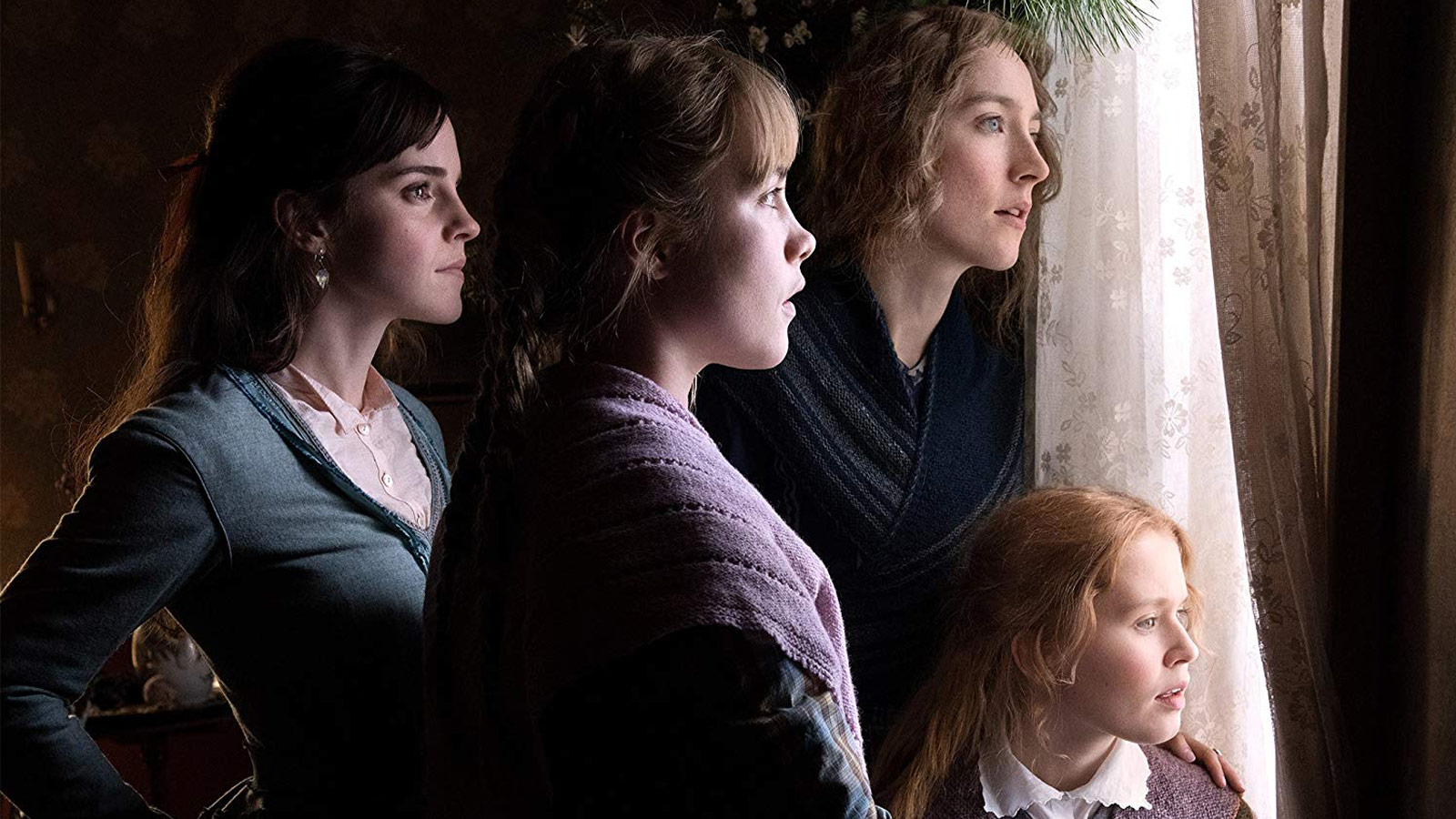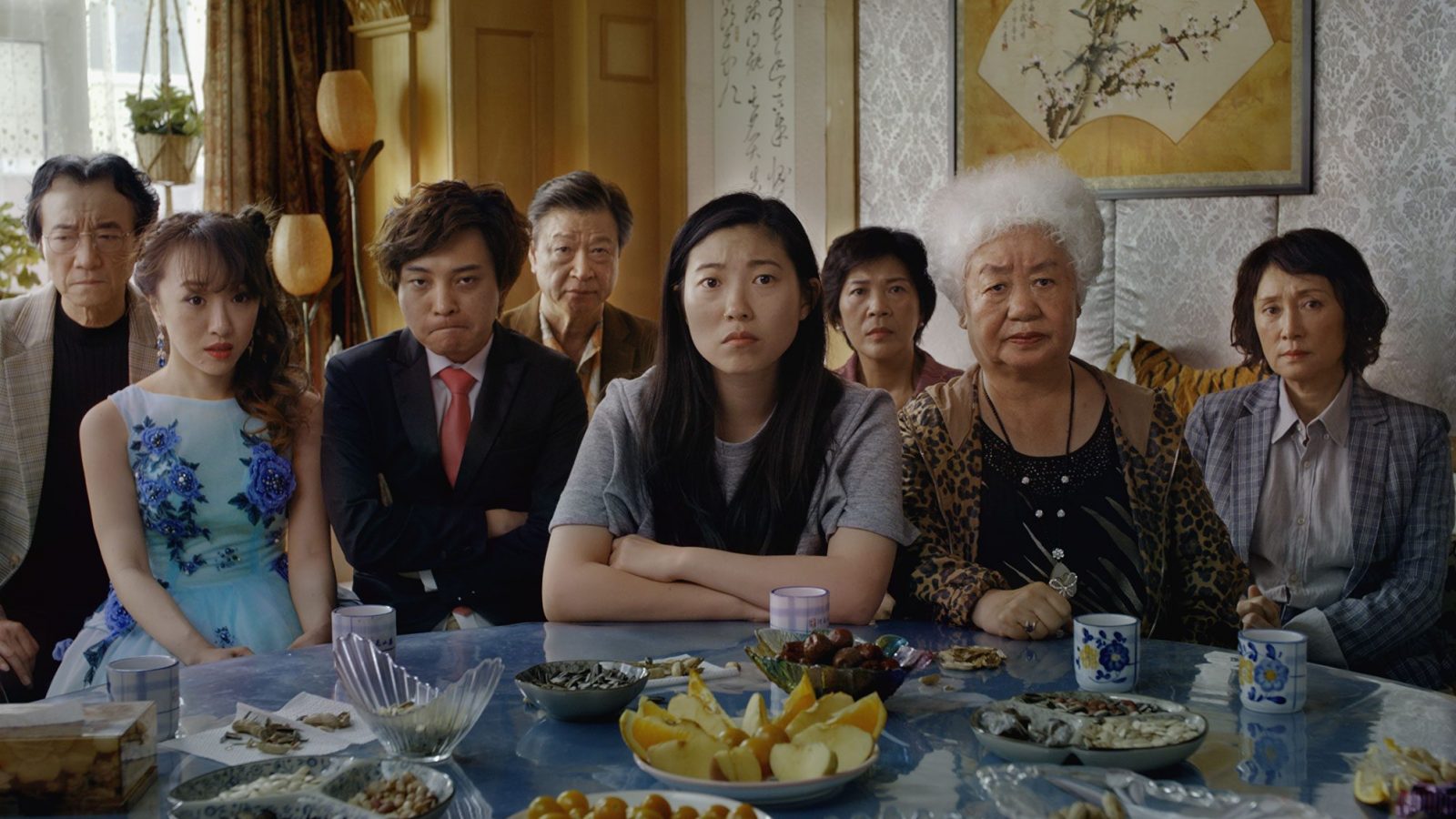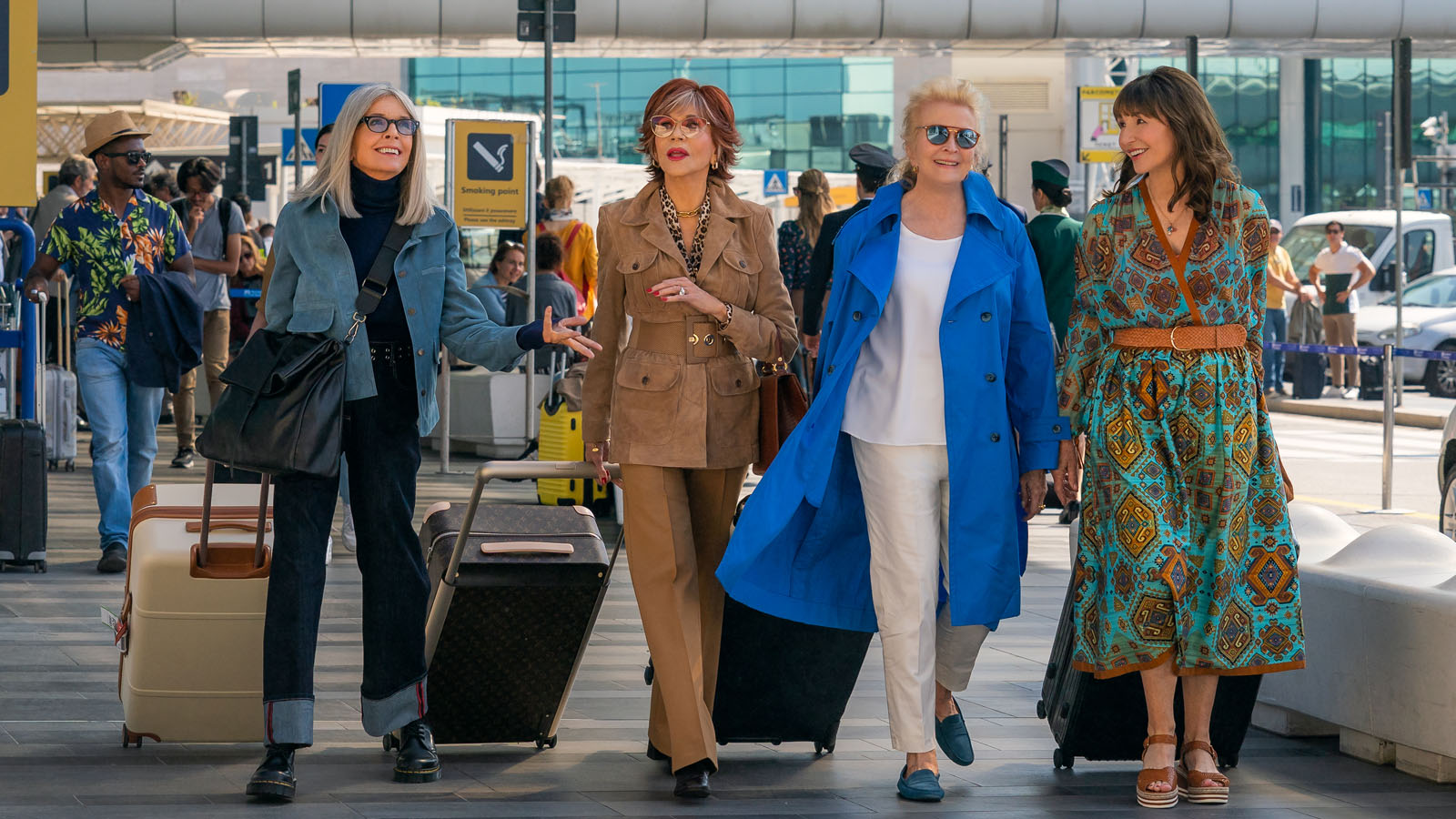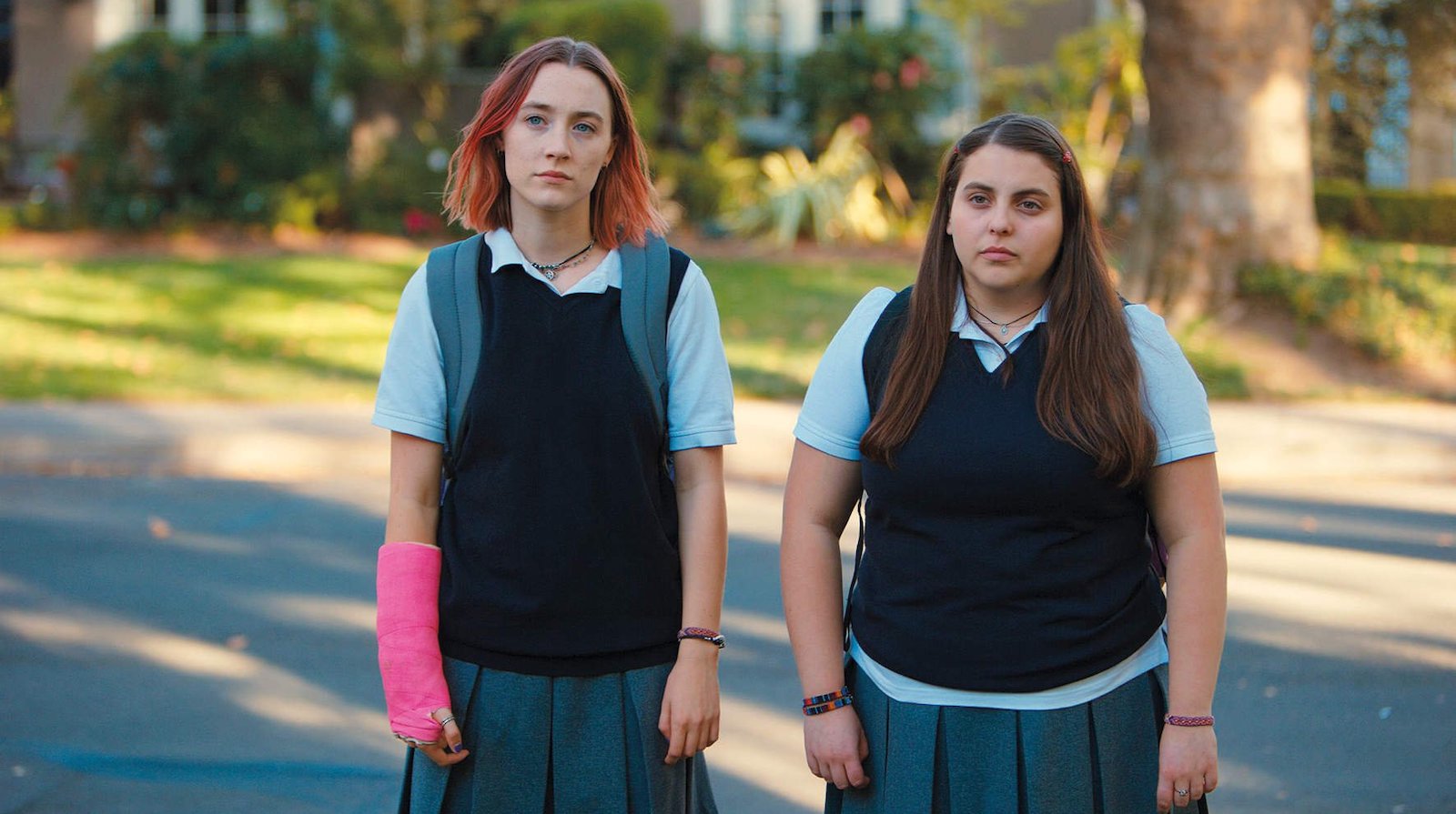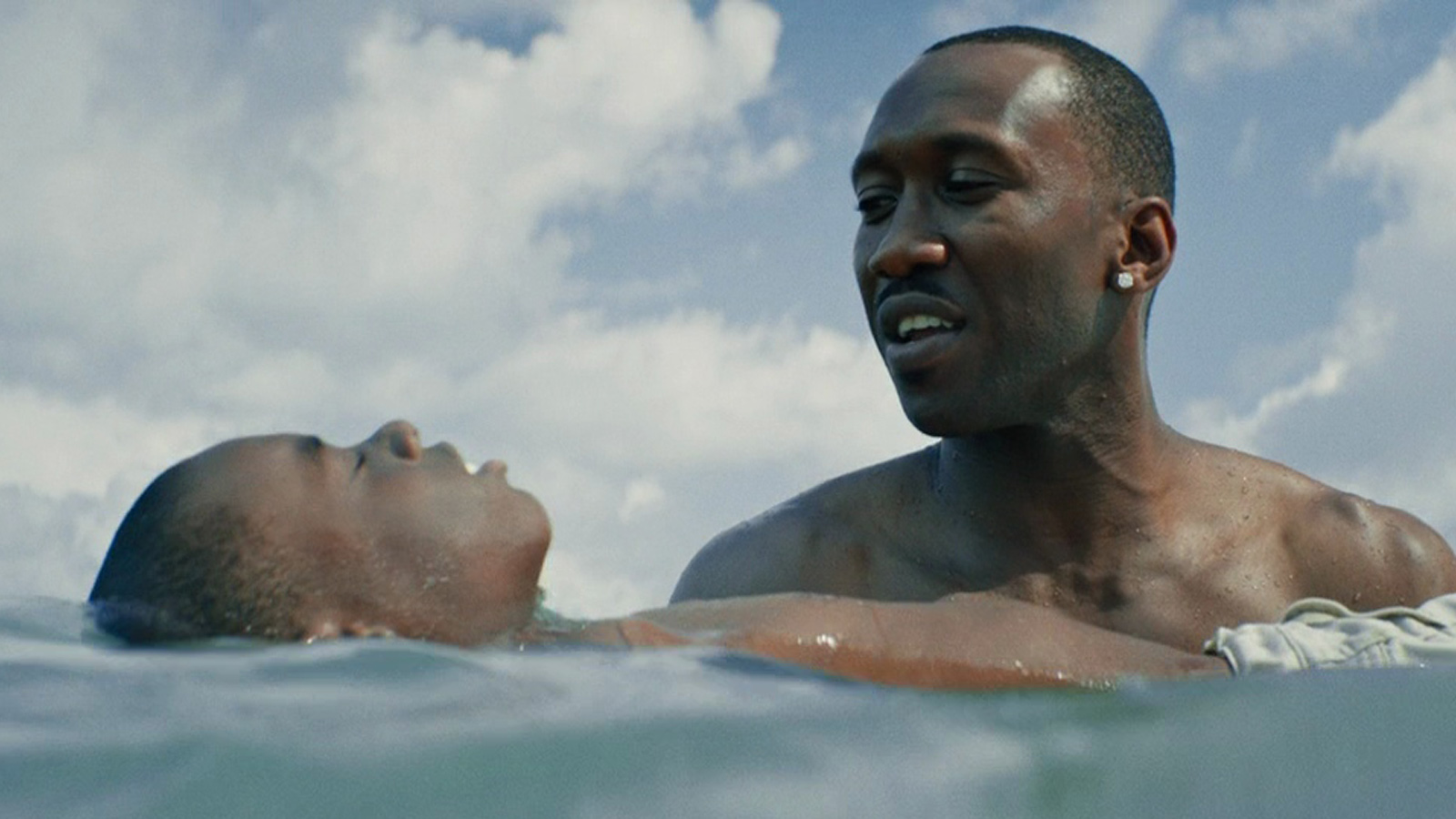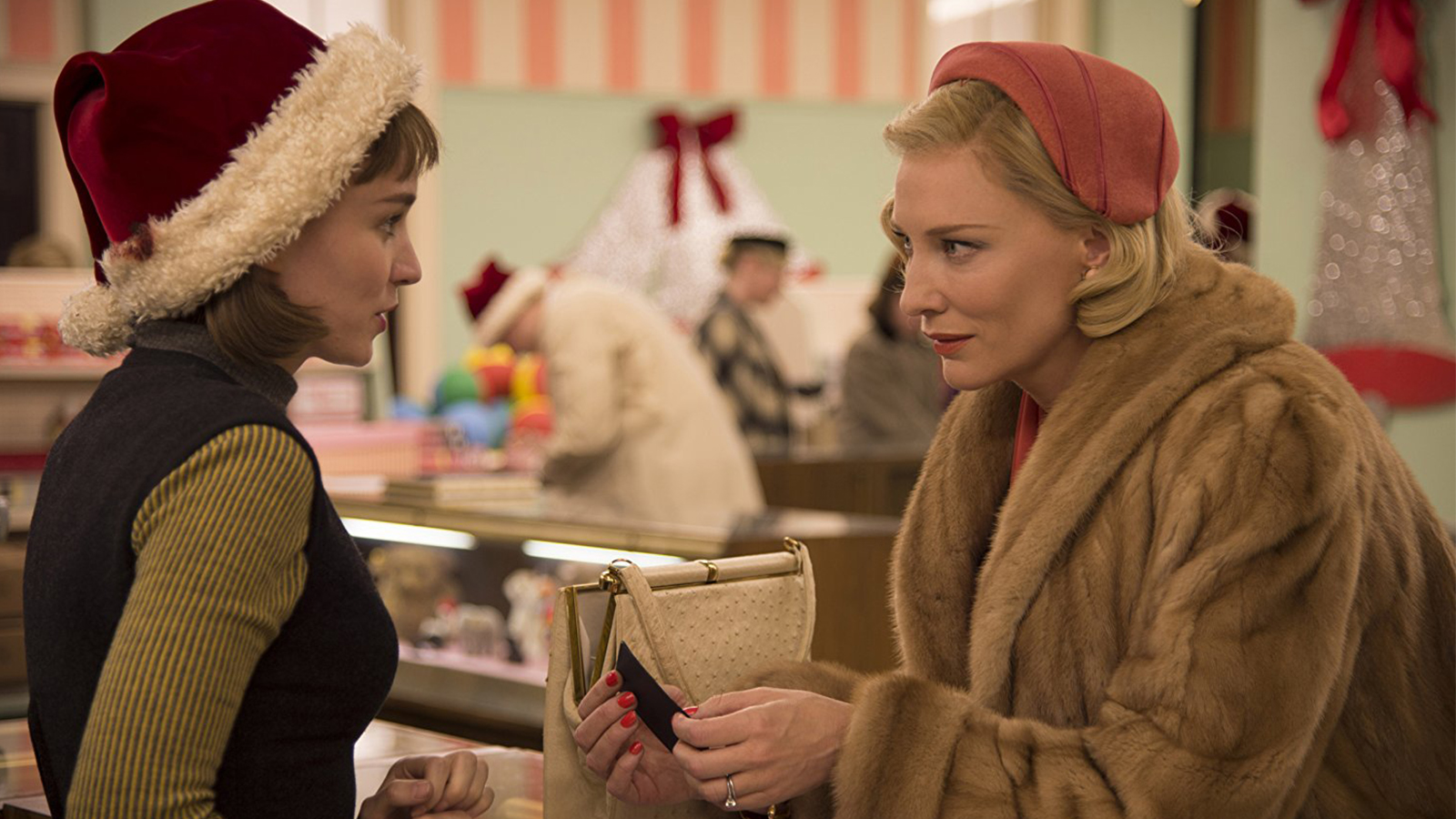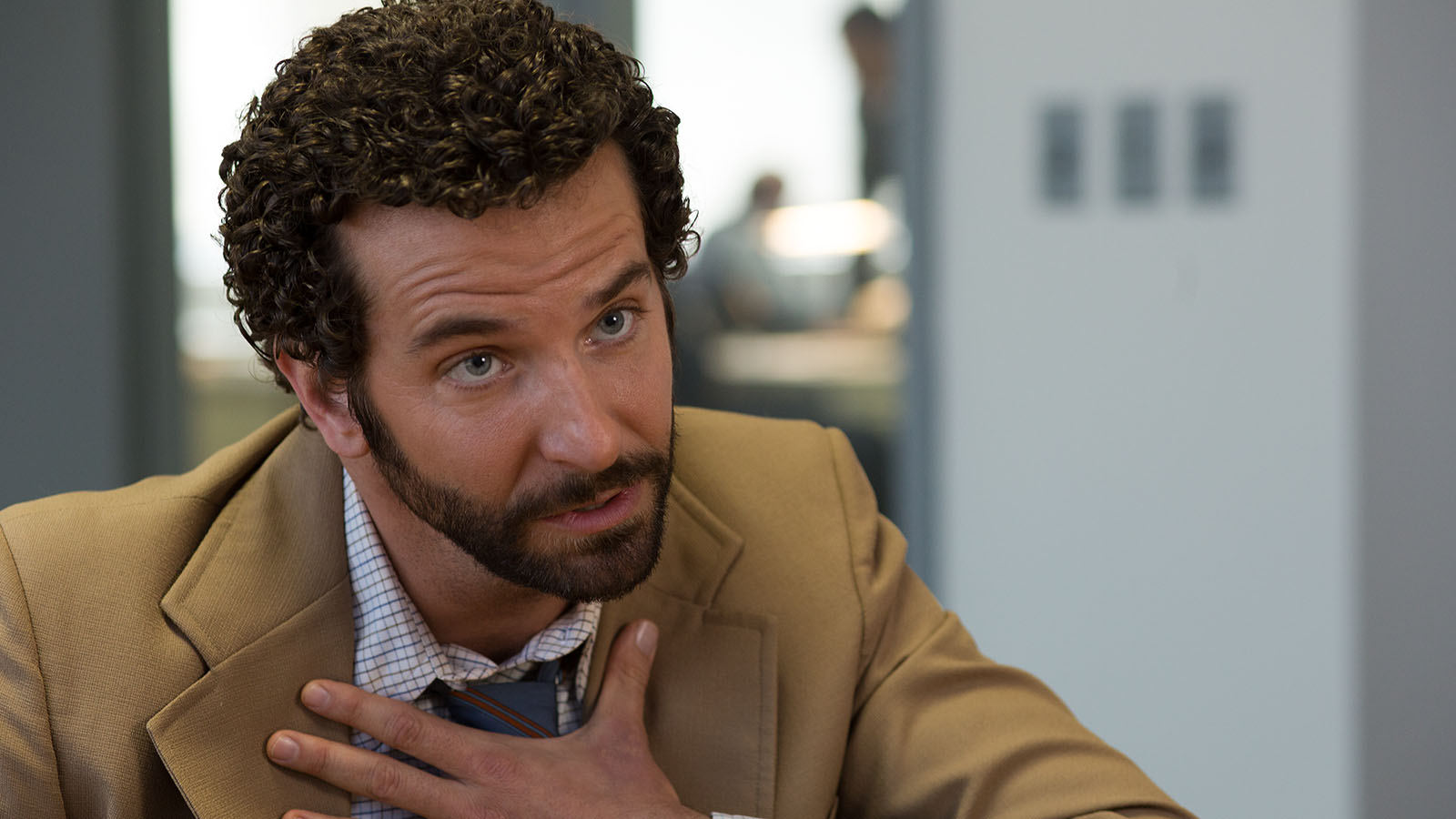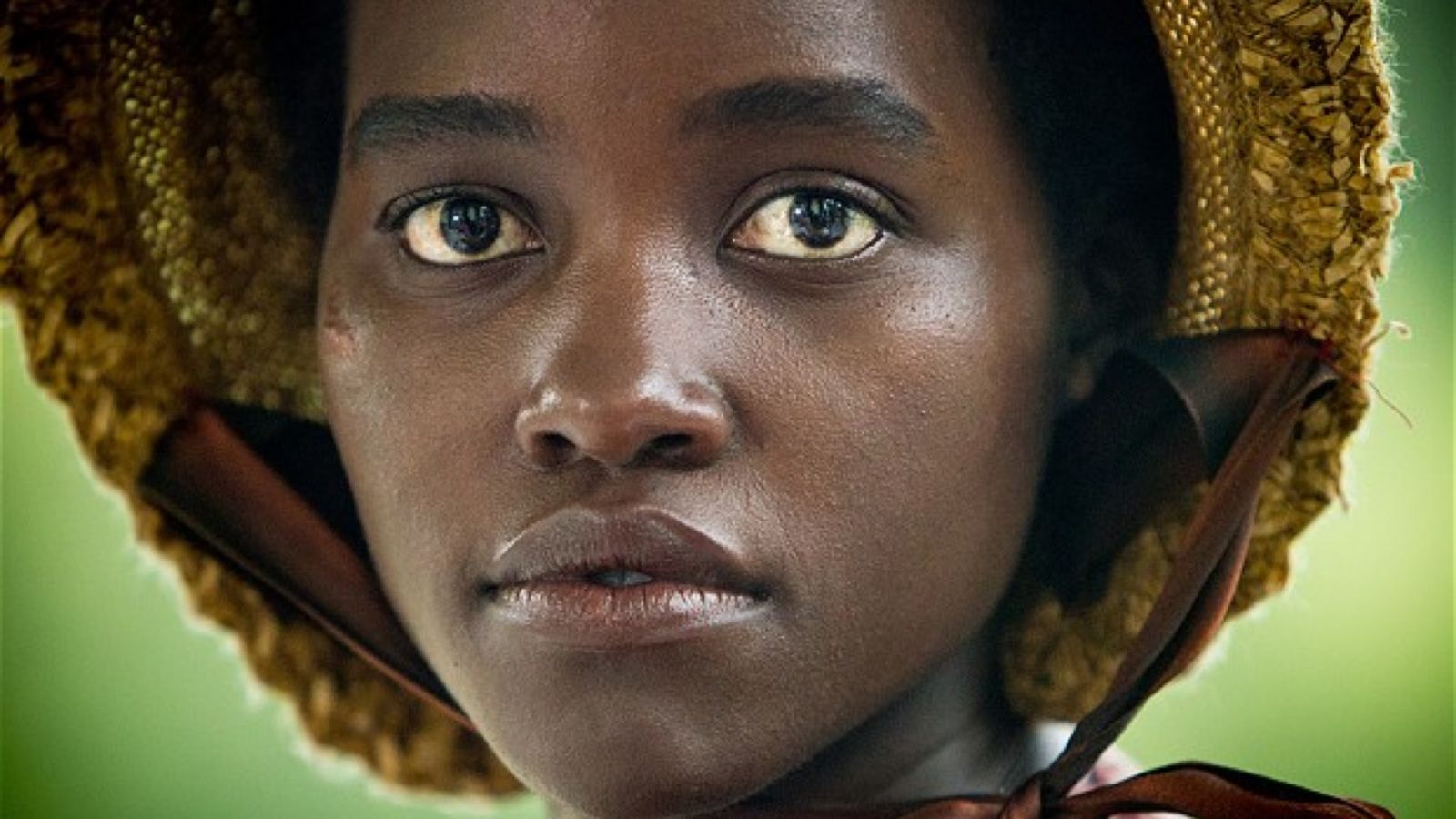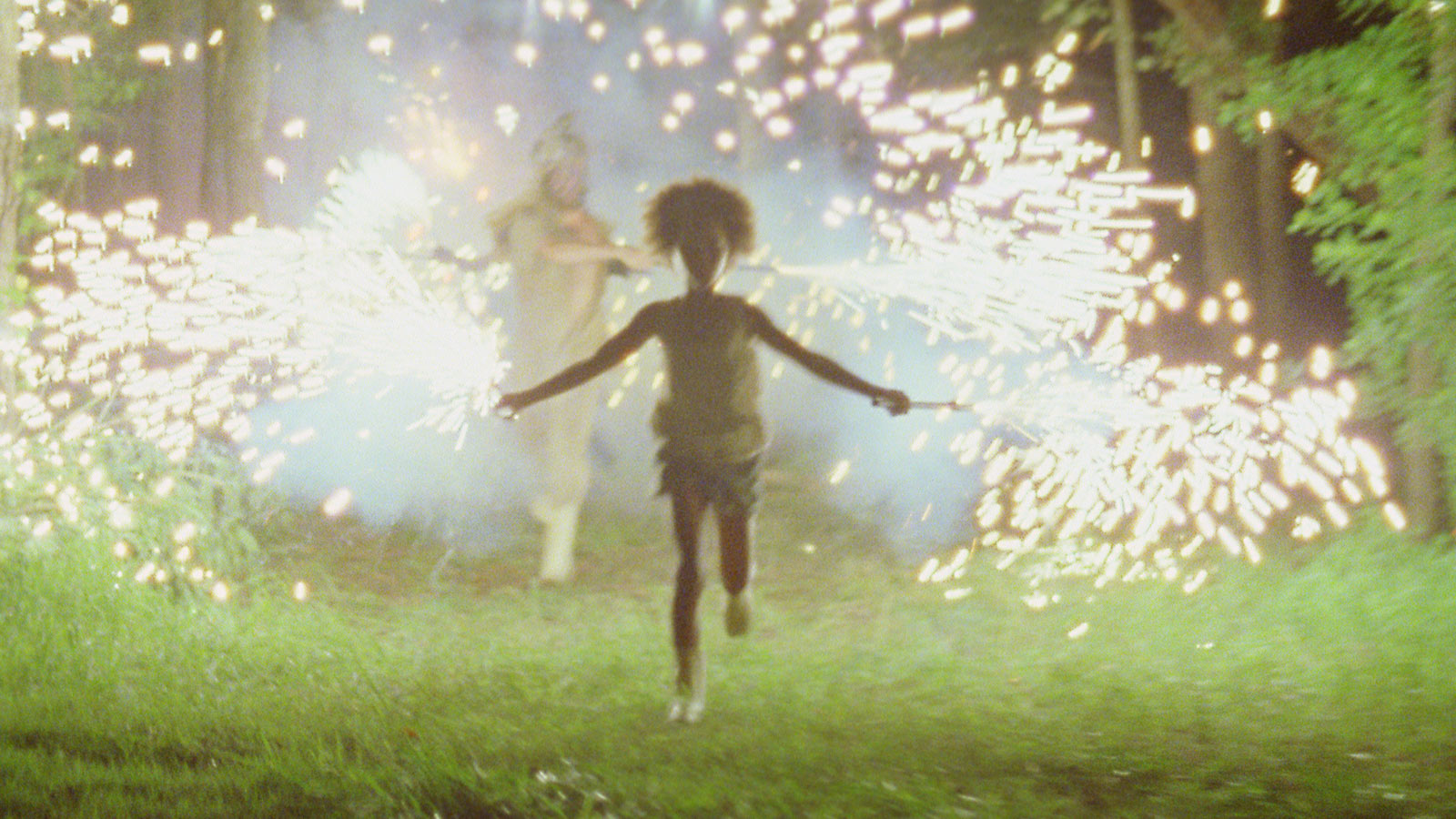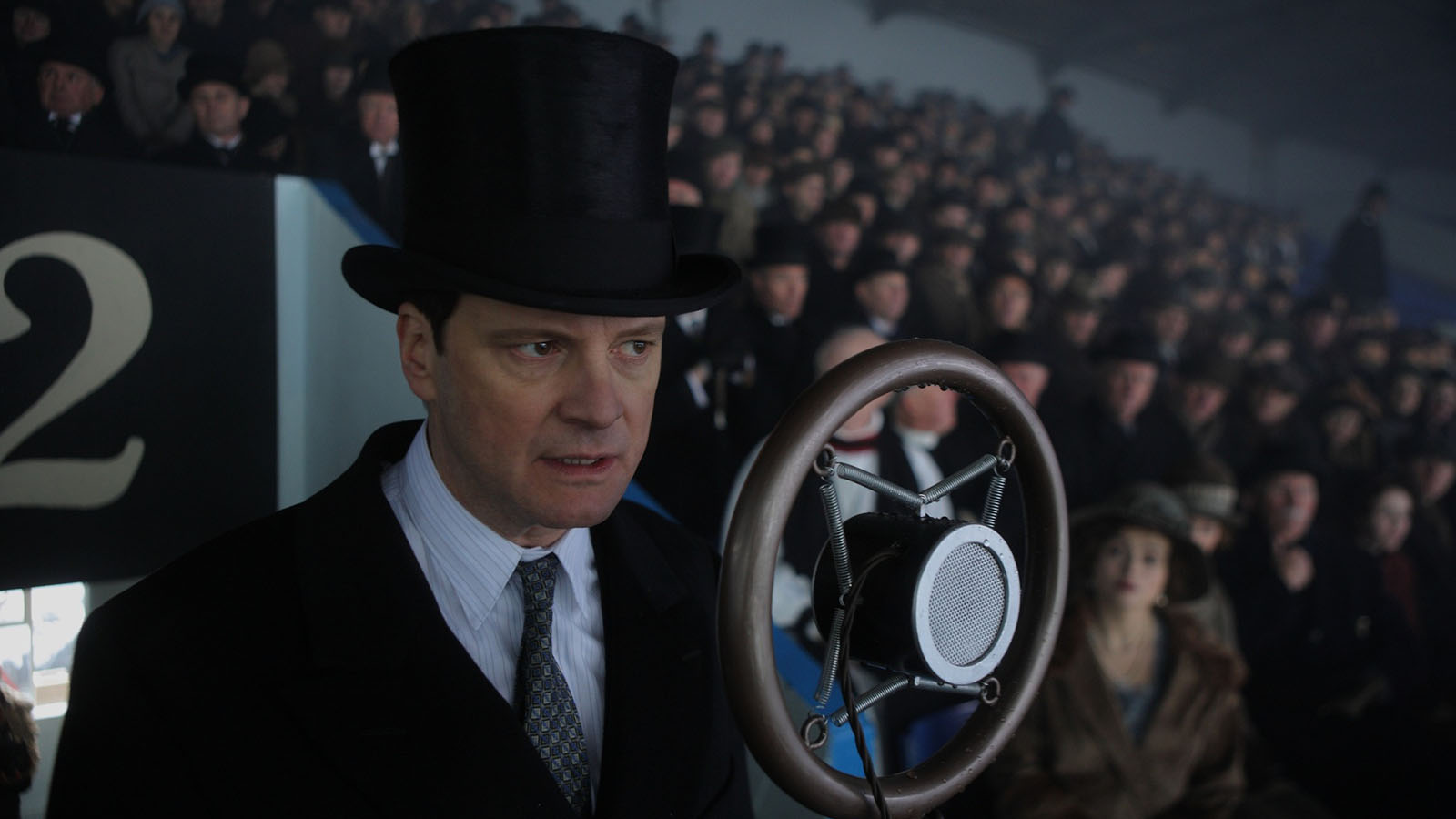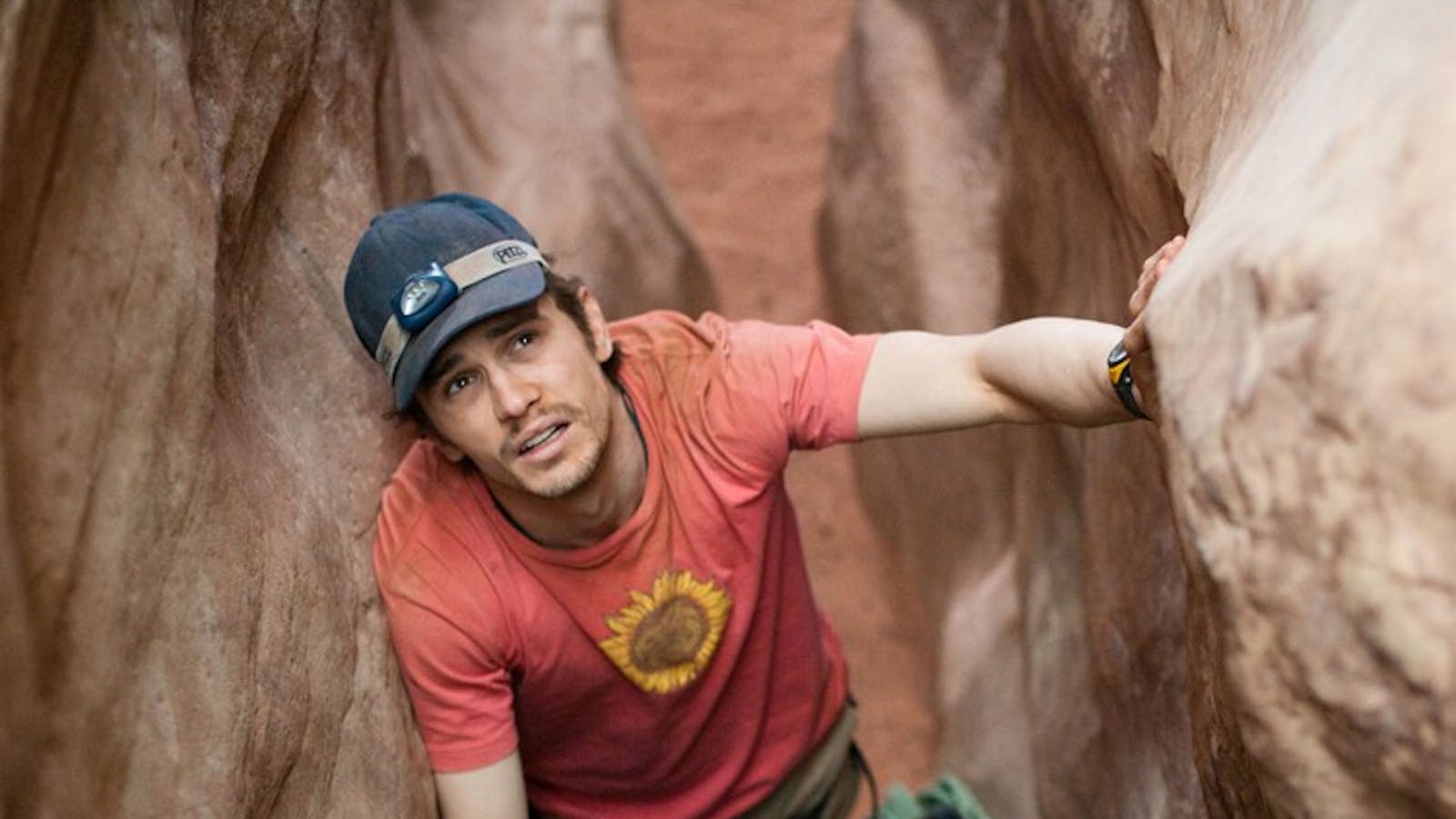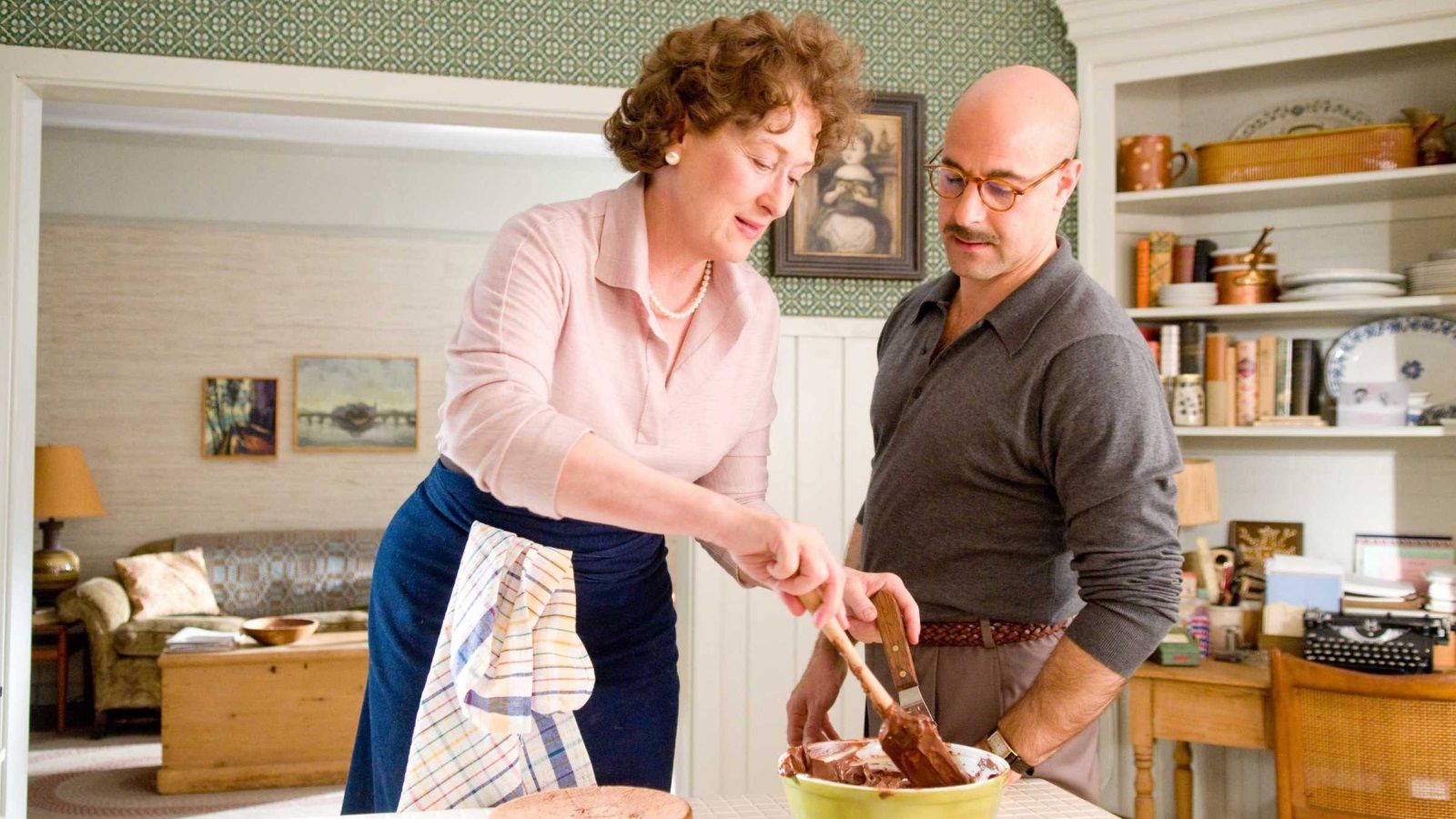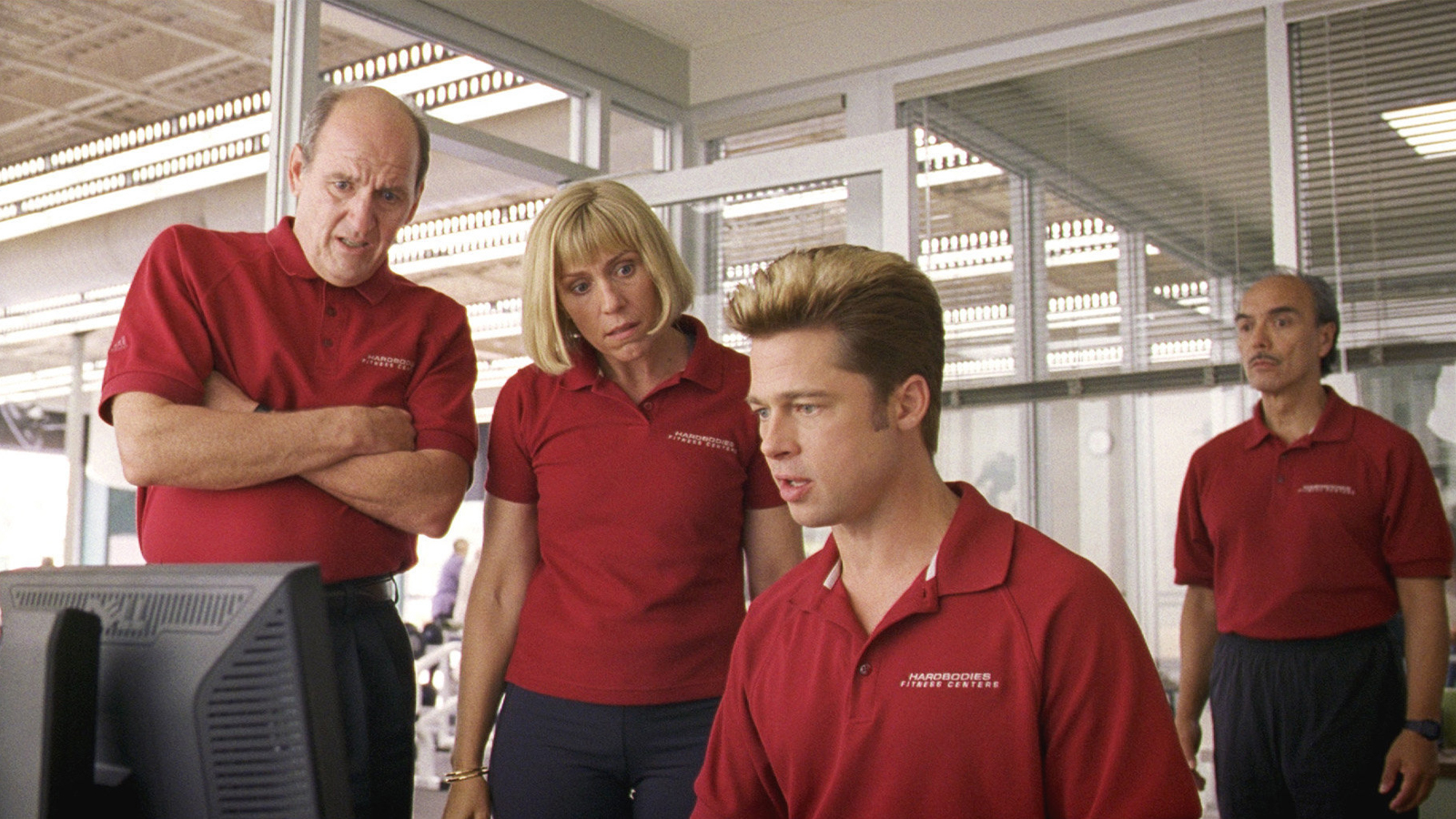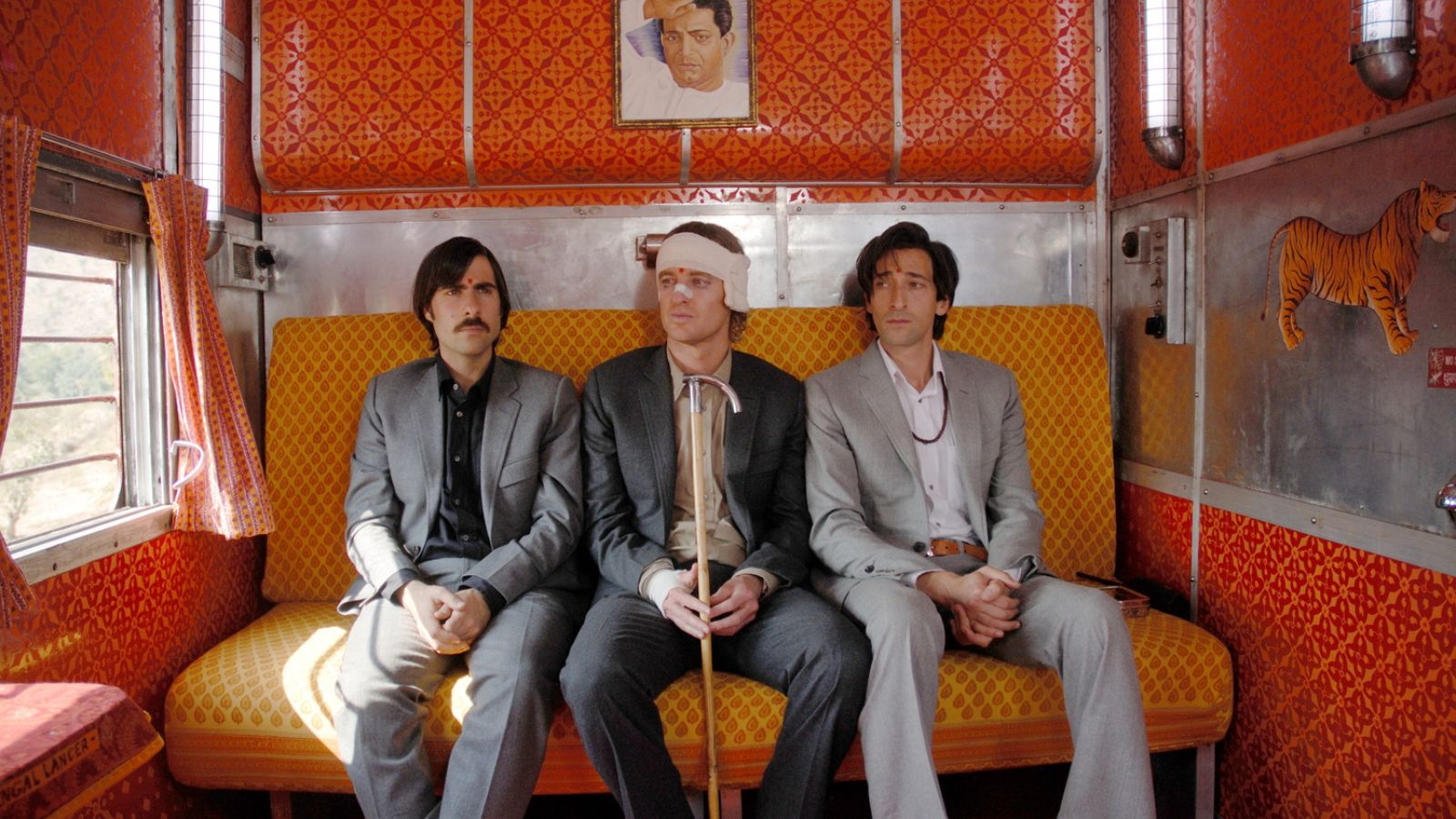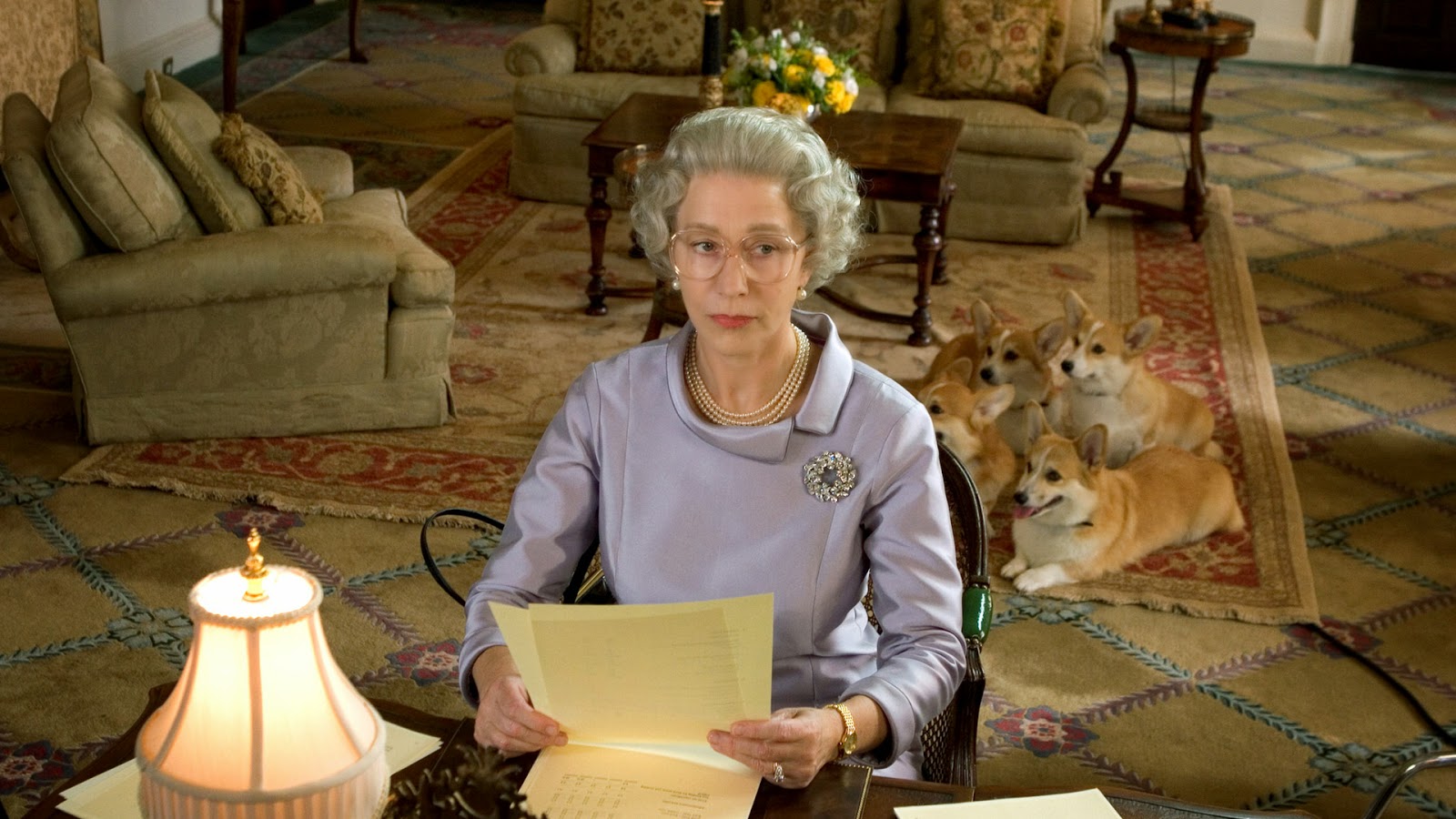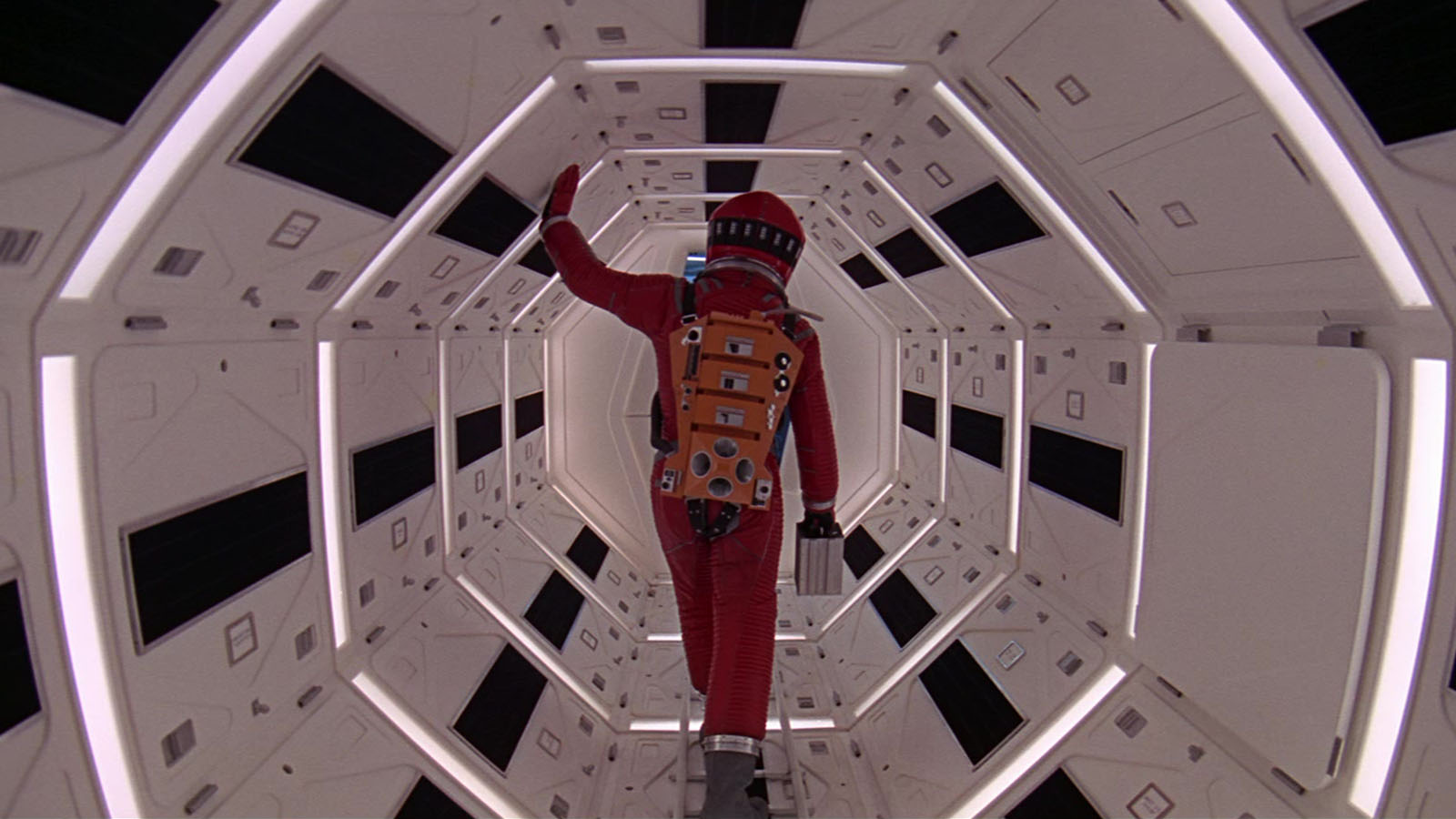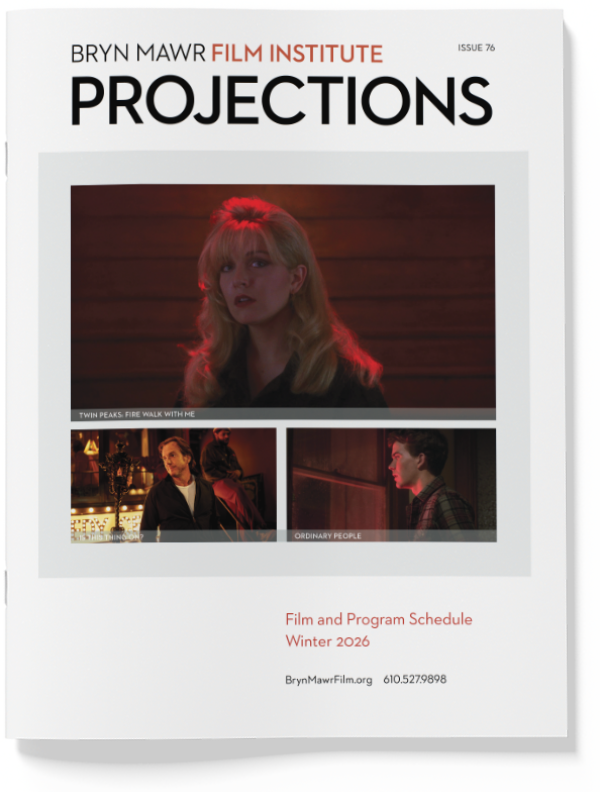Bryn Mawr Film Institute (BMFI) is housed inside The Seville Theatre, a revitalized 1926 beaux arts cinema at the heart of Philadelphia’s storied Main Line. In the early 2000s, the then-derelict theater was in danger of being converted into a fitness franchise, permanently eliminating what was a lively community hub for over 80 years. Lower Merion resident Juliet Goodfriend (shortly to become BMFI’s founding executive director) gathered like-minded civic and academic leaders to save, restore, and expand Bryn Mawr’s cinema center.
Now, thousands of movie lovers visit BMFI each year to experience contemporary art house features, classic films, independent works, film education, discussions with creators, seminars with experts, presentations from international artists, and much more.
March 12, 2025, marks two decades of BMFI’s stewardship of the nationally recognized historic cinema. We’re taking a look back at the movies, moments, and community that made Bryn Mawr Film Institute what it is today.
Movie Lists
Film Studies Lists
Historical Photos
Built in 1926, The Seville Theatre, home to Bryn Mawr Film Institute since 2005, has captivated Main Line residents and visitors with cinema experiences since the early years of the medium. It’s difficult to imagine Bryn Mawr without its crown jewel on Lancaster Avenue, the beaux arts landmark designed by prolific Philadelphia architect and Frank Furness protégé William H. Lee, but the preservation and provenance of this historic landmark was never certain. Without the vision of a civic-minded leader, the commitment of a resourceful staff, and the support of a passionate community, Bryn Mawr’s world-class cinema and film education center would not exist.
Successful business owner, Bryn Mawr College alumna, and longtime Main Line resident Juliet Goodfriend witnessed the demise of neighboring Ardmore’s movie theater, which was retrofitted and quickly abandoned by a short-lived fitness chain. Goodfriend’s desire to save her beloved cinema met her serendipitously discovered passion for film studies, and the vision for Bryn Mawr Film Institute was born.
Goodfriend launched the rallying cry and started building a team. A fellow Bryn Mawr resident who shared Goodfriend’s passion for art, architecture, and community, Patricia Wesley, invested her design expertise, becoming BMFI’s founding director of development and communications, laying the groundwork for what you see today.
The “I” in “BMFI” was central to Goodfriend’s vision, so much so that she immediately hired an education director, Andrew J. Douglas, Ph.D., to create an original film studies curriculum—a rare and ambitious investment for a fledgling nonprofit. Douglas crafted an educational blueprint centered around film history, study, and appreciation that would be replicated in cinemas from Boston to Nashville and beyond in the following decades.
By the time “The Bryn Mawr” needed rescuing, John Toner of Renew Theaters had successfully restored, revitalized, and operated two Southeastern Pennsylvania cinemas, The Ambler and The County. Toner’s wisdom and guidance would prove indispensable, as Renew would implement and manage vital operational infrastructures that would catapult BMFI into a completely self-sustaining cinema in only five short years.
Many other essential voices answered Goodfriend’s call to action, including John Cluver of Voith & Mactavish, the lead architect who would restore and expand the derelict theater; former State Representative Connie Williams, who would champion Bryn Mawr’s landmark status for preservation; Alice Bullitt, BMFI’s first programmer who would become an instructor and leading director on the nonprofit’s board; Sam Scott, a community leader who would serve BMFI in various capacities through decades of transformation; and hundreds of others who devoted their time, money, and passion to conserve a communal artform on the verge of extinction.
In December 2004, the nonprofit Bryn Mawr Film Institute purchased the building at 824 West Lancaster Avenue thanks to Juliet Goodfriend’s vision and acumen. What resulted was a community of cultural preservationists who, over the course of two decades, would embrace, support, and elevate the dilapidated gym-to-be into a shining beacon in the art house industry and a beloved gathering place for film lovers of all kinds.
On March 12, 2005, after years of preparation, BMFI’s founder Juliet Goodfriend, joined by Academy Award-winning actor Sir Ben Kingsley, cinema preservationist John Toner, Rep. Connie Williams, and dozens of supporters gathered in a dark, drop-ceilinged hallway to cut the ceremonial film-reel-ribbon, welcoming its early moviegoers into a scruffy lobby space.
The physical state of the theater would be unrecognizable to today’s visitors. Moviegoers entered Lancaster Avenue doors to a darkened tunnel lined with abandoned storefronts. The sticky concessions lobby gave way to shoebox-like auditoriums, packed tightly with hard-backed seats abutting the rear entrances. Movies were perpetually interrupted with the light, sound, and conversations happening inches away from the swinging auditorium doors flanking the cramped popcorn counter.
BMFI’s transformation started immediately in whatever ad hoc spaces were available, from teaching classes in an alcove that would become the not-yet-envisioned elevator lobby, to a small administrative staff working wherever they could find space until the building’s second floor was habitable.
In October 2005, BMFI’s founding director of education, Andrew J. Douglas, Ph.D., introduced two programs that would become signature offerings for the next two decades: BMFI’s flagship Film Studies course, The Language of Film, and the third-grade visual literacy curriculum, See • Hear • Feel • Film. These would be the first two of hundreds of unique educational opportunities that thousands of film students would come to experience.
Through the tireless advocacy of BMFI’s founding director of development and communications, Patricia Wesley, the Lower Merion Township Historical Commission and Architectural Review Board granted BMFI a Historic Preservation Award in May 2005, which then supported a Keystone Historic Preservation Grant from the Pennsylvania Historical and Museum Commission in the fall of that same year—as well as the theater’s addition to the National Register of Historic Places that December. These awards fueled the restoration of the original 70-foot skylight that crowns the theater’s now-grand atrium—a shocking discovery to Goodfriend and team, as there was no indication such an architectural treasure lay hidden under the flaking dropped ceiling upon purchasing the building. This was the first of many surprises that the restoration would uncover.
In 2005, with movies playing, education starting, renovation commencing, funds accumulating, staff creating, and community supporting, Juliet Goodfriend’s initial vision for Bryn Mawr Film Institute became a reality.
See all of the films shown at BMFI in 2005 on Letterboxd and peruse the Film Studies course list.
In early 2006, BMFI launched the $2.5 million Pane Campaign that commenced the dusty theater building’s much-needed facelift: 400 new glass panes in the recently uncovered skylight; scratch-made office, classroom, and café spaces; a sleeker concessions counter; and the new Connelly elevator which provides access to the second floor for all community members.
The biggest, brightest, most iconic glow-up came in the form of the Hamilton Marquee, a gift from the Dorrance H. Hamilton Charitable Trust, which has been twinkling daily since it was first lit at a community celebration in March 2006. The marquee was historically researched and custom-designed to reflect The Seville Theatre’s original 1926 aesthetic after two previous midcentury iterations.
BMFI’s offerings expanded in its second year. Notable guests included the first of what would be several appearances from Academy Award-winning cinematographer and Steadicam inventor Garrett Brown, an evening with award-winning filmmaker Garry Marshall, and Lassie. Yes, the canine actor who played Lassie guided fans to BMFI for a screening of the latest film in the iconic franchise.
BMFI’s second highest-grossing film of 2006, An Inconvenient Truth, inaugurated the now-customary inclusion of topical experts at documentary screenings to lead discussions on issues outside the film studies world. Inside the film studies world, BMFI welcomed new instructors, including fan-favorites Maurizio Giammarco, Ph.D., and Paul Wright, Ph.D., as well as the late Philadelphia film luminary, Jennifer Steinberg.
State and local governments injected BMFI’s restoration campaign with a $500,000 Anchor Grant in response to the unflinching efforts of founder Juliet Goodfriend and development director Patricia Wesley. BMFI’s eligibility and efforts facilitated state funds to be transferred to Lower Merion Township, who in turn will retain that half-million-dollar seed in perpetuity. BMFI repaid its 2006 grant in October 2021, releasing the funds for the next community anchor in Lower Merion to take root and grow.
See all the films shown at BMFI in 2006 on Letterboxd and peruse the Film Studies course list.
Though the multimillion-dollar Pane Campaign was less than a year old, contributions from members, supporters, foundations, and civic leadership were already having a visible impact at the top of 2007. In February, the 2nd-floor Multimedia Room opened for business, hosting film studies classes, meetings, events, and See • Hear • Feel • Film sessions for the first time. July saw the first sunbeams shine though the previously tar-papered skylight atop the evolving atrium.
There was big news on the programming front, as well, as BMFI entered the thriving Greater Philadelphia film scene as an enthusiastic partner in the suburbs. Film critic and industry expert Harlan Jacobson brought his Talk Cinema series to BMFI for the first time in 2007, and the Philadelphia Film Festival found ardent moviegoers at their home cinema on the Main Line.
Special guests kept on coming in 2007. Beloved Turner Classic Movies host, the late Robert Osborne, was honored with a Main Line gala, and actor/filmmaker Danny DeVito visited in June for a day of screenings, in-theater Q&As, and hijinks with the young cast of It’s Always Sunny in Philadelphia. Other guests included Oscar nominee Lynn Redgrave, award-winning editor of such films as Murderball and Sicko and such television series as Severance and Tiger King Geoffrey Richman, filmmaker and founder of the BlackStar Film Festival Maori Karmael Holmes, and co-founder of the Philadelphia Folk Festival and longtime WXPN host Gene Shay.
On the education front, a number of film studies courses on such subjects as documentaries, melodramas, blockbusters, Martin Scorsese, and Orson Welles made their debuts, as did one of BMFI’s flagship programs, the Film History Discussion Series (FHDS). Inspired by a collaboration with Bryn Mawr College, FHDS has gone on to be the most frequently taught and highest-attended education offering in BMFI history.
The beginning of the 21st century found theatrical film exhibition at an interesting crossroads. While traditional 35mm films were costly and cumbersome, the infrastructure for reliably transmitting and showing films in digital high definition had not yet materialized. Ira Deutchman, an indie-cinema luminary and valued friend of the institute, had co-founded Emerging Pictures (EP), an innovative film distributor that created a platform to send exhibition-quality digital film files directly to the theater’s projection booth.
What was shown using this pioneering technology? Live performances from stages like La Scala and the Bolshoi, independent documentaries too small for studio deals, and other films that would otherwise never have been shown in theaters found a home at BMFI thanks to its early partnership with EP. If you enjoy Stage on Screen programming today, know that it’s because bold leaders like EP and BMFI had the foresight to get that ball rolling back when Steve Jobs introduced the iPhone.
This reel-free method of digital film distribution wouldn’t become industry standard for another seven years. Innovators like Deutchman would soon guide the independent-theater industry through its biggest upheaval since talkies, and BMFI was ready for the challenge. Founder Juliet Goodfriend’s vision situated BMFI at the front of the line for the future while keeping its feet firmly planted in the cinematic history of its landmark home.
2007 saw more firsts for BMFI, as well. It was the first time BMFI membership reached and then surpassed 6,000 people. This was the first year that BMFI’s programs qualified for funding from the Pennsylvania Council on the Arts, an important hurdle for any arts organization with the hopes of making a deep impact on its community. The first (and only to date) BMFI pie contest was held in conjunction of the hit movie Waitress. BMFI also earned its first “Best of Philly” award from Philadelphia magazine in the category of “The Best Place for Film Buffs.” It’s a title BMFI would do its best to continue to earn in the coming years.
See all the films shown at BMFI in 2007 on Letterboxd and peruse the Film Studies course list.
As 2008 began, work continued on BMFI’s grand atrium. The replacement of the glass in both the interior tiles and exterior monitor was completed in February, and the final step—restoration of the plaster work—began in November at the hands of European craftsmen. But as is usually the case with historic buildings, as one project ends, the next one is already on the drawing board. That’s why BMFI was extremely fortunate when, in August, then-governor Ed Rendell awarded BMFI a $2.5 million Redevelopment Assistance Capital Project Grant for future renovations to the theater auditoriums. This funding was an essential ingredient in the improvements and expansion that would take place over the coming years, and it would not have come to pass without the assistance of longtime BMFI supporter and former state senator Connie Williams.
BMFI improved its place and expanded its reach within the Philadelphia cinema community in 2008, as well. In February, BMFI was a screening site for Professor Ruth Perlmutter’s new program, “One Film, One Philadelphia,” and director of education Andrew J. Douglas, Ph.D., led a large teacher-training session about that year’s film, Empire of the Sun, for the School District of Philadelphia. In addition, for the first time, BMFI offered a film studies class at a remote location, bringing The Language of Film to the Broad Street headquarters of the Gershman Y.
BMFI opened its doors to new audiences and students in 2008. March saw the start of our Going Gaga screenings, which invited new parents and their infants to one dedicated show a week that featured raised lights, lowered volume, and other accommodations. This program, which would morph into our Sensory Friendly screenings in 2024, was the brainchild of then-programmer, recent board member, and stalwart BMFI supporter Alice Bullitt. 2008 was also the start of BMFI’s long-running Summer Filmmaking Workshop. The program, which started as a collaboration with the Big Picture Alliance and is still taught by its original, wonderful instructor, Christian Fusco, welcomes a dozen high school-aged filmmakers for six weeks of learning, collaboration, and fun resulting in a short film of their own creation.
2008 also saw new additions in the education realm. BMFI welcomed the George Rehrauer Collection of film books, donated by The Haverford School, which became the basis for the BMFI library from which members are able to borrow a wide range of cinema-focused works. A number of film studies offerings were new in 2008, including courses on Woody Allen, the French New Wave, screwball comedies, the Coen brothers, and, in the start of an annual summer tradition, Alfred Hitchcock.
Two major BMFI events in 2008 led the year’s cavalcade of special guests from across the cinema spectrum. Sir Ben Kingsley, who cut the ribbon at BMFI’s 2005 opening, returned to headline the Casino Royale Silver Screen Gala in March, which was emceed by Philadelphia broadcasting legend and friend of BMFI, Dave Roberts. In the fall, the whole theater building came alive with sports experts and fans during An Evening with Steve Sabol and NFL Films, honoring the man and organization that set the bar for the cinematography of professional athletics. In attendance for these festivities was an all-star team of Philadelphia sports personalities, including Merrill Reese, Ray Didinger, and Glen Macnow.
But all those folks were just the tip of the iceberg (albeit, an impressive one) when it comes to the notable people who visited BMFI in 2008. A number of documentarians brought their movies to our theater that year, including Oscar nominee Nanette Burstein (American Teen), Guido Santi and Tina Mascara (Chris & Don: A Love Story), and Jamie Moffett (Ordinary Radicals). Screenwriter/director Mark Herman brought his film The Boy in the Striped Pyjamas and was joined by the author of the source novel, John Boyne. Also, a young English-American actress, Hayley Atwell, appeared at BMFI with what was her third film, Brideshead Revisited.
And just as few in attendance on that warm summer night could have foreseen the big-screen heights—such as the Marvel Cinematic Universe and the Mission: Impossible series—to which Ms. Atwell would rise, it would have been comparably difficult to predict what lay ahead for BMFI . . .
See all the films shown at BMFI in 2008 on Letterboxd and peruse the Film Studies course list.
Since purchasing the derelict theater building in 2005, the main atrium entrance had been draped in tar paper, perforated by broken skylights, and caged in scaffolding. Restoring this wing of the historic building required both structural and artistic expertise, uniting a team of architects, sculptors, painters, plasterers, artisans, and electricians from Pennsylvania, New York, Chicago, and Bulgaria.
In February 2009, the years-long effort to fully restore the grand atrium was complete thanks to individual and institutional donors who were inspired by BMFI’s leadership and fundraising efforts. You can still see the names of BMFI’s fiercest restoration supporters on the brass stars under the Hamilton Marquee. The Preservation Alliance of Greater Philadelphia awarded BMFI and its wonderful architects, Daniela Holt Voith and John H. Cluver of Voith & Mactavish Architects, a Grand Jury Award for the restoration in June of that year.
Now that BMFI’s facilities were fully functional and free of scaffolding, building supplies, and construction noise—for the moment—it was time to have more special events, grow our education programs, and welcome lots of guests, all of which we did in 2009.
BMFI had its first Oscar party in February, where attendees were invited to dress up and join us for food, drink, and the awards show telecast on the big screen, augmented by insights and commentary from our programmer, Valerie Temple, and director of education, Andrew Douglas. Later that month, we tried another new program, an at-home gala, which, if we’re being honest, wasn’t very popular. But it did have a wonderful in-theater component with longtime Inquirer film critic and friend of BMFI Carrie Rickey interviewing film historian Mark Harris about his then-new book,Pictures at a Revolution: Five Movies and the Birth of the New Hollywood. The final major event of 2009 was Fashion in Motion in May. This day-long affair at BMFI included a screening of Breakfast at Tiffany’s, a fashion show, and presentations by award-winning costume designer Mark Burchard and fashion curator and author Kristina Haugland of the Philadelphia Museum of Art.
BMFI education had its moment in the spotlight, as well. Our third-grade visual literacy program, See · Hear · Feel · Film, set a participation record with 1500 students from schools across the region. Film Studies tried out a new format in 2009, presenting its first daylong seminar, on master directors Bernardo Bertolucci, Elia Kazan, Akira Kurosawa, and Preston Sturges in September. There were also two special sessions of The Language of Film: one for the leadership and students of the Violette De Mazia Foundation, and another that allowed teachers to earn credit through a partnership with the University of the Arts.
A number of courses were offered for the first time that year, as well, including Signs of Life: New German Cinema; Look to the Skies: Superhero Cinema; Kieslowski’s Three Colors: Blue, White, Red; Icon in the Director’s Chair: Clint Eastwood; Fire Down Below: Latin American Cinema; Hitchcock at the Height; Moguls, Mensches, and Nudniks: Jews and American Cinema (at the Gershman Y); and Revolutionary Dreamer: Bernardo Bertolucci. New programmatic ground was covered in other ways, too. Our first simulcast of National Theatre Live featured Phèdre,starring Helen Mirren, in July.
While we all had to be content to see Ms. Mirren live on our screen—not in person—plenty of notable people visited BMFI in the flesh. Many talented folks from across the Philadelphia region came to the theater in 2009. We welcomed Jim Ellis, the swim coach who started the first African American swim team in the country in Philadelphia, and who was the subject of the 2005 movie, Pride. Longtime BMFI supporter and founder of The Vanguard Group, John C. “Jack” Bogle led a discussion of one of his favorite movies, Executive Suite. The Kulu Mele African American Dance & Drum Ensemble performed before and after a screening of a short documentary about their trip to Guinea. Philadelphia culinary instructor and subject of the documentary Pressure Cooker, Wilma Stephenson, came to BMFI with her movie. Various medical professionals shared their expertise at BMFI as they discussed health-related issues depicted in the movies of the “What’s Up Doc?” film series. And director Jeremiah Zagar brought his documentary, In a Dream, to BMFI, along with its subject (and his father), renowned Philadelphia mosaic artist Isaiah Zagar.
More filmmakers, from outside the region, visited BMFI in 2009, as well. R.W. Goodwin, best known as an executive producer and director of The X-Files, brought his low-budget sci-fi send-up, Alien Trespass, and award-winning filmmaker Aviva Kempner visited with her documentary Yoo-Hoo, Mrs. Goldberg. Filmmakers Tony Zierra and Elizabeth Yoffe, and subject, actor Chad Lindbergh, brought their documentary My Big Break to BMFI, and co-director Jenny King showed her documentary The Dhamma Brothers, about a prison meditation program in Alabama.
With all these special events, education offerings, and filmmaker appearances, we had a lot going on in 2009, and a lot to communicate to our community. That’s why, in December, we published the first issue of our completely redesigned program guide, Projections, a much-needed upgrade in light of all the growth that had occurred over the previous four-plus years. Little did we know we’d have even more—about twice as much, actually—to share with our patrons before too long . . .
See all the films shown at BMFI in 2009 on Letterboxd and peruse the Film Studies course list.
As 2010 dawned, barely a year had passed since the finishing touches were put on the atrium restoration, the last piece of the five-year project to make the entire building safe, functional, and welcoming for BMFI patrons. Now that the original structure was in good shape, it was, of course, time to build an addition that would add another screen.
Why expand Bryn Mawr Film Institute beyond the original building footprint that had served moviegoers so well for nearly 85 years? For the same reason the once-grand auditorium of the Seville Theater was split in two in the 1970s: changes in the film industry. As movie studios, audiences, and the exhibition business changed over the years, it became advantageous and then necessary for a theater to be able to show more than one movie simultaneously, to appeal to more diverse audiences and maintain secure financial footing.
As more people in our community became aware of BMFI, they began to think of us as their local theater, and some even became habitual moviegoers, which was so gratifying. But it also created some challenges when “the industry” would require us to keep some movies for 10 weeks or more. Though this meant the movies were doing well, it also meant that BMFI might have one of its two screens occupied by the same movie from Thanksgiving until the Academy Awards. Our members and patrons were understandably frustrated by that.
Add to that finding the “screen space” for BMFI’s growing special programming slate and education offerings. Since BMFI’s opening, the main attractions have always been augmented by an assortment of house-curated screenings and events, along with a variety of film classes. As BMFI matured, the quality, number, and demand for those options only grew, but space was limited by our contractual obligations to the distributors that provided the new movies. Adding a new screen would give those programs room to grow, too.
That’s why, in February, we launched the Theater Three Challenge campaign to raise $5.5 million to expand BMFI. By August, BMFI had raised over $3 million of that amount thanks to the generosity of patrons, members, donors, the Board of Directors, and local foundations. We’d get even closer to the finish line in October when BMFI received one of the largest single gifts in its history: a $500,000 challenge grant from the Otto Haas Charitable Trust. That month also saw the start of the Take-a-Seat campaign, which allowed donors to “claim” a seat in honor of a special occasion or loved one in the new theater to be built.
And that additional theater couldn’t be built quickly enough for all of the new special programming, education initiatives, and partnerships BMFI began in 2010. One such collaboration was with SpectiCast, a company founded in Philadelphia in 2009 that quickly became a trailblazer in the event cinema industry by distributing cultural and alternative content—such as operas, ballets, and concerts—to theaters around the world. Among its most impactful partnerships was its work with BMFI, which brought performances by the Philadelphia Orchestra to local cinemas, making world-class arts programming accessible to broader audiences.
Another long-term collaboration—that has lasted through five movies over 15 years and counting—began that year, as well, when Philadelphia-based filmmaking team Don Argott and Sheena Joyce brought their movie The Art of the Steal to BMFI for several screenings. The documentary, about the controversial efforts to move the Barnes Foundation from its original site (in Merion, PA) to the Benjamin Franklin Parkway in Philadelphia, inspired a wide-ranging series of post-screening discussions on topics central to the film and featuring numerous local experts such as state senator and philanthropist Constance Williams, noted architect Denise Scott Brown, and the filmmakers themselves.
Many documentarians brought their movies to BMFI in 2010. Cindy Burstein and Tony Heriza, along with Director of Philadelphia’s Mural Arts Program Jane Golden, visited BMFI with their award-winning documentary about a unique restorative-justice project, Concrete, Steel and Paint. Japanese filmmaker Megumi Sasaki brought her documentary Herb & Dorothy, about a New York couple of modest means who managed to build one of the most impressive private collections of modern art in America. Acclaimed pianist and University of the Arts professor Annette DiMedio visited BMFI to discuss They Came to Play, a documentary about piano competition in which she is featured. And one-time Colombian presidential candidate Ingrid Betancourt, who was held captive for six years after a politically motivated abduction, visited BMFI to discuss the documentary about her ordeal, The Kidnapping of Ingrid Betancourt.
Noted artists and scholars made their way to BMFI in 2010, as well. Renowned multimedia artist Red Grooms screened and discussed some of his works, and contemporary artist Daniel Heyman, a Pew and Guggenheim Fellow, visited BMFI to discuss Persepolis, screened in conjunction with the One Book, One Philadelphia program. Enrique Sacerio-Garí, professor of Hispanic and Hispanic American Studies at Bryn Mawr College, guided an audience through a Cuban film showcase, while musicologist Kendra Preston Leonard shed some light on the use of music in three screen adaptations of Shakespeare’s work.
While we were thrilled to have so many talented academics stop by, it must be said that BMFI’s own faculty really outdid themselves in 2010. In addition to a number of returning favorites, a diverse slate of new classes was on offer, including Ecstatic Truth: The Films of Werner Herzog, Ascending from Darkness: The Films of Stanley Kubrick, Marriage, Motherhood, and Madness: The Hollywood Melodrama, Labyrinth of Passion: Spanish Cinema, The Color of Paradise: Arab and Islamic Film, [Expletive Deleted]: David Mamet Films, Alfred Hitchcock: The Political Films, Pantomimes and Proverbs: The Films of Tati and Rohmer, Bold and Bawdy: The Films of Almodóvar, Adapting Jane: Austen on Screen, and Beyond Objectivity: The Contemporary Documentary.
2010 also saw the creation and first iterations of what has become the most popular offering in our Film Studies program: Cinema Classics Seminars. The summer featured one-night learning opportunities covering On the Waterfront, The Third Man, The Hidden Fortress, and The Lady Eve, with Fritz Lang’s Metropolis added in the fall for good measure.
It was educational opportunities like these, and the wide range of special programs outlined earlier, that allowed BMFI to earn a hat trick of regional kudos by being named “Best Movie Theater” by Philadelphia Magazine, ditto from Main Line Suburban Life and Main Line Times, and “Best Place to Catch a Foreign Flick” by Main Line Today.
BMFI’s upgrades weren’t limited to the historic building in 2010. BrynMawrFilm.org underwent a major overhaul, resulting in a stylish new website that, most importantly, enabled moviegoers to purchase tickets online for the first time. This digital leap into 21st-century technology was not a moment too soon, as online ticket sales also meant shorter lines at the box office, perfect for when BMFI finished building its additional theater. Or would it be two . . .
See all the films shown at BMFI in 2010 on Letterboxd and peruse the Film Studies course list.
Pre-production was in full swing crafting the biggest transformation at 824 W. Lancaster Avenue since The Seville’s doors opened in 1926: a third auditorium would expand the theater’s footprint and capacity from two screens to three. The $5.5 million Theater Three Challenge was nearly realized with support from the Otto Haas Charitable Trust, a dedicated board, and patrons eager for more movies in Bryn Mawr. Of course, an addition to the theater building required adjacent land. Bryn Mawr Hospital, lifelong neighbors and pillars of the community, generously agreed to a land swap agreement, making lofty dreams of more movies and moviegoers a reality with the necessary space to build.
But wait, there’s a twist. With fundraising goals in sight, founder and president Juliet Goodfriend, with the support of Board Chair Sam Scott, took another look at the numbers. What if BMFI had four screens instead of three? The potential for even more events, movies, and programs would increase enormously with another auditorium. Never one to let success spoil a good idea, Goodfriend rallied the community to break ground on two—not one—state-of-the-art theaters. Architect John Cluver and his team at Voith & Mactavish drafted plans for a reimagined cinema that married historic glamour with modern moviegoing. The results, they predicted, would be epic.
Meanwhile, 2011 delivered daily movies, events, filmmaker visits, and classes, with possibly the most diverse slate of special guests we’d welcomed up to that point. They included a writer The New York Times called “a modern-day Dorothy Parker,” a film preservationist with a collection at the Academy Film Archive, and the first American to complete a solo trek across Antarctica.
The year got off to a great start when, in January, Oscar-nominated animator Paul Fierlinger and his filmmaking partner and wife, Sandra Fierlinger, taught a master class and introduced and discussed their film My Dog Tulip. Many more filmmakers followed, including Temple University professor LeAnn Erickson with Top Secret ‘Rosies’: The Female ‘Computers’ of WW II; Jamie Moffett with his documentary, Return to El Salvador, about the aftermath of its 12-year civil war; Philadelphia’s own Tigre Hill with his film about the murder of police officer Daniel Faulkner, The Barrel of a Gun; documentarian Taggart Siegel with Queen of the Sun: What Are the Bees Telling Us? about colony collapse disorder; and journalist, filmmaker, and adventurer Jon Bowermaster—a six-time grantee of the National Geographic Expeditions Council—with three segments from his series of documentary shorts, Oceans 8.
BMFI also benefited from special appearances by a number of wonderful folks from our own backyard. Viking Cooking School hosted a pastry reception in connection with the documentary Kings of Pastry, Lower Merion Conservancy put on a panel after a screening of Gasland, and Inglis House introduced a screening of the art-and-disability documentary Shooting Beauty. Dr. Henry Mayer of Bryn Mawr Hospital introduced Sideways and discussed the health benefits of wine, and BMC professor Bethany Schneider discussed the Native American film Smoke Signals.
In addition, the noted radio personality and founder of the Philadelphia Folk Music Festival, Gene Shay, returned to BMFI to introduce a screening of Phil Ochs: There but for Fortune, a documentary about the controversial folksinger, co-sponsored by the Philadelphia Folksong Society. Adventurer and La Colombe founder Todd Carmichael came to BMFI with the documentary about his journey across Antarctica, Race to the Bottom of the Earth. And even though she’s from New York, famed writer Fran Lebowitz felt right at home during her Q&A after a screening of the Martin Scorsese-directed movie about her, Public Speaking.
BMFI also brought three luminaries from different fields to the theater for very special events. First came beloved Inquirer film critic—and longtime friend of BMFI—Carrie Rickey, who returned to guide us through an evening dedicated to Elizabeth Taylor. Then, just in time for the playoffs, chairman and part-owner of the Philadelphia Phillies, Bill Giles, visited BMFI for a dinner filled with baseball talk followed by a screening of The Natural. Finally, famed film preservationist Robert A. Harris visited BMFI to discuss his work restoring such landmark motion pictures as Lawrence of Arabia, Spartacus, and Vertigo so current and future generations of moviegoers would be able to see them as their creators intended.
And though they may not be in the same class as Carrie Rickey or Robert Harris, BMFI’s faculty continued to increase our community’s knowledge and appreciation of film in 2011, as well. In addition to the return of several favorites, there were new courses in the Film Studies curriculum, including Eric Rohmer: Tales for All Seasons, Dogged Defiance: Sidney Lumet, Art of the Screenplay, World War II Comedy, Arthur Penn: Chronicling the Outsiders, Alfred Hitchcock: The Best of the Rest, Stranger than Paradise: The Films of Jim Jarmusch, and Michelangelo Antonioni: Landscapes of the Soul.
In our second year of offering one-session seminars, Some Like It Hot, Modern Times, Jaws, Imitation of Life, and Taxi Driver earned spots on the syllabus, and there were day-long explorations of the cinema of the 1960s and silent cinema, as well. BMFI began to venture a bit outside the realm of media studies with Philosophy on Film, which was organized by LaSalle philosophy professor Marc Moreau, Ph.D., and featured scholars from the Greater Philadelphia Philosophy Consortium analyzing movies through that theoretical prism.
By the end of 2011, the four-screen dreams were inching closer to a groundbreaking reality. It was only ten years earlier that Juliet Goodfriend had her first glimmer of an idea to rescue Bryn Mawr’s dilapidated movie house. With construction about to begin that would transform the Main Line’s arts and culture community, an anonymous donor contributed a $250,000 matching gift to add a name, so aptly, above the doors that welcomed guests to BMFI every day: “Juliet J. Goodfriend.”
See all the films shown at BMFI in 2011 on Letterboxd and peruse the Film Studies course list.
The pending expansion project that would add two new screens to BMFI’s theater would have been earth-shaking enough, but the major movie studios were about to drop some news that would upend the entire film industry.
Since the beginning of cinema, films were distributed on film (hence the name). Typically, a 35 mm film reel would be 15 inches in diameter, weigh 10 pounds, and contain about 20 minutes of film. Showing a two-hour movie required six reels to be packaged (often in heavy metal cans), shipped, and delivered to each theater. Then the projectionist either assembled the roughly 11,000 feet of film on these six reels into one long strand that sat atop a platter the size of a kitchen table before being fed through the projector, or else transitioned each reel every 20 minutes (or so) until the movie was over. Rewind, repeat. Every screening of every movie you ever saw prior to the early 2000s was done in one of these two ways. And each one of those film prints cost around $2,000 to make.
While digital cinema was becoming the new industry standard in 2012, it wasn’t new to the industry. Its presence in multiplexes had been slowly expanding for about a decade, and BMFI started using limited digital projection back in 2007, when the visionaries at Emerging Pictures began distributing filmed stage-on-screen presentations, as well as some new and classic films, via the then-, um, emerging technology.
But the cost to “go digital” completely was hundreds of thousands of dollars. Replacing each auditorium’s well-oiled, mechanical projector with a digital behemoth at six figures a pop was beyond the reach of many indie theaters. Yet it became mandatory with the announcement that major movie studios would no longer be distributing new movies on 35 mm film reels. If you wanted new movies, you needed to go digital. End of story. And it was, sadly, for countless independent cinemas.
Luckily, that was not the end of BMFI’s story. The community’s explosive support thrust BMFI into an ambitious future: two brand new auditoriums, and digital projectors for all four screens. Not only did over 1,600 donors exceed the $5.5 million Theater Challenge Campaign to quite literally lay the groundwork for the building’s addition, but supporters delivered an additional $500,000 to ensure all four auditoriums – two in use, two yet to exist – would have the newest projectors, and thus the newest movies.
2012 secured hopes and dreams for Bryn Mawr’s future, but the present was just as exciting. In this year, BMFI received the generous gift of that iconic piece of artwork that adorns the main lobby: mosaic master Jonathan Mandell’s tribute to Casablanca, which was donated to BMFI by Margie and Bryan Weingarten.
Education continued to roll along in 2012. In its sixth year, the See·Hear·Feel·Film visual-literacy program added more than 500 third-grade students to the 3,352 that had already learned important storytelling, language arts, and critical-thinking skills with BMFI. There was also another successful session of the Summer Filmmaking Workshop, in which a dozen high-school filmmakers collaborated on three short films that premiered on one of our big screens. And speaking of local filmmakers, BMFI’s first Open Screen Showcase was held to shine the spotlight on some of the best movies shown during the first seven years of Open Screen Mondays, a free monthly series that lets directors share their works-in-progress with (potential) collaborators and the public.
Then there were BMFI’s Film Studies offerings where some old standouts like The Language of Film and Cracking Wise and Falling in Love (Again): The Screwball Comedy were joined by a host of new courses. Classes on directors included Paul Thomas Anderson: Cinematic Cypher, Nicholas Ray: Cinema with a Cause, Alone in the Dark: The Films of Lars von Trier, Swept Away: The Films of Lina Wertmüller, Lust for Life: The Cinema of Vincente Minnelli, One Single Mystery: The Films of Robert Bresson, and Through a Lens Darkly: The Films of Ingmar Bergman, Part I.
Seminars on such films as Battleship Potemkin, From Here to Eternity, All about Eve, The Apartment, All that Heaven Allows, and Grand Illusion were joined by a course on Action Films as Art and a more “magisterial” take on a by-now familiar format for the election year with Film History Discussion Series: Presidents and Potentates. Special Topic: Philosophy on Film—Estrangements and The Craft of the Screenplay rounded out the year’s education slate.
BMFI had a roster of guests in 2012 that was second to none. There were big-name folks like Emily Blunt, who discussed her then-latest film, Salmon Fishing in the Yemen, and writer/director Stephen Chbosky brought the film he based on his novel, The Perks of Being a Wallflower, to BMFI for a sneak-preview screening. There was a strong local presence, too. Shipley alumna Sarah Megan Thomas shared the film she wrote, produced, and starred in, Backwards, based on her own experience as a competitive rower, with BMFI audiences for some special screenings, and longtime Philadelphia radio personality and CNN host Michael Smerconish held his book club at BMFI in 2012, interviewing notable authors live in one of our theaters. Speaking of books, Columbia University professor of film studies Annette Insdorf visited BMFI to sign copies of hers about filmmaker Philip Kaufman and introduce a screening of The Right Stuff.
The year also saw a particularly diverse slate of non-fiction filmmakers, subjects, and curators visiting BMFI. Home Movie Day co-founder Dwight Swanson brought a compilation of “amateur treasures”—from the famous and anonymous alike—to BMFI for a special screening. Emmy-winning documentarian Judd Ehrlich discussed his film Magic Camp, about the summer institution run by Tannen’s Magic Shop at Bryn Mawr College and brought along some of its young magicians to mystify the audience. Amanda Pope, co-director of The Desert of Forbidden Art, brought her film about a man who protected 40,000 works banned by the U.S.S.R. from the KGB. And Rick Ray, the documentarian behind 10 Questions for the Dalai Lama, came to BMFI, as well.
Not every movie brought by a director had to do with places like the Soviet Union or Tibet; some of them were very, very local. Jon Foy, who won the Sundance Film Festival Directing Award for documentary features, brought his film Resurrect Dead: The Mystery of the Toynbee Tiles, about the Philly-based phenomenon, to BMFI. Saint Joseph’s University professor Deron Albright shared his feature-directing debut, Destiny of Lesser Animals, which was shot in Ghana, home country of the movie’s star and screenwriter, Yao B. Nunoo, who joined him. And Alex Ross Perry, Bryn Mawr native and director/co-writer/star of the acclaimed independent feature The Color Wheel, discussed his film after it screened at BMFI.
2012 was a very busy year, for sure, and 2013 was shaping up to be even more so. It would see a groundbreaking, a tailgate cook-off, a visit from a future Oscar winner, a trip to Cuba, and a new mission statement. 2013 would also be the first year in the theater’s four-score-and-seven-year history that a new release would not be shown on 35mm motion-picture film.
See all the films shown at BMFI in 2012 on Letterboxd and peruse the Film Studies course list.
There were so many “firsts” (a few of which became “onlys”) for Bryn Mawr Film Institute in 2013 that it could be considered a renaissance. The building would see more changes than at any point since the months leading up to its 2005 opening and would expand the historic building’s footprint at 824 W. Lancaster Avenue for the first time since 1926.
The biggest development was that work on the addition that would house two brand-new theaters officially broke ground after years of planning and fundraising. BMFI board, staff, and members were present on the lot along Central Avenue on March 12 to break ground for the new annex and celebrate the final phase of interior renovations. March 12 is the most auspicious date for BMFI. On March 12, 2005, Juliet Goodfriend and Sir Ben Kingsley cut the ribbon to open the institute, and exactly one year later, the entire community celebrated the lighting of the then-new and still-shining Hamilton Marquee. This date will continue to come up.
The work that began that day would not be completed by year’s end, and that was intentional. By using an incremental approach to the renovation and construction, BMFI was able to keep at least one theater functioning and open to the public during all but two weeks of the nearly year-long construction period, saving on transition costs and continuing to serve loyal BMFI members and patrons.
The immediate work that spring focused on building the exterior structure of the addition. Then, on July 8, Theater 2 closed for the start of an intense two months that would see its interior be completely updated, including moving the aisle off center to create more desirable seats and adding a new entrance vestibule that would shield moviegoers from lobby light and noise.
Speaking of movie disruptions, even though Theater 1 was not being touched at this point, its schedule had to be adjusted so there weren’t any movies running before 4pm, lest the sounds of hammering, sawing, nailing, and classic rock (the construction workers’ tunes of choice) from Theater 2 sully the cinematic experience.
Considerations like these impacted the entire undertaking in the summer of 2013 and such accommodations would have to be made until November, when both original theaters could be open for business just in time for the juiciest awards-contending movies to hit the screens. More specifically, by the end of September, Theater 2 reopened, with new seats, lighting, carpeting, wall coverings, and an entrance vestibule so that in October, it could show movies while Theater 1 closed for a similar renovation. The lobby restrooms also underwent complete renovations using a staggered construction schedule to match their adjacent theaters.
Then, in November, Theater 1 reopened, so that for all of December and beyond, both original theaters were up and running with better seats, sound, lighting, and movie magic than ever before. Eyes turned to the new auditoriums, which, after nine months, had really started to take shape. That’s all we are going to say about that for now. You’ll have to wait until the 2014 entry in this saga for the stunning conclusion to this particular tale.
If all this construction and renovation were the only changes happening at BMFI, it would have sufficed. But there was so much more! 2013 saw BMFI launch the first mobile version of the web site, accessed via a downloadable icon, providing one-click access to BMFI showtimes from any smartphone. (Remember when all that stuff was new and had to be explained? Us neither.) BMFI also held its only filmmaking contest to date, the Silver Screen Inspiration Short Film Contest, open to directors worldwide. 2013 was also the only time BMFI screened an entire television series when it showed all eight episodes of The Story of Film: An Odyssey, an epic journey through the history of world cinema guided by film historian Mark Cousins. And, in another first, Juliet led a contingent of BMFI film lovers to Havana, Cuba, in December.
This was also the year when BMFI rewrote its mission statement. With the former Seville Theater saved from desecration and a healthy BMFI succeeding in bringing together members of the surrounding community to enjoy and learn about film, it was time to move beyond the “proof of concept” phase and claim a place in the firmament of regional arts organizations and national non-profit cinemas. The new mission statement, crafted by a task force whose members were pulled from BMFI’s staff and board, suited BMFI when it was crafted in 2013, and continues to successfully guide the organization a dozen years later.
This willingness to change and the confidence to do so boldly earned BMFI a prestigious Barra Award in August 2013, which was given in recognition of outstanding leadership, performance, and adaptability. While “chutzpah” wasn’t one of the criteria, perhaps the folks at the Barra Foundation appreciated that BMFI showed some of it when we decided to invite four nationally renowned film critics (two of whom, to be fair, were already longtime friends) to participate in our Critically Acclaimed event. It brought together Steven Rea and Carrie Rickey of The Philadelphia Inquirer, Lisa Schwarzbaum, then late of Entertainment Weekly, and A.O. Scott of The New York Times to demonstrate their craft and discuss the role and future of film criticism for a sell-out crowd.
In 2012, BMFI had been among the second class of art houses to receive a Science on Screen grant from an initiative created by our friends at the Coolidge Corner Theatre outside Boston and funded by the Alfred P. Sloan Foundation. As a result, in spring 2013, BMFI presented a film series that creatively paired screenings of classic and newer films with lively introductions by notable figures from the worlds of science, technology, and medicine. It featured archaeologist Harrison Eiteljorg II discussing Raiders of the Lost Ark; Dr. Raluca Ellis, an environmental scientist at the Franklin Institute, elucidating the drama Future Weather (with the help of one of its producers, Kristin Fairweather); Solomon Katz, a Penn food anthropologist, setting the table for Babette’s Feast; and video game designer Halsted Larsson guiding folks through Wreck-It Ralph.
Audiences enjoyed learning through film with the help of these science experts, and BMFI students loved learning about film from our own experts. In addition to seminars on 8½, Back to the Future, Brief Encounter, The Night of the Hunter, and Tokyo Story held on site, there were BMFI at the Barnes offerings that saw seminars on Senegalese master Ousmane Sembène’s “Borom Sarret” and Black Girl and Kurosawa’s Rashômon taught on the Parkway.
There were plenty of multiweek Film Studies opportunities, as well. Returning favorites like Film History Discussion Series, The Language of Film, Scorsese’s Cinema of Loneliness, and Alfred Hitchcock: The Early Years (taught at the Philadelphia Museum of Art) were augmented by such first-time offerings as Quentin Tarantino: Surrealist of the Church of Home Video, Thou Shalt Not: Pre-Code Hollywood, Stardust Memories: The American Musical, Akira Kurosawa: Tragedy and Brilliance, Bollywood’s Blockbusters, Il Maestro: The Carnivalesque Cinema of Federico Fellini, and Mel Brooks: Talk About Bad Taste!.
Speaking of “taste,” BMFI held its first (and last) Tailgate Cook-off, which was judged by, among others, local sports-broadcasting legend “Big Al” Meltzer, who also introduced a screening of The Longest Yard. Other lighthearted guests included Judd Ehrlich, director of Magic Camp, who brought his documentary about a local training ground for young musicians back to BMFI after a stellar showing in 2012; famed jazz singer and actress Peggy King, who stopped by a session of the Film History Discussion Series covering The Bad and the Beautiful, in which she appeared; and the cast of Footlighters Theater’s Oliver!, who performed before our sing-along screening of the film.
Special guests also helped audiences better navigate and appreciate the difficult issues at the centers of some powerful movies BMFI screened in 2013. Michael and Randi Boyette, authors of Let It Burn: The Philadelphia Tragedy about the 1985 MOVE bombing, joined a BMFI audience for a screening of Let the Fire Burn, a documentary informed by their book. Attorney and community advocate Michael Coard led a discussion after a screening of Fruitvale Station, and Peter Staley, noted HIV/AIDS and LGBTQ activist, visited BMFI with the Oscar-nominated documentary in which he appears, How to Survive a Plague.
Two highly acclaimed filmmakers screened and discussed their work at BMFI in 2013. Guggenheim and Pew Fellow Mark Kendall brought his debut film, La Camioneta: The Journey of One American School Bus, and Main Line native, film editor, and future Oscar winner (for Oppenheimer) Jennifer Lame shared insights about her then-latest project, Frances Ha.
As 2013 drew to a close, the end of the years-long effort to give BMFI the space to show twice as many movies was in sight. And not a moment too soon, because 2014 would see membership grow, Film Studies enrollment explode, College Night begin, and the Summer Filmmaking Workshop garner acclaim. Oh yeah, we’d also need the room because a true cinematic visionary, one who earned four Oscar nominations, received an Academy Honorary Award, and won the Palme d’Or, would come to BMFI in 2014 . . . and that’s the straight story.
See all the films shown at BMFI in 2013 on Letterboxd and peruse the Film Studies course list.
As 2014 dawned, the expanded physical structure of BMFI had come into being. While there were still finishing touches to be made to the exterior addition on Central Avenue, and there were final pieces of equipment to be installed in the booth for the new auditoriums, before too long, Theater 3 and Theater 4—not to mention their renovated siblings and the new and updated restrooms—would be ready for action.
Smash cut to Sunday, April 27, 2014, the date of BMFI’s ACTION! Dedication Celebration during which the whole of Bryn Mawr Film Institute was open for the community that built it to enjoy. The completion of the nine-year project to restore, renovate, and expand the historic 1926 theater building was marked by an afternoon of screenings of new and classic features and shorts, live music and dancing, crafts and activities, and food and drink, all culminating in the formal dedication of the completed Bryn Mawr Film Institute theater complex.
Emcee and longtime BMFI friend Dave Roberts was at the microphone to lead revelers in welcoming special guests, recognizing the winners of our Silver Screen Inspiration Short Film Contest, and unveiling the signage thanking the many, many donors who helped bring the newly expanded, state-of-the-art facility into being. A good time was had by all, as long as one didn’t get burned by the flame eater, rendered mercilessly by the caricaturist, or trampled by the tap dancers.
In most years, an event like ACTION! would be the most thoroughly circled date on the BMFI calendar. But not in 2014, because in September, we welcomed four-time Oscar nominee, recipient of an Academy Honorary Award, and winner of the Palme d’Or David Lynch for an evening of insights and conversation. A true cinematic visionary, the director responsible for such indelible films as The Elephant Man, Blue Velvet, and Mulholland Drive—all of which were screened and accompanied by Cinema Classics Seminars in the weeks surrounding Lynch’s visit—joined us to be interviewed on stage at BMFI by our good pal and film critic Carrie Rickey and to field questions from the sold-out crowd.
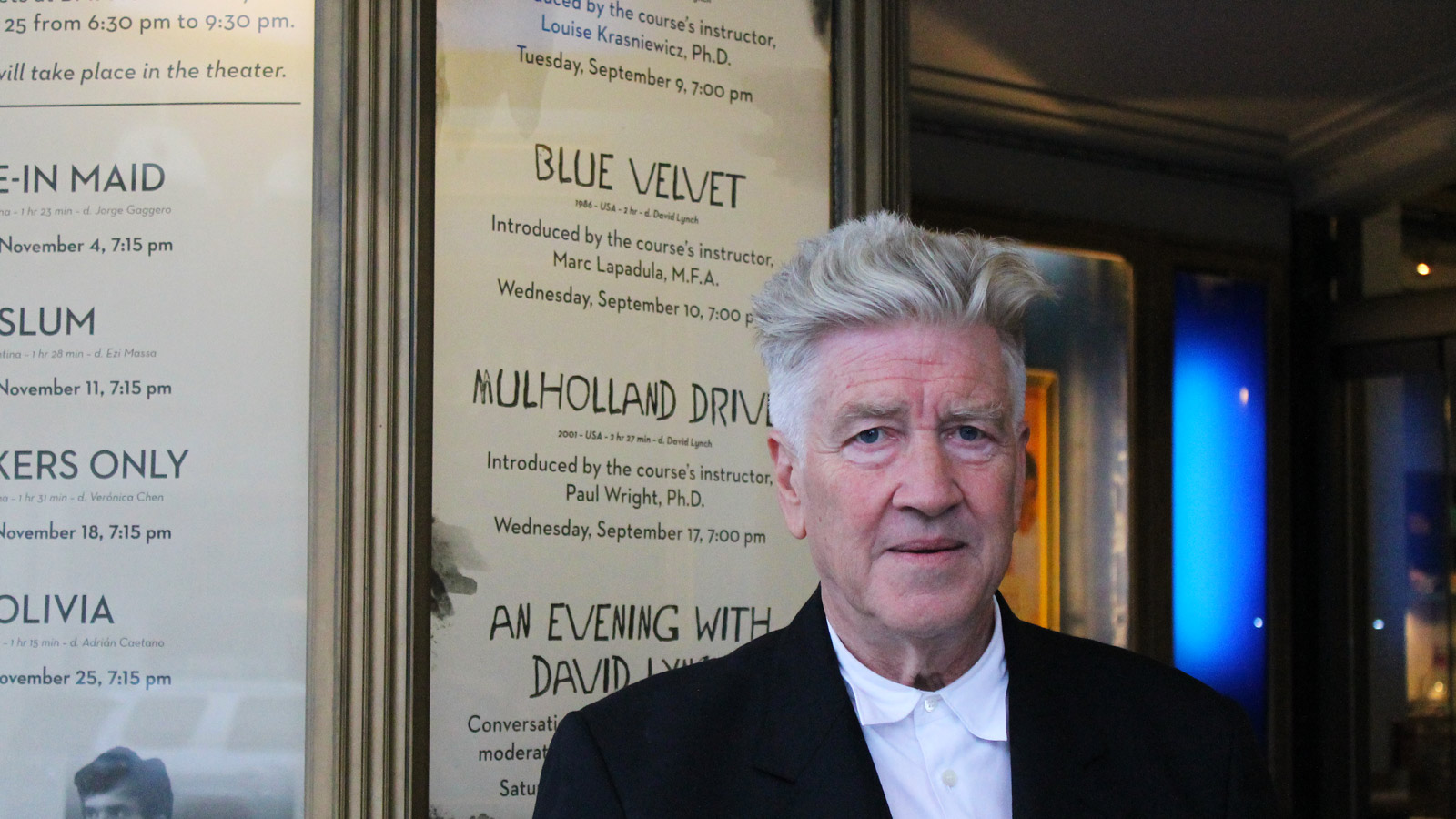
It was a very memorable night for all involved—especially those among our colleagues who took one or more cigarette breaks with the avid smoker—and it continues to make a mark on David Lynch fans around the world. Recordings of Lynch’s conversation with Rickey have been viewed over 350,000 times since his visit, making it the most-viewed piece of original BMFI content to this day. Lynch was in town because the Pennsylvania Academy of the Fine Arts, where he studied in the ‘60s, was opening the first major museum exhibition of his paintings and drawings in the United States. We were very happy our friends at PAFA recognized that BMFI would do justice to the cinematic side of this unique artist’s portfolio.
BMFI welcomed a range of other filmmakers in 2014, as well. There were directors like Josh and Benny Safdie (Uncut Gems) and Don Argott (The Art of the Steal), who visited BMFI via Skype (RIP) and in person, respectively, to share and discuss their then-new films. The Safdies had recently made Lenny Cooke, a basketball documentary, and longtime BMFI favorite Argott screened his rock documentary, Lamb of God’s As the Palaces Burn. In addition, noted Australian filmmaker Kim Mordaunt brought his festival-favorite drama, The Rocket, about a Laotian boy who builds a rocket to earn a prize to provide for his family.
Director Vicki Vasilopoulos visited with her documentary, Men of the Cloth, which is set much closer to home. It features the skilled craftsmen working at Centofanti Tailors in Ardmore, and she was joined at the screening by owner Helen Centofanti Peatross, master tailor Luigi Russo, retired master tailor Nick Battistoni, tailor Joseph Genuardi, and Alphonso D. McClendon and Roberta Gruber, faculty in the Design and Merchandising Program at Drexel University.
There was more local flavor at BMFI, too, in part thanks to experts and performers from Opera Philadelphia and the Pennsylvania Ballet, who introduced screenings of Don Juan de Marco and Turning Point, respectively. Not So Silent Cinema’s skilled musicians performed a live score to accompany the classic German Expressionist work The Cabinet of Dr. Caligari, and the Academy of Natural Sciences brought its Mega-Bad Movie Night to the Main Line. Two experts debunked the prehistoric animal behavior depicted in the action feature 10,000 BC, and they brought along some descendants of the movie’s scalier featured players.
While nobody brought any lizards, there was something unusual happening at BMFI’s annual screening of The Sound of Music: crafts and items made by some members of our staff were sold at the one-and-only employee pop-up shop. While it was wonderful to learn about our colleagues’ other talents, we were positively kvelling over the results of the 2014 WHYY Youth Media Awards, which saw the students of the 2013 Summer Filmmaking Workshop earn two prizes for their original short “The Best Fit.”
Speaking of students, 2014 saw BMFI’s first College Night. This annual September event at which students from area colleges are invited to the theater for a free movie—and free movie posters to decorate their new dorm rooms—is a popular tradition that has gained notice in the art-house industry as a successful invitation that entices younger audiences that have been traditionally underserved by many theaters.
We also made a more concerted effort to welcome another segment of our audience: seniors with physical and financial challenges. Those are the folks who benefited from the PNC Arts Alive Senior Access Pass. With grant support from PNC, BMFI was able to install improved hearing-assistance technology, provide additional closed-caption devices, offer free admission for qualifying seniors and their caregivers, and even arrange for transportation assistance. This program brought more seniors of limited means to the theater to enjoy our movies.
In fact, there was a lot more “more” at BMFI in 2014. The number of film screenings more than doubled. (Funny how that happens when you have twice as many theaters.) Membership grew by 20%, soaring past the 8,000 mark, and enrollment for our Film Studies courses grew by a whopping 47%, surpassing 1,000 students for the first time that year.
And that’s no surprise when returning favorites The Language of Film (I & II), Film History Discussion Series, and Alfred Hitchcock: The Political Films are joined by new multi-week offerings like Akira Kurosawa: East Meets West, Buenos Aires: Cinema of Survival, Chaplin: Post Modern Times, Cinema of Provocation: The Films of Michael Haneke, Gleanings: The Films of Agnès Varda, Icon in the Director’s Chair: Clint Eastwood, Philosophy on Film – The Early Godard: Existentialist Anti-Hero, The Cinematic Bard: Shakespeare from Page to Screen, The Dark Side of Hollywood: Film Noir, and Through the Lenses of the Middle East.
On the seminar front, in addition to the always popular Casablanca and the three David Lynch movies mentioned earlier, there were standalone classes on A Hard Day’s Night, Butch Cassidy and the Sundance Kid, City Lights, Dial M for Murder, Gimme Shelter, Paths of Glory, Rear Window, The Exorcist, The Princess Bride, and This is Spinal Tap. BMFI also taught two more multi-week classes at the Philadelphia Museum of Art, as well as a single session elsewhere on the Parkway: the BMFI at the Barnes Seminar: Grand Illusion.
With all due respect to Mr. Renoir, it was no illusion, grand or otherwise, that BMFI was on a major upswing in 2014. And the hits would keep on coming in 2015, with new heights reached in membership, Film Studies enrollment, and movie attendance. There would also be visits from a George Peabody Medal winner, an Oscar winner, and a president of the Academy of Motion Picture Arts and Sciences. And there was something else . . . Oh, right: BMFI turned 10.
See all the films shown at BMFI in 2014 on Letterboxd and peruse the Film Studies course list.
As the calendar turned to 2015, the big news at BMFI was . . . no news. For the first time since before the institute opened its doors in March 2005, there was no major fundraising effort, theater renovation, capital campaign, or building expansion anywhere in sight. The physical structure of BMFI as we all know it today was set, and the focus returned to bringing the best in movies, film education, and cinema-related guests to the Main Line and beyond.
And while the year wouldn’t see another Palme d’Or winner like David Lynch, how do a two-time Oscar winner, a one-time (so far) Oscar winner-to-be, and the president of the Academy suit you? Let’s start with the last one first. The head of the Academy of Motion Picture Arts and Sciences, Cheryl Boone Isaacs, visited BMFI to participate in Behind and Beyond the Oscars, an event during which she was interviewed by BMFI board member and former Paramount executive John Hersker, who himself was once the manager of the Bryn Mawr Theater.
Hersker would also hold court with Academy Award-winning actress and director Lee Grant (In the Heat of the Night, Shampoo) and Marni Nixon, the famed “Singing Voice of the Stars” who performed the songs for the performances of Natalie Wood in West Side Story, Audrey Hepburn in My Fair Lady, and Deborah Kerr in The King and I. It would be BMFI’s founder and executive director Juliet Goodfriend who would have the pleasure of asking the Oscar-winning editor of Oppenheimer and longtime friend of BMFI, Jennifer Lame, about her work on Noah Baumbach’s While We’re Young.
BMFI has always been a place to find the most fascinating documentaries, and on occasion, the people behind them. This was certainly the case when acclaimed filmmaker Rex Miller (Citizen Ashe, In the Same Breath) brought his documentary Althea, about tennis great Althea Gibson, to town and participated in a Q&A after the screening with associate producer and current BMFI board member Lisa Hoffstein. Academy Award-nominated documentarian Matthew Heineman shared his 2015 film, Cartel Land, which earned awards from the Directors Guild of America and the Sundance Film Festival.
A varied group of local guests enhanced some screenings at BMFI, too. Dr. Harriet Fields, granddaughter of famed comedian W.C. Fields, introduced a film series that featured The Bank Dick, My Little Chickadee, and It’s a Gift. Host of WXPN’s Kids Corner, Kathy O’Connell, emceed a special sing-along screening of Carousel, and Camille Paglia, Ph.D., renowned social critic and University of the Arts professor, presented an illustrated lecture about actress, feminist icon, and Bryn Mawr College alumna Katharine Hepburn. We mustn’t forget to mention beloved film collector and historian Lou DiCrescenzo, who returned to BMFI to host an evening of classic cartoons selected from his own collection of 35mm Technicolor prints.
Speaking of history, John Cluver of Voith & Mactavish Architects, who’s guided all of BMFI’s landmark-compliant renovations and expansions, gave a presentation about the efforts to preserve the building that houses BMFI as part of a Lower Merion Conservancy lecture series on heritage preservation. In addition, Brandeis University professor of American studies Dr. Thomas Doherty visited BMFI for a conversation with his former student and BMFI director of education, Andrew J. Douglas, Ph.D. Doherty is the author of, among other titles, Hollywood’s Censor: Joseph I. Breen and the Production Code Administration about the Philadelphia native who was arguably the most powerful man in Hollywood for much of its golden age.
And speaking of age, we should probably mention that BMFI turned 10 in 2015. To mark the occasion, there was the 10th Anniversary Celebration! Event, which featured the winning films and filmmakers from the 2015 Silver Screen Inspiration Short Film Contest and a look back at the decade, the community, and the movies that built BMFI with special cameos from surprise guests and BMFI fans. Before each film screening in 2015, moviegoers enjoyed a commemorative trailer crafted by BMFI Director of Communications Gina Izzo that featured the nearly 2,000 film titles shown at BMFI since 2005 – a list that took up every inch of the big screen.
Fans of many stripes descended on BMFI on October 21, 2015, known as “Back to the Future Day,” because it is the future date to which Marty McFly and Doc Brown travel at the start of Back to the Future Part II. Inside, the theater was sold out. Outside BMFI was a wild scene, with hundreds of people, dozens of them costumed, a DeLorean equipped with a flux capacitor, three TV news crews, two people getting engaged, and one executive director (BMFI Founder Juliet Goodfriend) taking her first seat in a time machine.
One of the causes and effects of BMFI’s growth during this time was its Film Studies program, which educated a then-record 1,149 students in 2015, in part through seminars on Rome, Open City, On the Waterfront, The Wicker Man, Blade Runner, Bird, My Darling Clementine, Cat Ballou, To Kill a Mockingbird, Harold and Maude, The Graduate, Working Girl, The Birdcage, Casablanca, The Birth of a Nation, and Goodfellas. There were also multiweek courses on such filmmakers as Krzysztof Kieślowski, Andrzej Wajda, Ida Lupino, Carl Theodor Dreyer, Robert Altman, and Roman Polanski.
The growth on display in 2015 wasn’t limited to education. In fact, BMFI hit a new high in membership (8,630 individuals) and its best-ever mark in attendance (187,000+) that year. With all this, it may have seemed that 2016 was destined to be a down year. You’ll have to tune in next week to find out, but with the building’s 90th birthday, an evening with a luminary of film criticism, the start of a beautiful movie friendship, and a visit from the boldest woman in Philadelphia filmmaking, we wouldn’t bet on it.
See all the films shown at BMFI in 2015 on Letterboxd and peruse the Film Studies course list.
While BMFI welcomed hordes of moviegoers, film studies students, and special guests, 2016’s main headline was the 1926 theater building’s big birthday. The months-long series, 90 Years of Films in Bryn Mawr, took audiences through our community’s history at the movies.
The building located at 824 West Lancaster Avenue—variously known as The Seville Theater, the Bryn Mawr Theater, and Bryn Mawr Film Institute—had been home to film in Bryn Mawr for 90 years. BMFI celebrated that rich cinematic history with a series that featured diverse films from the theater’s past, including Franco Zeffirelli’s Romeo and Juliet, A Night at the Opera, The French Connection, The Philadelphia Story, Diabolique, Little Caesar, and Divorce Italian Style.
A highlight of the celebration was Evolution of an Art House: A Historical Lecture with John Hersker, then-BMFI board member and former Paramount Pictures Executive Vice President. He dug into the storied past of BMFI’s historic building with an illustrated presentation that detailed the transformation of the property from The Seville Theater in 1926 to the years as the Bryn Mawr Theater, and into its current form as Bryn Mawr Film Institute.
All of the nearly 1,200 students who participated in BMFI’s third-grade visual literacy program, See • Hear • Feel • Film (SHFF), in 2016 received the equivalent of scholarships because the curriculum is fully funded through Pennsylvania’s Educational Improvement Tax Credit (EITC) program. Many regional corporations have funded SHFF through their EITC donations, but none more than Harmelin Media, thanks to the consistent leadership of its founder and longtime CEO Joanne Harmelin, who also served on BMFI’s board of directors for many years.
Elementary-school kids were far from the only people learning about and through visual media at BMFI in 2016. A then-record 1,170 adult students participated in our Film Studies program, taking multiweek courses like Master Humanist: The Cinematic World of Satyajit Ray, Quentin Tarantino: Surrealist of the Church of Home Video, Magnificent Obsession: The Melodrama, Myth-busters and Iconoclasts: Japanese Cinema in Transition, Early Kubrick, Bearing Witness: Elia Kazan and the 1950s, Tracking The Wire, and Contemporary Israeli Cinema.
There were also Cinema Classics Seminars on most of the movies shown as part of the theater’s 90th-birthday celebration, as well as Chimes at Midnight, Gaslight, Murder on the Orient Express, Casablanca, The Man Who Fell to Earth, Ousmane Sembene’s Black Girl and “Borom Sarret,” and Beauty and the Beast (the Cocteau, not Disney, version). In addition, 2016 saw the first of our ongoing Short Attention Span Cinema seminars, as well as an all-new, two-part course offered in partnership with the Philadelphia Museum of Art: The Art of Film.
For decades, when one thought of “film” and “Philadelphia,” the image of Sharon Pinkenson, longtime executive director of the Greater Philadelphia Film Office, came to mind. She came to BMFI in 2016 to introduce a special 40th-anniversary screening of Rocky. That beloved movie is an outsider’s take on our fair city, albeit one that locals heartily embrace. For genuine, historical footage of Philadelphia culled from 4,000 film cannisters in a Kensington warehouse, BMFI turns to collector, curator, and projectionist Jay Schwartz whose Secret Cinema has been illuminating Philly’s past—and so much more—on celluloid since 1992, and who did his first of 20 (and counting) programs at BMFI in February 2016.
Another member of the city’s movie community, longtime Inquirer film critic and friend of BMFI Steven Rea, gave a talk about his book Hollywood Cafe: Coffee with the Stars, and also presented “Hollywood on the Campaign Trail,” as election season approached. One more film critic returned to BMFI in 2016, as well, when A.O. Scott of The New York Times was interviewed by The Philadelphia Inquirer Books and Fine Arts Editor John Timpane. The main topic was Scott’s book Better Living Through Criticism: How to Think About Art, Pleasure, Beauty, and Truth, and he took questions on other subjects from the audience, too.
Fascinating documentaries—and the people in front of and behind their cameras—have always been a BMFI mainstay, and 2016 did not disappoint. Experimental documentarian Alan Berliner, a Guggenheim Fellow whose films are in MoMA’s permanent collection, brought First Cousin Once Removed to BMFI. Berliner introduced and answered questions about the deeply personal portrait of poet and playwright Edwin Honig, his cousin and mentor.
Mexican American photographer and filmmaker Natalia Almada, a MacArthur Fellow and Sundance award winner, brought her documentary El Velador to BMFI. After a screening of the film, which explores Mexico’s drug problem by following the night watchman at a mausoleum housing the bodies of some of the country’s most notorious drug lords, Almada participated in a Q&A moderated by documentarian and Haverford College artist-in-residence Vicky Funari.
But not all the non-fiction films at BMFI were quite so serious. In fact, the heaviest thing about King Georges, about Georges Perrier, famed chef of French cuisine and owner of Le Bec Fin, was the cream featured in some of the dishes on screen. The man himself was on site for a special reception before, and Q&A after, a screening of the movie.
A documentary subject who is also a filmmaker was the focus of a very interesting double feature at BMFI in the fall of 2016. After Raiders of the Lost Ark was released in 1981, Eric Zala and two fellow 11-year-old boys from Mississippi set out on what would become a seven-year-long labor of love and tribute to their favorite movie: a faithful, shot-for-shot adaptation of the action-adventure film. They finished every scene . . . except one: the explosive airplane set piece. Over two decades later, the trio reunited with the original cast members from their childhood in order to complete their masterpiece. Zala participated in a Q&A in between a screening of the documentary about his decades-long endeavor, Raiders!: The Story of the Greatest Fan Film Ever Made, and the movie he and his friends made, Raiders of the Lost Ark: The Adaptation.
Around the same time as those screenings were held, in September 2016, BMFI learned that it was receiving a Historic Preservation Award for Stewardship from Preservation Pennsylvania. This final formal recognition of the nearly 15-year project of saving, revitalizing, and expanding the 1926 theater building came, as it turns out, at a propitious time. For less than one year later, by the summer of 2017, BMFI would undergo an enormous change that actually had nothing to do with the building itself . . . but was foundational, nonetheless.
See all the films shown at BMFI in 2016 on Letterboxd and peruse the Film Studies course list.
In 2017, despite all of the filmmakers, authors, critics, musicians, and Oscar-winning friends who visited BMFI, the year would be most remembered for one person—really, the person—leaving her post.
That’s right. In the summer of 2017, BMFI’s founder and the only executive director it had ever known, Juliet Goodfriend, transitioned to a new role as board chair and stepped back from overseeing the day-to-day operations of the nonprofit film center that began as a glint in her eye fifteen years earlier. She would be succeeded by her predecessor as board chair and her “partner in crime” for the previous twelve years, Sam Scott.
To honor Juliet, BMFI held the Leading Ladies Gala on April 22 in Thomas Great Hall at her alma mater, Bryn Mawr College. The event was co-chaired by Alice Bullitt and Vivian Piasecki, masterfully emceed by longtime friend of BMFI Dave Roberts, and attended by a who’s who of Greater Philadelphia arts and culture including Barbara Cobb, Carole Haas Gravagno, Sarah and Brad Marshall, Priscilla Ferrater Mora, Marsha and Jeffrey Perelman, Emily C. Riley, Eileen Rosenau, Connie and Sankey Williams, Nancy Wingo, and Lynn Yeakel.
View the Leading Ladies Gala Commemorative Book
The roster of notable people from the film community who took the opportunity to thank Juliet for her contributions to it included Oscar-winning actor Sir Ben Kingsley, President of the Academy of Motion Picture Arts and Sciences Cheryl Boone Isaacs, producer/distributor Ira Deutchman, Executive Director of the Greater Philadelphia Film Office Sharon Pinkenson, and longtime colleague and early supporter John Toner of Renew Theaters.
Juliet also received recognition from the Art House Convergence, a national organization consisting of and representing the hundreds of mostly non-profit movie theaters and film festivals that specialize in bringing independent, international, and local films to their communities. Goodfriend was instrumental in founding the AHC and her expertise in data collection played an important role in the group’s advocacy efforts.
BMFI was thrilled to host a special friends-and-family screening of The Greatest Showman with the Paseks, longtime supporters of BMFI and proud parents of EGOT composer Benj Pasek. Benj brought us to tears with his 2017 Oscar acceptance for La La Land and welcomed BMFI audiences to screenings of Showman with a special video just for moviegoers at his hometown cinema.
The roster of bold artists, authors, and guests who visited BMFI in 2017 included Stephen Winter, who answered questions following a screening of his 2015 feature Jason and Shirley, which Richard Brody of The New Yorker called “one of the year’s best films.” Steadicam inventor and renowned cinematographer Garrett Brown returned for two behind-the-camera programs—one for local cinephiles, and one for dozens of cinema operators from across the country who traveled to town for a regional meeting of the AHC, co-hosted at BMFI. Dancers Mayara Pineiro and Etienne Diaz spoke after a screening of the Cuban ballet documentary Secundaria, and director Joaquim Pinto shared What Now? Remind Me, Portugal’s official submission for the Academy Award for Best Foreign Language Film. Bestselling writer Jenni L. Walsh introduced Bonnie and Clyde before discussing and signing her novel Becoming Bonnie. Author Marc Tyler Nobleman, whose original research provided the basis for Batman & Bill, joined filmmakers and longtime friends of BMFI Don Argott and Sheena Joyce for a discussion of this documentary that chronicles Nobleman’s nine-year campaign to get Batman co-creator Bill Finger’s name added to the iconic character’s official credit line.
BMFI stalwarts Carrie Rickey (The Philadelphia Inquirer) and Sam Adams (Rolling Stone/Indiewire) discussed the prior year’s best films with BMFI’s Andrew J. Douglas, Ph.D., and then-programmer Valerie Temple at our Awards Night Critics Chat before that year’s Oscars. The critical duo talked about the biggest snubs, hottest topics, predictions about likely winners, and took questions from the audience.
Many award-winning movies—and a couple of television programs—were the subjects of various BMFI education offerings in 2017. Cinema Classics Seminars on such titles as Elevator to the Gallows, The Battle of Algiers, Cries and Whispers, The Innocents, Wait Until Dark, Rebecca,
The Wrong Man, Reservoir Dogs, Marnie, I Confess, Pulp Fiction, The Godfather (I & II), Alien, Aliens, The Silence of the Lambs, and Marathon Man were joined by multi-week offerings like “What Happened to Gary Cooper?” Masculinity and Capitalism in The Sopranos, Later Kubrick, Kieslowski’s Dekalog, Civilization and Barbarism in Argentine Cinema, Culture Wars on the Riviera: The Cannes Film Festival at 70, Guts, Girls, and Glasses: The Daredevil Genius of Harold Lloyd, Four Voices: Independent Women Filmmakers, “From Mr. Chips to Scarface”: The Legacy of Breaking Bad, “It’s Alive!”: Monsters in Horror Cinema, and Swept Away: The Films of Lina Wertmuller.
Looking ahead to 2018, one thing that will definitely get swept away is the previous Film Studies enrollment record. The year would also see the return of WHYY legend Patrick Stoner, a cool shout out from a BAFTA nominee, a visit from an Oscar nominee, the start of a friendship with the men from the Micheaux Mission, and the end of an era as another woman who was absolutely essential to BMFI’s formation and growth leaves for a well-earned retirement.
See all the films shown at BMFI in 2017 on Letterboxd and peruse the Film Studies course list.
While nothing could compare to BMFI founder Juliet Goodfriend stepping down as executive director in 2017, there would be a departure in 2018 that to many of us BMFI veterans was a close second.
Patricia Wesley, BMFI’s founding director of development and communications, the woman who did the research, wrote the grants, crafted the messaging, and designed the materials that were essential to BMFI getting off the ground—and blossoming over the subsequent 13 years (and beyond)—decided to retire. BMFI’s award-winning garden behind theaters 3 and 4, which you can enjoy today, is dedicated to Wesley.
Most BMFI patrons and members probably didn’t know who Pat was, and she would tell you that was as it should be. But to two “generations” of her co-workers, Pat was a guiding light. As was written by one of those colleagues at the time of her retirement:
Pat’s role in the creation of BMFI’s aesthetic, her attention to its responsibility to the community, and her thoughtful direction on the way BMFI presents itself to the larger world were invaluable . . . She taught us to put the organization—and its members, patrons, and neighbors—first, but more than this, she showed us how to do so with wit, charm, grace, and humor. And a smile; always a smile. Pat’s fine example and her lasting contributions helped make BMFI what it is today, and they are her enduring legacy to the community we serve—a community she loves.
And that community had the chance to see a lot of terrific movies—and to meet some wonderful special guests from near and far—in 2018. That was the year BMFI first welcomed a pair of outstanding local film podcasters who’ve since become regulars—the men of The Micheaux Mission. Vincent Williams and Len Webb have been watching and reviewing every African American film ever released to theaters, and in July they covered Sorry to Bother You when they came to BMFI.
Local film history was illuminated when director Andrew Ferrett and producer, film critic, and friend of BMFI Carrie Rickey joined patrons for a Q&A after a screening of their documentary, Before Hollywood: Philadelphia and the Birth of the Movies. Philly bluesman Georgie “the Blacksmith” Bonds performed prior to the screening of Two Trains Runnin’ and discussed the doc afterward with Jonny Meister, host of WXPN’s The Blues Show, and Herman Beavers, Professor of English and Africana Studies at the University of Pennsylvania.
Other screening subjects from elsewhere in the Commonwealth included Highlights magazine. It was born up in Honesdale, PA, which was just one of the things viewers learned when director Tony Shaff brought and discussed his documentary about the publication, 44 Pages. WHYY mainstay and friend of BMFI Patrick Stoner introduced a special screening of Won’t You Be My Neighbor?, Oscar-winning documentarian Morgan Neville’s movie about Fred Rogers, who was born and produced his iconic program in the Pittsburgh area.
There are great and powerful documentaries set outside of Pennsylvania, as well, of course, and BMFI was the place to meet some of their makers and subjects in 2018. Director Theo Anthony shared his feature debut, Rat Film, which connects topics like forensic science, urban planning, and socioeconomic inequality while exploring the history of rats in the city of Baltimore.
A little further south, the subjects of Music Got Me Here called Virginia home. Forrest Allen and Tom Sweitzer joined director Susan Koch at BMFI for a post-screening Q&A about their documentary on the healing power of music therapy. Whose Streets? showed that healing was in short supply during the unrest following the 2014 death of Michael Brown in Ferguson, Missouri. Documentarian Sabaah Folayan brought her Peabody-nominated film to BMFI.
We hosted some artists behind a number of other acclaimed movies in 2018, too. Among them was Bing Liu, who shared his Oscar-nominated documentary about three friends (one of whom is him) bound by their love of skateboarding, Minding the Gap, with BMFI. Yann Dedet, an editor of François Truffaut’s Oscar-winning Day for Night, joined an audience to discuss that film, as well as his own short, “While I’m Young,” after they were screened. And BAFTA award-nominated screenwriter Patricia Resnick was so impressed by BMFI’s original PSA parody for the screening of a movie she co-wrote, 9 to 5, that she gave her official approval to the homage and welcomed the audience in a special video introduction.
A larger segment of that audience than ever before attended Film Studies classes in 2018, with the 1,588 who did setting a pre-pandemic enrollment record. With the range of seminars and courses offered, it’s really no surprise. Here are some of the movies covered in our one-night format: Unforgiven, Blow-Up, Blade Runner, Othello, Gentlemen Prefer Blondes, Thelma & Louise, Cleo from 5 to 7, Days of Heaven, Yellow Submarine, Rashomon, Saturday Night Fever, Sullivan’s Travels, O Brother, Where Art Thou?, and The Conformist. Multi-week classes included: Chance Encounters, Permanent Consequences: The Cinema of Krzysztof Kieslowski, Pt. 2, Once in a Lifetime: Jonathan Demme in the 1980s, “Made in America”: Rebranding Existentialism in The Sopranos, Dark Streets, Dark Lives: The Cinema of Jean-Pierre Melville, “Crystal Blue Persuasion”: The Tragic Ballad of Breaking Bad‘s Final Season, Expletive Deleted: David Mamet Films, Hollywood Film Music, Some Like It Wilder, and “No Hugging, No Learning”: The Unsentimental Truths of Seinfeld.
2019 will see a sold-out screening of the longest movie BMFI has ever shown (by far), the single largest audience BMFI has ever had for a screening (also by far), and a visit from a star of one of the most groundbreaking American independent films.
See all the films shown at BMFI in 2018 on Letterboxd and peruse the Film Studies course list.
We didn’t know it at the time, but 2019 would be the end of an era—not just for BMFI, but for movie theaters of all stripes. It was the final year of the before times, and in some ways a pinnacle that it is hard to imagine ever being reached again. That being said, BMFI set two records that year that will probably never be surpassed, even if moviegoing hadn’t changed forever in 2020.
The first came about because of a massive response to a massive motion picture. At the height of the Cold War, the Soviet film industry turned its full might—an unlimited budget, authentic costumes from the Russian archives, a cast of 120,000—to a sweeping, seven-hour-and-two-minute (nine hours with intermissions!) adaptation of War and Peace, Tolstoy’s tale of love, intrigue, and destiny during the Napoleonic Wars. As Roger Ebert said, “You are never, ever, going to see anything to equal it.”
It was the longest film ever shown at BMFI in a single screening. Audience members who stayed for the entirety of the program were gifted with a mini-Moscow Mule mug, not to mention food, libations, moderated discussions during the intermissions, and a once-in-a-lifetime BMFI experience.
While we present our Everybody Sing! screenings of The Sound of Music almost every year, the 2019 screenings are also very unlikely to be repeated. “Why,” you ask? Because that year, due to extraordinarily popular demand, for the first time ever, we dedicated three of our screens—611 seats—to the annual event. Thanks to three showtimes staggered over 45 minutes, all those eager and energized fans were watching the classic musical at the same time. Especially that year, their excitement and creative costumes were definitely a few of our favorite things.
There were plenty of other special screenings at BMFI in 2019. For example, we received a grant for Science on Screen, a program where theaters receive funding from the Alfred P. Sloan foundation to pair movies with scientific experts who can illuminate some of the real-world topics touched on in the films.
The series featured science writer and exhibit developer “Dino” Don Lessem (who served as Steven Spielberg’s dinosaur advisor during Jurassic Park’s production) helping us separate dino-fact from fiction in that movie; Dr. Frank Lee, Director of Drexel University’s Entrepreneurial Game Studio, who discussed the off-beat and improvised Computer Chess; Melissa Draganac-Hawk, Director of Student Affairs at the Pennsylvania School for the Deaf, who guided the audience though a series of short films made by or starring Deaf artists; and Polina Kozitskiy, coach at the Philadelphia Rhythmic Academy, who preceded a screening of Over the Limit, a documentary about rhythmic gymnast Margarita Mamun, with a demonstration of the sport and was joined by Dr. Joel Fish, Director of the Center for Sport Psychology, to discuss the film.
More fascinating guests enriched our wonderful repertory programming in 2019, as well. One of the most noteworthy was Alva Rogers, one of the stars of Julie Dash’s groundbreaking 1991 independent film, Daughters of the Dust, about three generations of Gullah women on Saint Helena Island, South Carolina, preparing to migrate to the North. Ms. Rogers joined our Cinema Classics Seminar on the film and said a few words to the audience before the screening, as well.
Another moving event was a showing of The Ataxian, because a panel discussion following this documentary featured its subject, Kyle Bryant, who suffers from the degenerative disorder, Jen Farmer and Felicia DeRosa of the Friedreich’s Ataxia Research Alliance, and Angela Cressor of Roberts Elementary, where Bryant’s story has been used to teach students about activism and determination.
Producer Sabrina Schmidt Gordon brought her documentary about a North Philadelphia family, Quest, which was nominated for the 2018 Independent Spirit Award for Best Documentary Feature and a 2019 Peabody Award, to BMFI. Another local documentary, Pennhurst, is about the suburban Philadelphia institutional home for the developmentally disabled, Pennhurst State School and Hospital, which was marked by decades of scandals involving abuse, neglect, and misconduct. The investigation it sparked led to rulings and reforms that would be landmarks in the movement for disability rights. Using archival footage and interviews with residents and employees, the documentary tells the story of the institution and the people who lived there, and its screening was enhanced by a discussion with Dr. James Conroy, Jean Searle, Ed Goldman, and Dr. Dennis Downey, of the Pennhurst Memorial & Preservation Alliance.
Another powerful documentary, Roll Red Roll, about sexual assault at an Ohio high school, was brought to BMFI by its filmmaker—and Main Line Native—Nancy Schwartzman, who answered questions after its screening. There was also a local connection for Wyeth, which saw director Glenn Holsten, producer Chayne Gregg, and Mary Landa of the Brandywine Conservancy & Museum of Art have a Q&A after its showing.
Guests connected to narrative films abounded, as well. A screening of A League of Their Own was introduced by film critic Elizabeth Weitzman, who signed copies of her book, Renegade Women in Film and TV. Author Janny Scott—granddaughter of Helen Hope Montgomery Scott, the inspiration for Katharine Hepburn’s character in The Philadelphia Story—answered questions and signed copies of her book, Beneficiary: Fortune, Misfortune, and the Story of My Father, after BMFI showed it.
Our old friend Garrett Brown, inventor of the Steadicam and so much more, returned to BMFI to discuss his (and his invention’s) work on The Shining following a show of that movie. One-time BMFI staffer Jennifer Sacks, who appeared in Uncut Gems because of her work in sports management, also came back to introduce a screening of this film that touches upon the world of professional basketball.
No year at BMFI would be complete without some of our favorite instructors also returning to BMFI for another robust season of Film Studies offerings. Some of the seminar titles covered in 2019 included: Daughters of the Dust, Killer of Sheep, Do the Right Thing, Walkabout, Don’t Look Now, Red River, Shadow of a Doubt, The Umbrellas of Cherbourg, The Man Who Knew Too Much, All That Jazz, Rebel Without a Cause, Butch Cassidy and the Sundance Kid, The Terminator, Terminator 2: Judgment Day, Some Like It Hot, Godzilla, Invasion of the Body Snatchers, Contempt, Band of Outsiders, Pierrot le Fou, All That Heaven Allows, and Die Hard.
There were a number of fascinating multiweek courses in 2019, too, including: The Empathy and the Ecstasy of Wes Anderson, Celluloid Cities II: International Cities, Ozu and the Crucible of Modernity, “Smoke Gets in Your Eyes”: Gender, History, and Mad Men, All About Elegance: The Films of Joseph Mankiewicz, Femme Auteur: The Films of Ida Lupino, and Taste of Poetry: The Cinema of Abbas Kiarostami.
That’s 2019 in a nutshell. It was another terrific year at BMFI, filled with engaging screenings, fun events, special guests, and wonderful opportunities for education. In most ways, it wasn’t all that different from 2018, and there was no reason to think 2020 would be all that different . . . right?
See all the films shown at BMFI in 2019 on Letterboxd and peruse the Film Studies course list.
2020 started out just like the previous few years – smooth operating thanks to the enormous efforts of the prior decade. The first weeks of the year looked forward to Oscar season and our 15th birthday on March 12. (There’s that date, again.)
For the first couple of months, thousands of members and moviegoers were able to enjoy wonderful arthouse fare, including main attractions like 1917, repertory titles like Whatever Happened to Baby Jane?, and classes such as Oscar Zeitgeist: Best Picture as Cultural Barometer. Illustrious guests visited for discussions, including documentarian Sarah Burns and Nilam Sanghvi, Legal Director at the PA Innocence Project, who spoke after a screening of The Central Park Five.
Then, on March 12, 2020, BMFI celebrated its 15th birthday with mini bundt cakes and . . . the declaration of a global pandemic. Literally amidst our celebration, then-Governor Wolf announced that BMFI, and all other public venues, were to be closed for two weeks to stamp out COVID-19. Then that fortnight of closure grew, eventually turning into a year. While we didn’t know that then, it was clear we were facing an existential crisis unlike any since BMFI’s founding. We had already saved our community’s beloved cinema once before, and now we’d have to do it again.
But this time it was a little easier. Instead of rescuing a dilapidated cinema, we used cinema to keep our community connected during unimaginable times. Instead of building two new auditoriums, we built the virtual Theater 5. Instead of buying tickets or registering for in-person seminars, our community sent donations—large and small—to ensure the future of their local film center. Anniversaries are times for reflection, and we had a packed decade-and-a-half to reflect on. When confronted with a seemingly unimaginable situation, we knew what to do. We’d played tough hands before. With the right mix of strong leadership, scrappy staffers, fiscally sound decisions, government support, membership contributions, donations, community enthusiasm, and some really good movies, we’d be alright.
So, we got to work. Within two weeks of closure, BMFI launched Theater 5, an online hub dedicated to one key aspect of BMFI’s mission—building community through film culture—and Film Studies Online (FSO) to honor another core element of our purpose—to educate people about and through cinema. Theater 5’s virtual cinema program presented 116 new releases and restorations, drawing more than 2,500 rentals. The Film Studies Online free weekly discussion series covered 38 films—it was literally every Monday night—drawing more than 2,800 live participants (and another nearly 5,000 who streamed the recordings) from as far away as the British Isles and Australia.
But there was even more. Each of the films to be discussed was accompanied by a video lecture about it, free of charge for all who wanted to learn, made by the instructor moderating the week’s discussion. In addition, there was “Ask Andrew,” a weekly series of film studies video mini-lessons where BMFI’s Senior Director of Education and Administration, Andrew J. Douglas, Ph.D., responded to questions about cinema history, the movie business, and other topics submitted by BMFI patrons and students. Beyond this, BMFI staff created all sorts of movie-themed puzzles, polls, and quizzes as part of the larger effort to keep our audience engaged, connected, and full of film during the darkest days of the pandemic. Each week, BMFI staff came up with a “Question of the Week” that asked for movies based on a certain topic, creating “Community Curated Lists.” You can see the hundreds of movie lists created by BMFI contributors on Letterboxd.
And for students who wanted more in-depth explorations of cinema and other visual media, there was our Remote Classroom. These online versions of BMFI seminars were modest in duration and price, but allowed both longtime and new learners to dive into a range of topics, including: On the Origin of the Cinema, All About Oscar, Thou Shalt Not: Pre-Code Hollywood, From The Sound of Music to Midnight Cowboy: What Happened to Hollywood?, Sound Comes to Hollywood, Apocalypse(s) Then and Now: Coppola’s Classic Four Decades On, Introducing Ingmar Bergman, “And All the Pieces Matter”: The Wire in 2020, Introducing Dorothy Arzner, and Returning to The Office. In all, there were 19 Remote Classroom offerings in 2020, each of which was attended by an average of three dozen students.
Film fans in our community—some of whom only discovered BMFI because of our robust online content during the pandemic—let us know how much they appreciated our efforts. Here is the body of a letter that Jan R. sent in December 2020:
I just wanted to wish all the educators at BMFI a very happy and safe holiday season. The weekly film discussions and classes have helped us through a very difficult 2020, providing a welcome distraction and exposing us to films we would, otherwise, not have seen. The discussions have helped us maintain a sense of community even though we’ve been joining the conversations from North New Jersey.
Keith C. wrote:
I’m writing to thank you for your extraordinary efforts in these difficult times to continue to provide the quality of films, education, and fun for which I’ve come to absolutely love the BMFI.
Since early 2019, I’ve become a regular at the Film [History] Discussion Series and while the in-person [sessions] are sorely missed, the Monday night [online] event is one of the highlights of my locked-down week.
Andrew, Jacob, the guest instructors and your whole team have been fantastic. Their efforts are much appreciated.
And it really did take a whole team to create, implement, and sustain Theater 5 and Film Studies Online. Behind the neatly curated virtual screens, staff were working furiously to deliver the experiences, film recommendations, and conversations BMFI’s community valued so greatly, both in “the before times” and during the pandemic. Director of Marketing Gina Izzo first had the idea to try and bring the BMFI experience to our patrons via Theater 5, so named because our building has 4 auditoria and during the pandemic, we “opened a fifth screen in your living room.” She inspired Andrew to think of a way to bring BMFI Film Studies offerings to current and new students virtually, which led to the programs mentioned above, and Gina set the overall tone for both initiatives.
Special Programming Manager Jacob Mazer curated the movies “shown” in Theater 5 and was also one of the key instructors for FSO. Education Coordinator Jill Malcolm created most of the film-focused puzzles and quizzes and was indispensable in executing the online education offerings, just as she has always been for those held on site. Sales and Marketing Associate Victoria Stern processed the hours of weekly original content that BMFI was producing, and her successor, Alex Gosciniak, took over that task, took on our long-running Community Curated features, and added his own panache to the finished products. And Director of Design Heather Rosenfeldt not only identified, obtained, and configured all the online tools necessary for FSO, but she created graphics and bent platforms to her will to ensure that all the content was presented in an appealing and professional manner that was consistent with the look and quality of BMFI’s conventional offerings.
Plenty of other folks made important contributions, as well. BMFI faculty members, including Lisa DeNight, Jennifer Fleeger, and Paul Wright, donated their time and expertise to FSO and our Remote Classroom. If you ever had difficulty streaming Theater 5 films in your home, you probably spoke to Director of Theater Operations Mike McCracken and Membership and Rentals Coordinator Zane Stalberg, whose help-line assistance welcomed many members to the streaming world for the first time. (Remember when streaming and using apps on your TV was new?) Membership Manager Patricia Russo spoke to the thousands of members who reached out to the theater they support and personally processed the steady lifeblood of donations gifted to BMFI. Director of Finance Jan Prendergast rewrote the books to accommodate streaming distributors instead of the theatrical partners we were used to for Theater 5 while also working with Executive Director Sam Scott on the many governmental grant applications that sprang up during the year.
Navigating complicated federal (and other) funding programs was just one small part of Sam’s essential leadership in 2020. He had been doing the important work of leading BMFI’s diversification of its offerings and audience and focusing on staff retention since he took over as ED in 2017, and these efforts would prove to be fundamental to BMFI’s survival during the pandemic. The broader programming he encouraged, and the patrons it helped attract were much more receptive to and able to participate in Theater 5 and FSO than BMFI’s earlier audiences. And only the long-serving core staff identified above could have conceived of and implemented Theater 5 and Film Studies Online so quickly, efficiently, and creatively.
But Sam’s boldest move occurred just several weeks into the pandemic. Once it became clear that public institutions, like movie theaters, were going to remain closed for many more months (at least), many of BMFI’s peer organizations furloughed their programmatic and content-creating staff. There was pressure on Sam to do the same thing, and it was entirely understandable, given the dramatic drop in revenue we experienced during 2020 despite the generosity of our many donors. But Sam is, at his core, a showman (skip ahead a few years for the massive overhaul to BMFI’s projection capabilities for further evidence), and not only did he believe that “the show must go on,” but he also knew that it’s much easier to get back up to speed from a slow roll than a dead stop. He realized that it would be harder for BMFI to get patrons and members back if they completely stopped providing entertainment and education during the pandemic, and it would be extremely difficult to assemble as crackerjack of a staff if the current one was, essentially, dismissed.
So, Sam kept the creative team together and working (albeit with schedule and compensation reductions), which kept the audience engaged and involved, and BMFI would come to reap the benefits. Our movie attendance would come back more strongly post-pandemic than that of our regional competition, and our education programs would flat-out surpass 2019 enrollment by 18% in 2023 and by 37% in 2024. The leader of another independent theater in our area would later say that their organization made a mistake by not continuing to provide its programming during the pandemic and that they were finding it harder to “come back” because they didn’t.
Of course, movies and classes weren’t the only way BMFI kept its members engaged during those dark days of 2020. One of our most memorable offerings during that time was “Corn on the Curb,” where our loyal supporters could make a reservation for a car-side delivery of the fresh, hot, and tasty BMFI popcorn that they had been missing. The whole staff took turns delivering the warm bags of joy to patrons who pulled their cars alongside the theater on Lancaster or Central Avenues. Even with all parties masked, seeing the familiar (upper) faces of our most committed patrons was a wonderful reminder of what BMFI means to our community.
By the end of 2020, a ray of hope arrived in the form of the first COVID vaccines. This development was the first sign that 2021 might see the reopening of BMFI, and—spoiler alert—it would. But it wouldn’t be easy, and it sure wouldn’t be normal. In the coming year, we would all become familiar with terms like “social distancing,” “Needlepoint Bipolar Ionization,” and “VacCinema.” But at least we would start going back to the movies.
See all the films shown at BMFI in 2020, including in Theater 5, on Letterboxd and peruse the Film Studies course list.
When 2021 dawned at BMFI, it seemed like it would largely be a continuation of 2020, and for the most part, it was: Theater 5, Film Studies Online, Remote Classroom, Question of the Week, Community Curated, and the occasional Corn on the Curb event—BMFI staff delivering fresh popcorn to members as they pulled up next to the theater. But the glimmers of hope that we all saw from our homes—vaccine rollouts and the viability of social distancing—were also indications that the theater’s reopening may not be too far off.
But while all the work on BMFI policies, ticketing, and facilities was being done in preparation for that day, there were still plenty of opportunities for film fans to be entertained, educated, and engaged in Theater 5 and via Film Studies Online. Throughout 2021, T5’s virtual cinema program presented 79 new releases and restorations, drawing more than 2,300 rentals.
The Film Studies Online free discussion series covered 28 films in 2021, drawing over 1,500 live participants. People from all over kept finding the FSO discussion recordings, which were viewed more than 10,000 times in 2021 alone. There were also nine Remote Classroom seminars taught before on-site education returned, including The “Sunken Place”: Genre, Race, and Gender in the Films of Jordan Peele, “What’s Done Cannot Be Undone”: Macbeth on Film, and The Immortal Cinema of Agnes Varda.
Meanwhile, on Lancaster Avenue, Director of Theater Operations Mike McCracken and his team were figuring out how to incorporate social distancing into BMFI moviegoing. The biggest challenge was reconfiguring our online ticketing system to not only offer reserved seats, but to block the seats surrounding those purchased by a patron to maintain the desired distance between parties of moviegoers.
In addition, the theaters’ climate control was receiving a major upgrade. Beyond increasing ventilation with outside air, BMFI added Needlepoint Bipolar Ionization (NBPI) technology to all of its HVAC systems that effectively enhanced filtration efficiency and helped to significantly reduce airborne pathogens. New disinfectant misters to sanitize seats between shows and other specialized equipment were used for even more thorough surface cleaning.
Before long, the big day arrived. On Friday, April 9, 2021, after months of preparation and over a year of being closed, BMFI reopened for business. Sure, it was a little different: there were social-distancing decals on the floor, masks on faces, and empty seats around every set of moviegoers. But there were also ticket buyers at the box office, popcorn bags being filled, and movies on the screens! Those first films to show in Theaters 1-4 in over a year were four Oscar contenders: Judas and the Black Messiah, Minari, Nomadland, and The Father.
Things were slow at first—okay, very slow—and we were only open on the weekends initially, before gradually expanding to full-week operation as people became more comfortable “getting back out there,” and word of BMFI’s thoughtful precautions and comfortable environment spread. New releases came first, followed by repertory screenings, and later free member screenings returned, and even Film Studies.
Over 40 people joined us in the theater on July 8 for the first on-site education offering in 16 months, the Cinema Classics Seminar: Jaws. There were ten more seminars at BMFI, which were also livestreamed in the Remote Classroom, and an installment of the Film History Discussion Series over the remainder of 2021, as well. See Hear Feel Film, our third-grade arts-education and visual literacy program, also returned, with nearly 300 students from four regional elementary schools participating in the program virtually.
Throughout 2021, we were regularly updating our internal procedures and public policies to stay current with the changing federal, state, and local regulations and the scientific community’s—and the movie theater industry’s—best practices. These moving targets kept us on our toes, but our tireless efforts at compliance also made more and more people feel comfortable returning to the movies as the months wore on.
One big initiative on this front debuted on Sunday, September 12, 2021. VacCinema® at BMFI featured designated days for fully vaccinated patrons. All film screenings, classes, and programs offered on those days were available only to moviegoers who “had all their shots.” In addition to their tickets, patrons needed to bring a COVID-19 vaccination card (or a clear photo of it) and a Photo ID. People who didn’t comply with these guidelines were not admitted. In addition, all staff in the building on VacCinema® days were also required to be fully vaccinated.
Thoughtful and inviting approaches like VacCinema® resulted in more than 42,000 people coming to see movies at BMFI in 2021. While that’s just a small fraction of a normal year’s attendance, after 2020, it was wonderful to see. And that number would grow in 2022, in part because we all got more used to living in a world with COVID, but also because the year would see the return of our beloved screenings of The Sound of Music and the Summer Filmmaking Workshop, the start of our silent-film collaboration with the young musicians of School of Rock Main Line, and the beginning of a friendship with a noted film critic and podcaster.
See all the films shown at BMFI in 2021, including in Theater 5, on Letterboxd and peruse the Film Studies course list.
The dawn of 2022 at BMFI contained within it the first glimmer of the light at the end of the COVID tunnel, and it was a welcome sight for us, and, well, everyone in general. It meant that things were going to begin the long road back to something resembling “normal,” and for BMFI that meant finally having a bunch of new movies people were excited about—and having those people come to the theater.
For the first time since January 2020, we screened some main attraction films that would earn their way to the top 20% of all BMFI titles. They were Licorice Pizza, Everything Everywhere All at Once, Downton Abbey: A New Era, Elvis, Where the Crawdads Sing, Tár, The Banshees of Inisherin, and The Fabelmans.
Not only were these independent-minded new releases helping us start to bounce back in a big way, but folks also came to the theater in large numbers for a returning BMFI staple: engaging repertory titles with fascinating guests who were in them, made them, or have expertise in their subjects. For the first time since 2019, there were too many to list, but some deserve special mention.
Screenwriter and director Whit Stillman stopped by BMFI with the film that earned him an Oscar nod for Best Original Screenplay, Metropolitan, and dazzled the crowd during the Q&A after the show. Gene Barretta, a good friend of BMFI and a writer of a different sort, joined the audience after a matinee screening of The Fabelmans to discuss the film’s director and the subject of his children’s book, Starring Steven Spielberg: The Making of a Young Filmmaker.
Slate film critic Dana Stevens, who would become a recurring special guest at BMFI, first came to discuss her book Camera Man: Buster Keaton, the Dawn of Cinema, and the Invention of the Twentieth Century following screenings of two of the silent legend’s classics: Sherlock Jr. and “One Week.”
Short Films from Kensington and North Philly featured small stories with big impacts that highlighted prescient issues in our region. Alberto Pagan of the Instituto Puertorriqueño de Música and Rosalind Pichardo, founder of Operation Save Our City, spoke with audiences after the program about their work in their communities and on the documentaries.
Philadelphia bluesman Norman Taylor performed live at BMFI prior to a showing of the acclaimed music doc Deep Blues: A Musical Pilgrimage to the Crossroads. Musicians from the School of Rock Main Line, now BMFI staples, made their cinema debut with an original live score to accompany the 1922 German horror classic, Nosferatu.
2022 had its share of fun and games, too. The official Monopoly game came to town with a special Main Line edition featuring Bryn Mawr’s historic cinema as prime real estate on the game’s box cover, board design, and on the arts and culture row. Over a dozen BMFI members were randomly selected to win an official Main Line Monopoly game set, which is now a collector’s item. One of our (and our community’s) favorite things is our annual Everybody Sing! The Sound of Music, which returned for the first time since 2019 with two sold-out auditoriums.
After nearly a decade of heavy use, plus the extra strain of disinfectants post-pandemic, our theater seats needed an upgrade. All 858 theater seats got the facelift (and back support) they needed with new and improved upholstery. We imagine the nearly 72,000 people who came to BMFI in 2022 greatly appreciated it.
They weren’t the only ones. Since the post-pandemic re-opening, all Film Studies classes were held in one of the theaters, to facilitate the distancing to which people had become accustomed. And given how the enrollment numbers were growing, those seats were being used by a lot more people. They came to 30 Cinema Classics Seminars on such titles as Boogie Nights, Black Narcissus, Wild Strawberries, Zodiac, Rebecca, Blue Velvet, The Conversation, and Throne of Blood.
In addition, 120 students from three local elementary schools were the first to return on site for See Hear Feel Film. Fourteen high school students also participated in the first Summer Filmmaking Workshop since 2019. They conceived, wrote, shot, and edited their own original short film, which made its debut on one of BMFI’s big screens in December.
By that time, pretty much all of us were looking forward to 2023. What would the following year hold for BMFI? Well, we’d see the return of two Oscar-recognized filmmakers, a groundbreaking historical action epic from India, a visit from two local sports radio legends, and . . . Barbenheimer!
See all the films shown at BMFI in 2022 on Letterboxd and peruse the Film Studies course list.
If you have been reading these histories from the beginning, you will notice the sorts of things that tend to be the “headline” for a year. Major building work, a sizable fundraising campaign, a global pandemic, or a significant “changing of the guard” is the kind of thing that usually takes the prize. What typically doesn’t, and, frankly, what is rarely impactful enough to rate a mention, is one or two particular new movies.
Well, that all changes when we take a look at 2023. Why? Because after the closure of theaters and the shutting down of an industry because of COVID, followed by a slow return to work that was hindered by a pair of strikes (screenwriters first, then actors), the movie business needed a shot in the arm like perhaps never before.
“Wait,” you may be thinking to yourself, “that wasn’t that long ago, and I remember that Steven Spielberg said that it was Tom Cruise and Top Gun: Maverick (2022) that saved Hollywood.” That is what Spielberg said, more or less, and that movie was an enormous success . . . at multiplexes. It didn’t play at a whole lot of art houses, and we didn’t show it at BMFI, so we had to wait until 2023 for the more independent-minded version of that phenomenon.
And it would come on July 21, 2023, in the form of “Barbenheimer.” While it is true that these films, Barbie and Oppenheimer, played in multiplexes and were based on a world-famous toy and made by the director of a super-hero trilogy, respectively, these were, nonetheless, BMFI’s kind of movies. Barbie was co-written by an icon of American independent cinema, Noah Baumbach (The Squid and the Whale, Marriage Story) and co-written and directed by one of the movement’s rapidly rising stars, Greta Gerwig (Lady Bird, Little Women), while Oppenheimer was based on the Pulitzer Prize-winning biography of a theoretical physicist and made by the director behind Memento whose next movie would be The Odyssey.
Each of these films would achieve a six-figure gross at BMFI, strong enough to land them in the top 20 of the over 1,000 main attractions we had shown to that point. These two very different movies made for an uncharacteristically busy summer in 2023 and also confirmed that audiences would return to BMFI—in very big numbers—if we had thoughtful, creative, and entertaining new releases to show.
Of course, we weren’t sitting around waiting for an event like Barbenheimer. BMFI had a diverse range of films and other programs on offer throughout 2023, including a blockbuster from India. RRR, the fourth-highest grossing movie ever made in that country, was, like many Indian films, an allegory of national independence, albeit one that was packed with animal battles, musical numbers, motorcycle jumps, high-speed dance-offs, and perhaps the most audacious surprise attack in cinema history.
The filmmaker visits were plentiful during the year, as well. First-time guests included director Susanna Fogel (co-writer, Booksmart), whose film, Cat Person, was a thrilling and provocative adaptation of Kristen Roupenian’s mega-viral short story (the most-read piece of fiction ever published in The New Yorker). Musician-turned-filmmaker Naomi Yang brought Never Be a Punching Bag for Nobody, a documentary about the history of an East Boston boxing gym, its neighborhood, and what Yang learned about herself and her family once she started training there.
Two local filmmakers also visited BMFI for the first time in 2023. Director Cassie Owens brought her work-in-progress documentary Dance Legends of Philly to the theater and its subjects, local dance power couple Tony Powell and Rita Redfern-Powell, cut a rug right in the theater. Cycle of Memory is a poignant documentary following Cheltenham natives Alex and Koby Leff as they set off to restore the memories their grandfather lost to Alzheimer’s by recreating his 1945 bicycle adventure. Director and subject Alex Leff discussed his movie after it was screened.
Some longtime—and Oscar-recognized—BMFI friends returned to discuss their work, as well. Steadicam inventor Garrett Brown came by twice in 2023 to discuss two different 1981 films that relied on his groundbreaking cinematography: Blow Out and Wolfen. And writer/director/raconteur Whit Stillman stopped in to mark the 25th anniversary of The Last Days of Disco, a witty and buoyant comedy of manners that remains a gem of ‘90s independent cinema.
Authors are always welcome at BMFI, too, and a few notable ones joined us in 2023. Local sports radio legends and co-authors of The Ultimate Book of Sports Movies, Ray Didinger and Glen Macnow, entertained a packed theater by discussing film clips and signing books. Michael Schulman, author of Oscar Wars: A History of Hollywood in Gold, Sweat, and Tears, discussed his work following a screening of Sunset Blvd., one of the movies it covers.
More Academy Award winners were the subjects of many Cinema Classics Seminars taught in 2023, such as On the Waterfront, It Happened One Night, Philadelphia, One Flew Over the Cuckoo’s Nest, Midnight Cowboy, West Side Story, All About Eve, The Dark Knight, and Raging Bull. Other seminar topics included The 400 Blows, The Wicker Man, The Rules of the Game, Heat, Strangers on a Train, and Brief Encounter.
The year ended with an Everybody Sing! screening of Mary Poppins (The Sound of Music was out of circulation at the time), and BMFI could look forward to some spoonfuls of sugar in 2024, including the start of two recurring series co-presented by terrific regional partners, the return of a notable local documentarian and an Oscar-nominated animator, and a visit from an award-winning art director.
See all the films shown at BMFI in 2023 on Letterboxd and peruse the Film Studies course list.
All of us at BMFI were looking forward to 2024 as an opportunity to build on the successes of 2023, and in many ways, it was, and we did. Overall movie attendance did dip a bit—unicorns like Barbenheimer don’t come along every year, and the screenwriters’ and actors’ strikes delayed a number of films that would’ve come out in 2024—but there were great successes in other areas.
Over 2,100 people took a Film Studies class or seminar in 2024, surpassing 2023’s impressive total by nearly 17%. The real headline, though, is that enrollment exceeded its 2019 level by a whopping 37%! You can search movie theater statistics for 2024 far and wide, but you will not find another endeavor occurring at a cinema that grew that much in comparison to its pre-pandemic number.
BMFI also began two new, ongoing series in collaboration with some terrific regional partners. Stephanye Watts of the Be Reel Black Cinema Club and Vincent Williams and Len Webb of The Micheaux Mission podcast had been to BMFI separately in the past for post-screening discussions, but starting in 2024, they teamed up to co-present the Be Reel Micheaux Screening Series. Each quarter, it offers a different Black film chosen by the audience from a short list selected by the curators, who also introduce and discuss the movies.
We at BMFI have always had a lot of respect for the Academy Awards. In the past, we’ve had watch parties, we always show all the nominated short films, and each year, from November to February, our screens are filled with movies that will be in the running for those little golden men come March. That is why the Oscars’ local broadcast partner, 6abc, came to BMFI when it was looking to do some outreach around the famed awards show.
The result was our annual Oscar-themed film series that culminates with a fun program we call Let’s Talk Oscars. In 2024, the movies focused on the technicians and craftspeople who do so much to create the incredibly vivid and engrossing worlds we see on screen, and some of the best in the business joined us to discuss their own work or share their appreciation of others’.
Jimmy Smith, VFX compositor at Alkemy-X, dished on the impressive visual effects in a 35mm screening of Terminator 2: Judgment Day. The editor of M. Night Shyamalan’s Knock at the Cabin, Noemi Preiswerk, joined us for a post-film conversation, and award-winning art director Jesse Rosenthal discussed his work after a screening of American Hustle. The Let’s Talk Oscars program featured Patrick Stoner of WHYY, Dana Stevens of Slate, and Bedatri Choudhury of The Philadelphia Inquirer discussing their favorites, predictions, snubs, and the audience’s picks, too.
As always, there was a rich slate of documentaries, along with their makers, at BMFI in 2024. 32 Sounds is a multimedia documentary about the phenomenon of sound, narrated live by its director, Sam Green, who then discussed his work, as well. Guggenheim fellow Alison O’Daniel talked about her film, The Tuba Thieves, that uses unconventional open captions and almost no spoken language to examine what it means to listen.
We had some filmmakers that made docs with local connections stop by BMFI, too. Director Glenn Holsten returned with producer Chayne Gregg for a post-film conversation about Jamie Wyeth and the Unflinching Eye. Mark—A Call to Action, chronicling the life and work of scholar/activist Dr. Mark Bookman, whose efforts to improve the lives of disabled people took him from his native Bryn Mawr to Tokyo, was discussed by director Ron Small and Bookman’s family. Rev. JoAnn Bradley Jones, Rev. Thomas Szczerba, Rev. Dr. Flora Keshgegian, and Roberta Torian talked about The Philadelphia Eleven, a documentary about a group of eleven women who, in an act of civil disobedience, defied the Episcopal Church’s General Convention to be ordained as priests.
New Jersey-based filmmaker James J. Christy shed light on the little-depicted experiences of autism parents in his narrative feature Love and Communication. Oscar nominee, Peabody winner, and Penn Wynne resident Paul Fierlinger returned to BMFI with his wife and longtime partner-in-animation, Sandra, for the American premiere of their More Vivid Than This Morning’s News. James Peterson, host of Evening WURDs on WURD Radio, and Belinda Waller-Peterson of Moravian University discussed director Ava DuVernay’s Origin, and longtime BMFI friend Carrie Rickey talked about her book A Complicated Passion: The Life and Work of Agnès Varda after a screening of that filmmaker’s Le Bonheur.
Olivier Award-nominated actor Frank Ferrante, director and star of the play Groucho: A Life in Revue at the Walnut Street Theatre, shared his thoughts after a screening of A Night at the Opera. Our co-presenters from Al-Bustan Seeds of Culture held a talkback after the Philadelphia-area premiere of The Damned Don’t Cry, a moving queer drama from Morocco that combines elements of melodrama and neorealism, recalling the work of Rainer Werner Fassbinder and Douglas Sirk. And the teenage musicians of School of Rock Main Line returned to perform their score for The Passion of Joan of Arc.
Passion was definitely one of the topics covered in BMFI’s 2024 Film Studies offerings. It certainly was considered in the multi-week courses Women in Noir and Restless Moments: The Ephemeral Worlds of Wong Kar Wai, as well as the Cinema Classics Seminars on such titles as Eternal Sunshine of the Spotless Mind, Cat on a Hot Tin Roof, Who’s Afraid Virginia Woolf?, Notorious, Dirty Dancing, and La Dolce Vita.
The final months of 2024 saw the seasonal fanfare return to the cinema Audiences poured in for sold-out shows of holiday classics like The Sound of Music and Elf, as well as new releases—and soon-to-be award winners—like A Complete Unknown, Conclave, A Real Pain, and Wicked.
What would 2025 have in store? Well, BMFI would have its first-ever 70mm screenings, teach its 20,000th Film Studies student, and celebrate its 20th birthday by, among other things, creating an extensive history project on its website, including complete lists of every film shown, year-by-year recountings of milestones, memorable moments, and marvelous miscellany, and photos of our building “then” and “now.” It would be built week by week by its tireless content-creation team from February until mid-November, by which time they were all ready to wind it down . . . at least until BMFI’s 25th birthday in 2030. See you then.
See all the films shown at BMFI in 2024 on Letterboxd and peruse the Film Studies course list.

